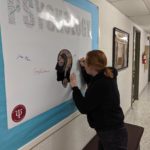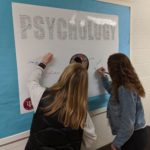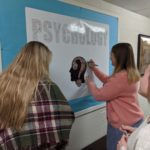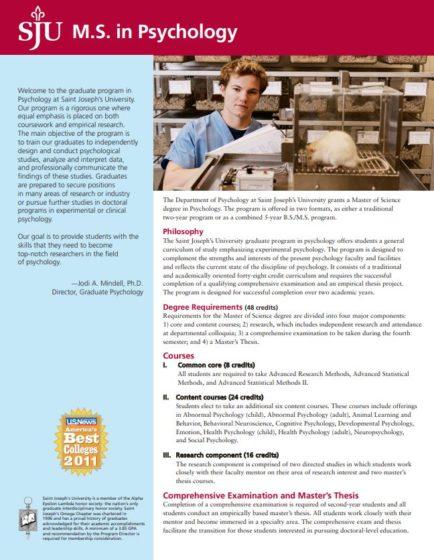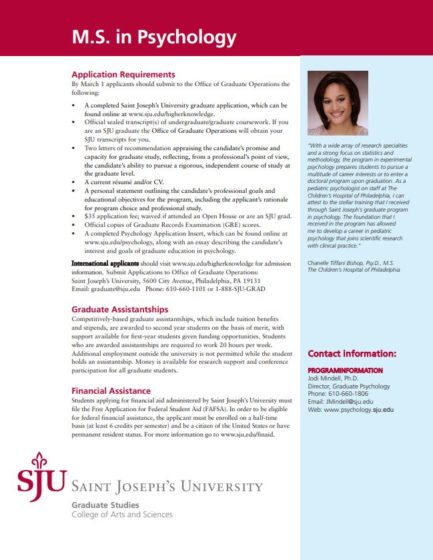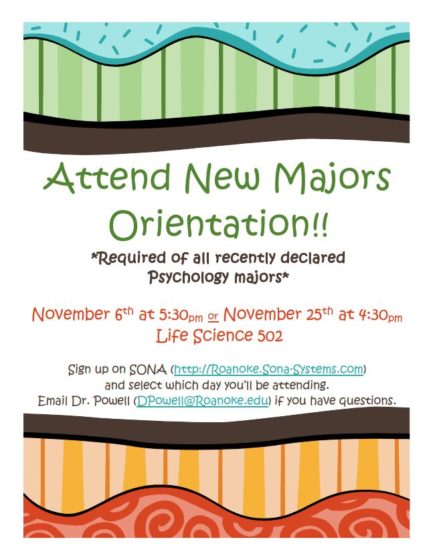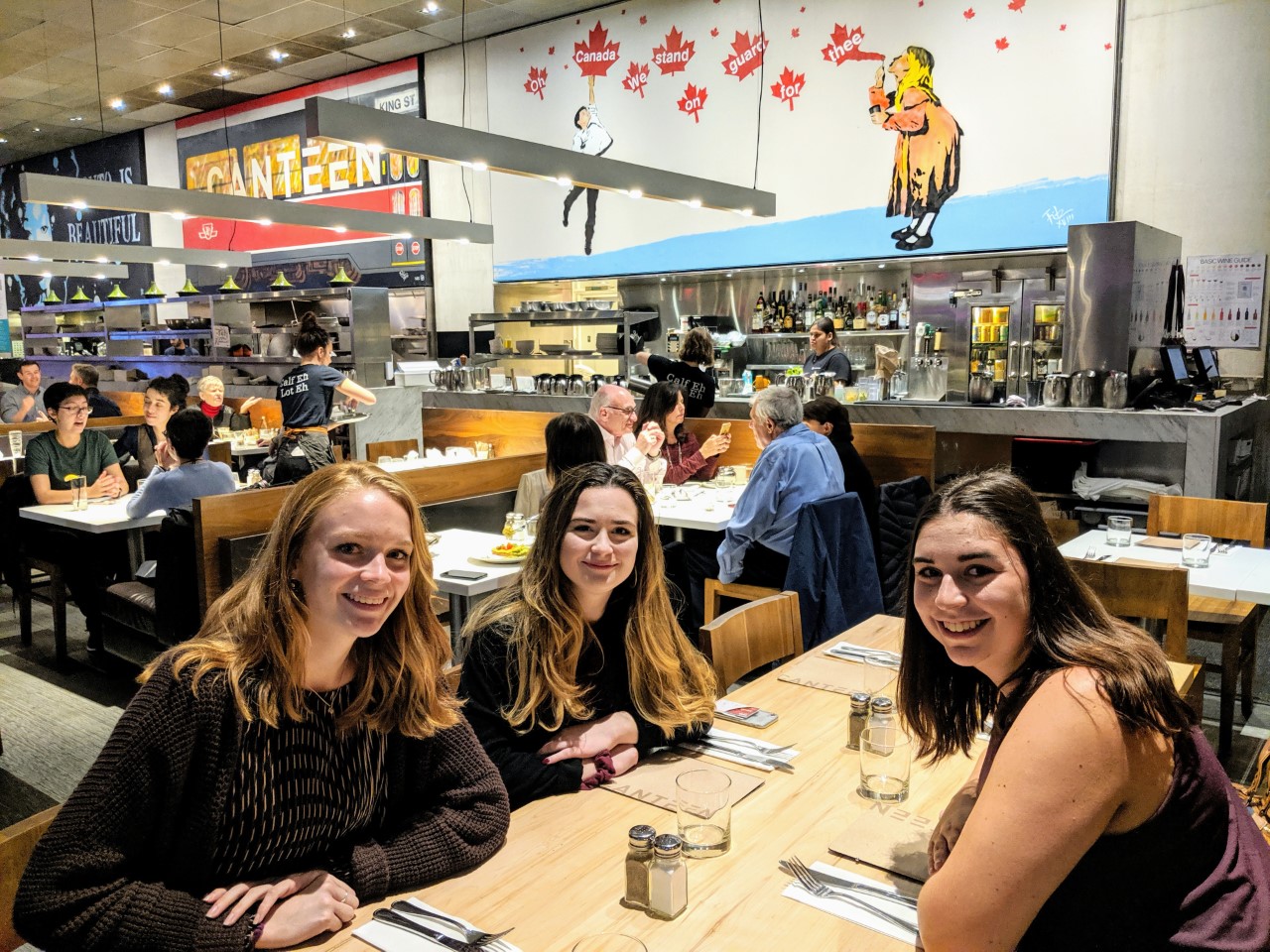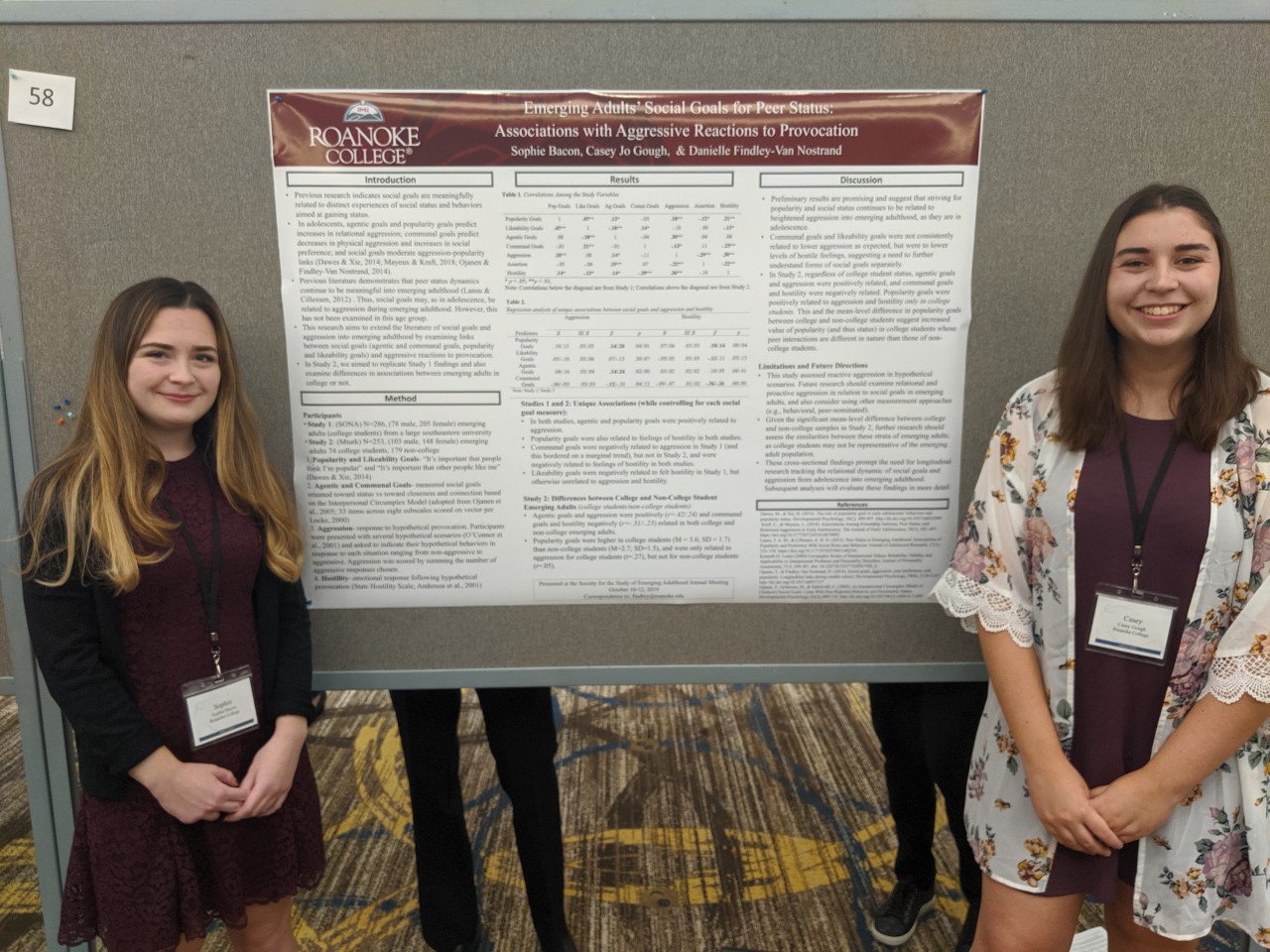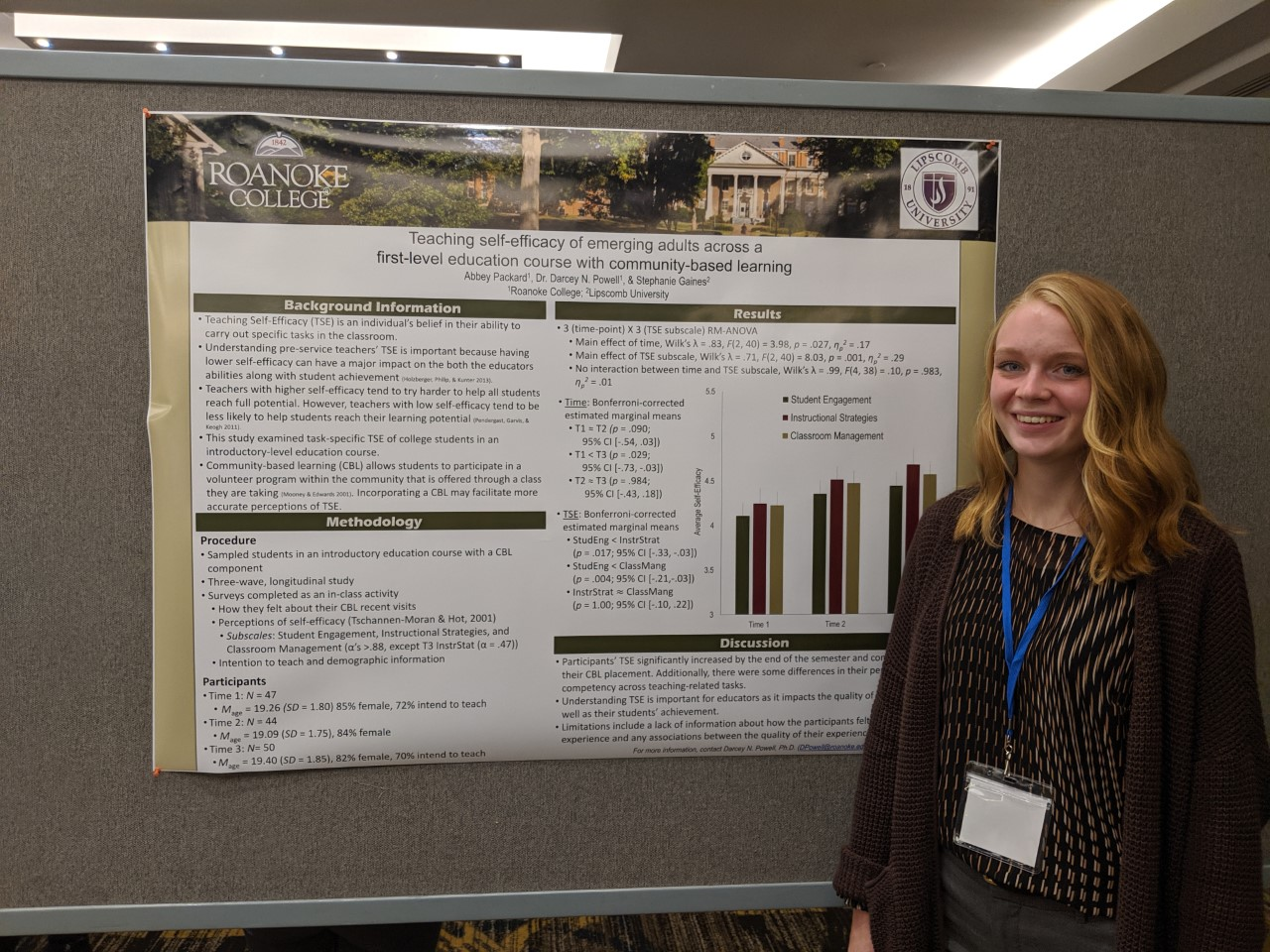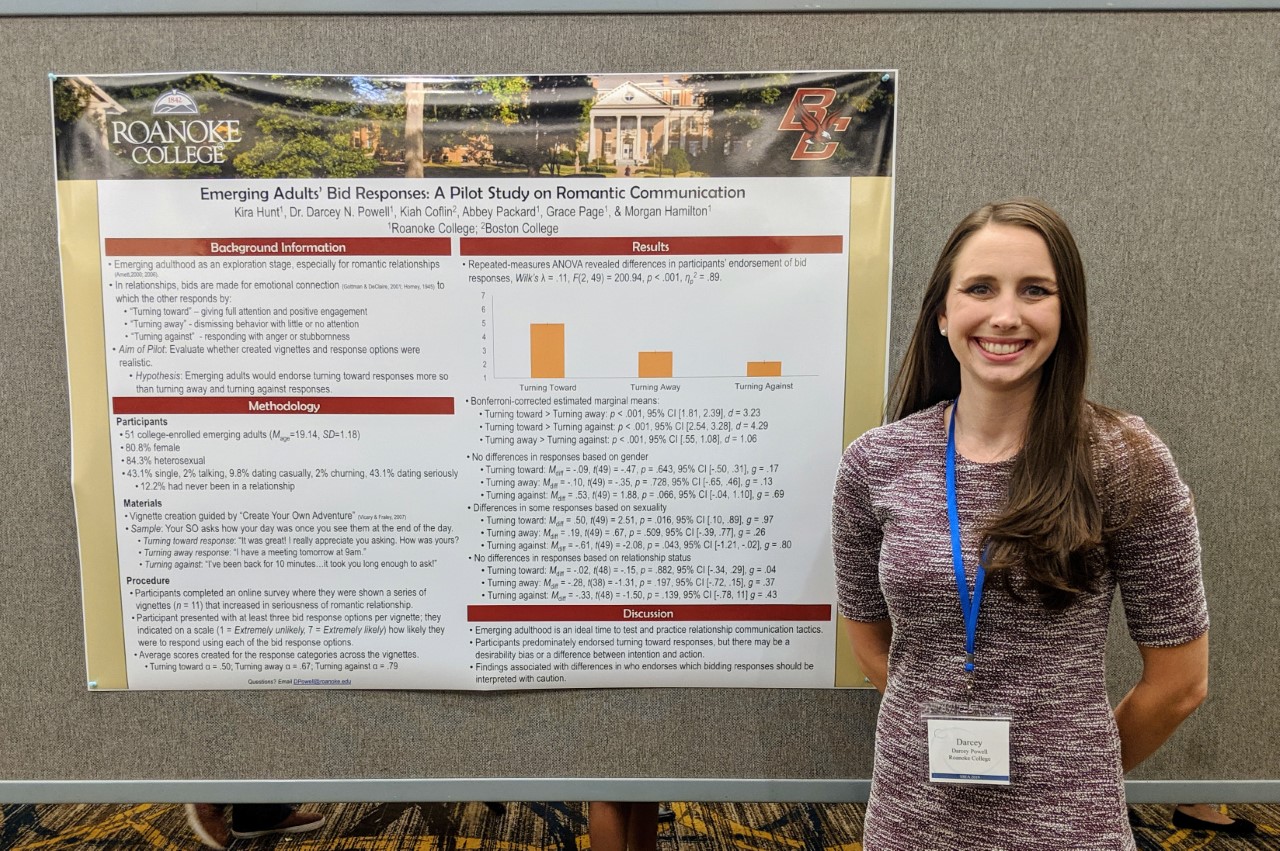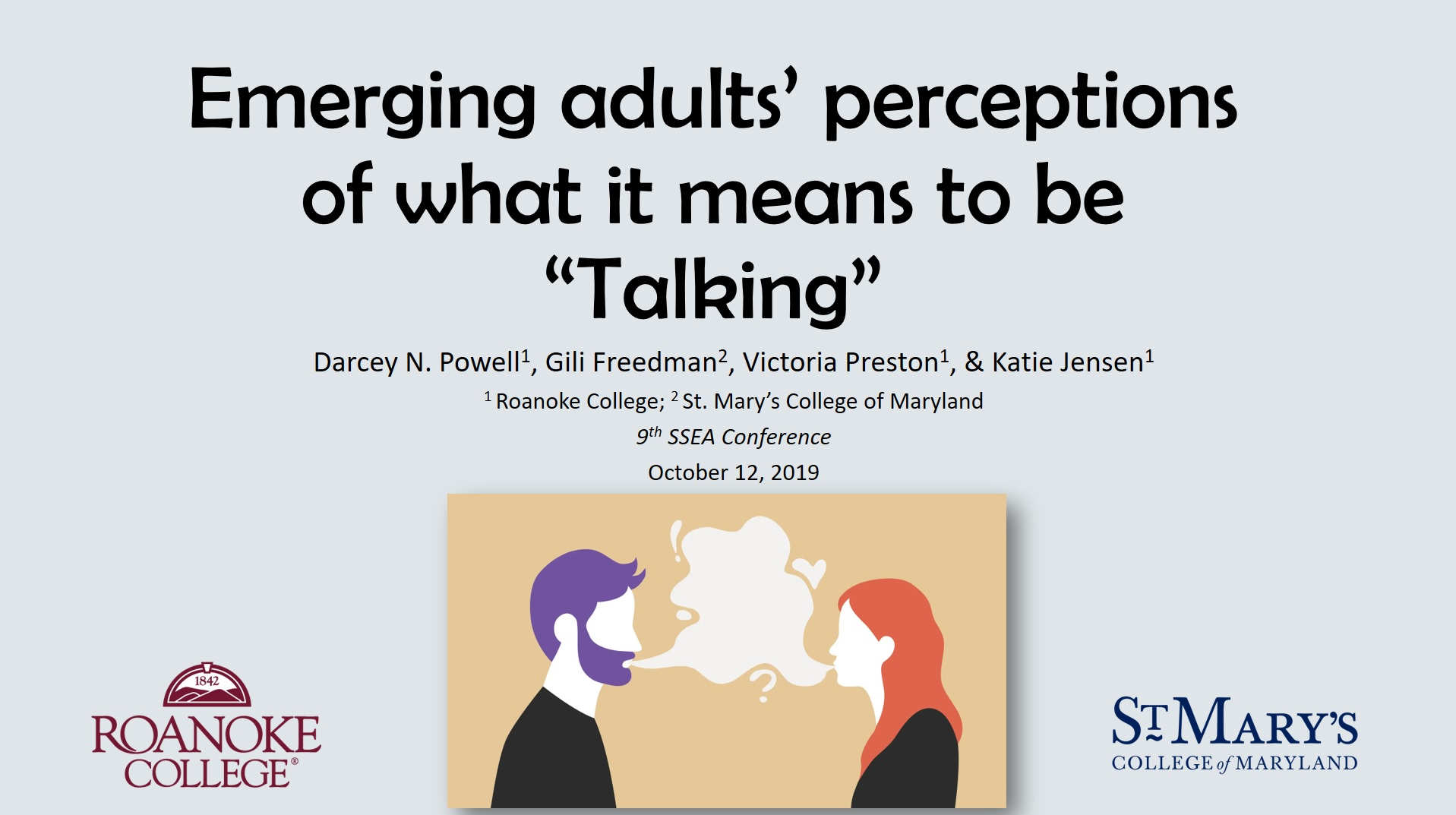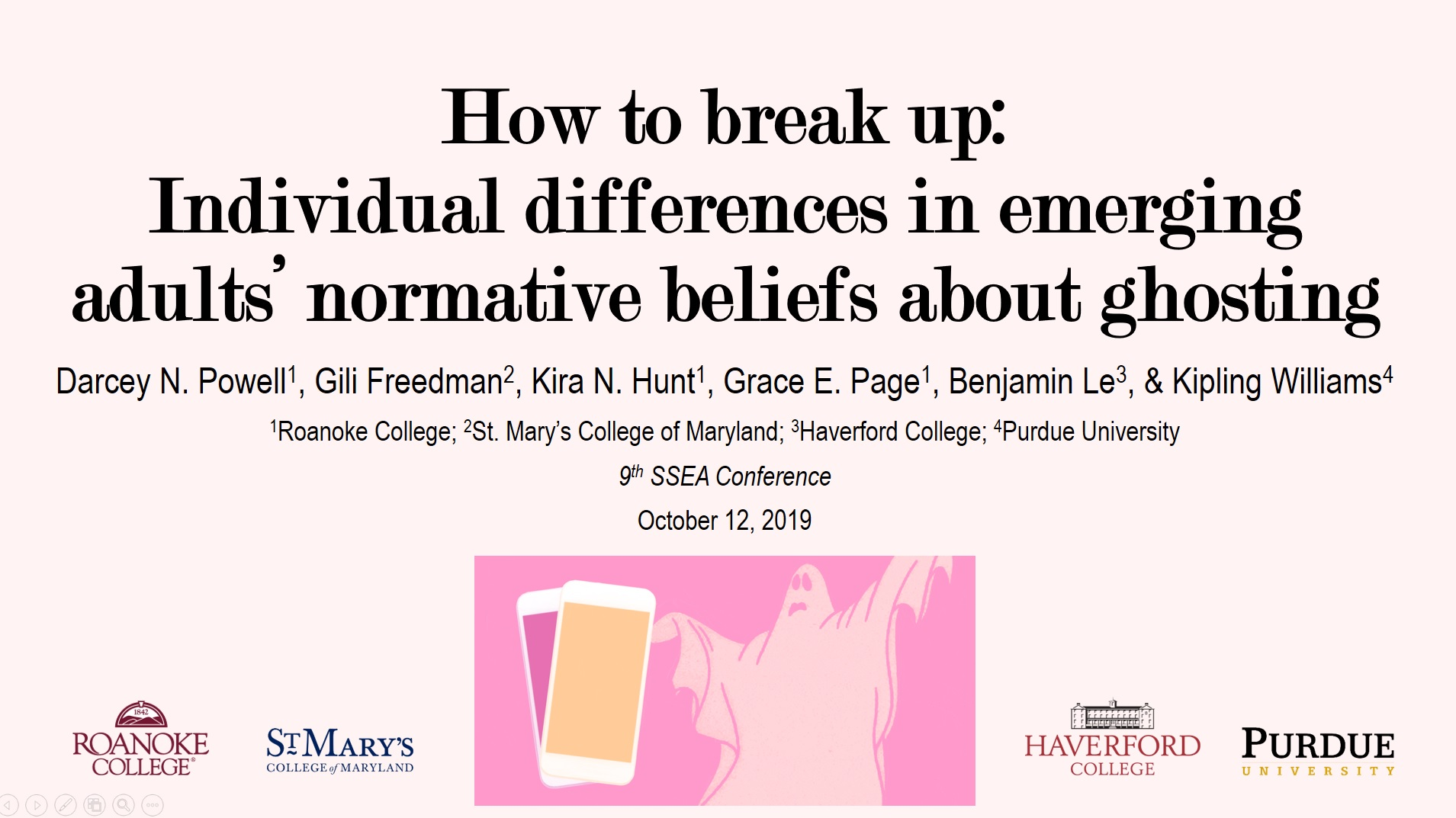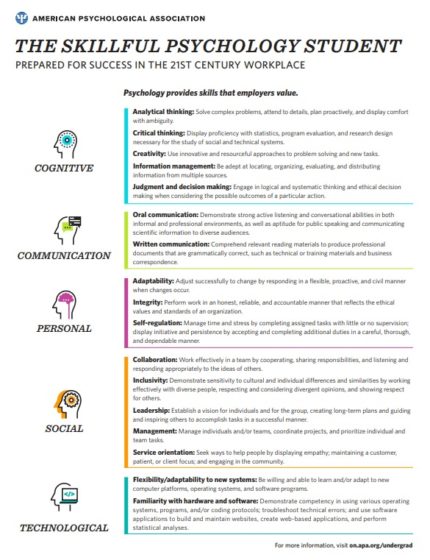The Society of Southeastern Social Psychologists (SSSP) conference was a fantastic opportunity for our Roanoke College psychology students and faculty to engage with cutting-edge research and network with peers across the field. Professors FVN, Dr. Bu, and Dr. Carter attended the event alongside students Sydney Pennix, Ivy Phillips, Gabby Bosch, Shannon Dennehey, and Cassie Eddins.
We recently connected with some of the attending students to hear about their unique experiences, the research they presented, and the advice they have for students considering attending similar events.
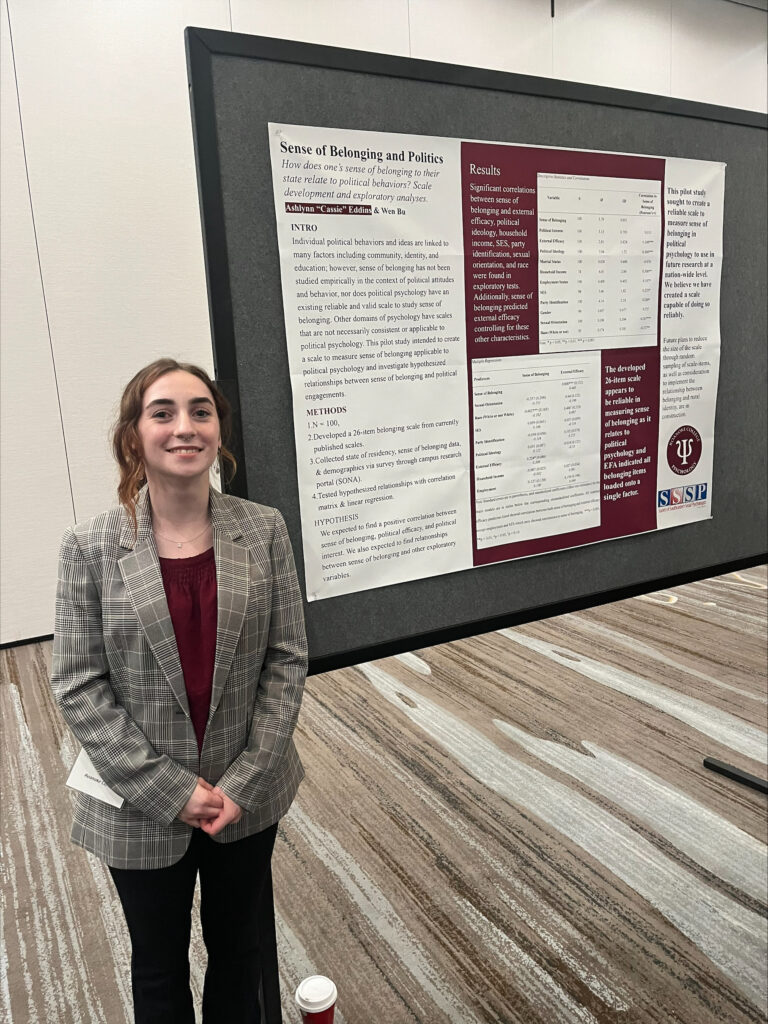
Cassie Eddins collaborated with Dr. Bu on research developing a new scale to measure sense of belonging within political psychology—an area with no current standardized measures. Although she doesn’t plan to pursue research as a career, Cassie found inspiration at the conference and is now interested in exploring how sense of belonging manifests in third-culture children, such as those from military or immigrant families.
Cassie also had the chance to explore other undergraduates’ research projects. One presentation that stood out to her focused on the relationship between personal sexuality and the ability to accurately perceive others’ sexual orientations. “It was fascinating to see how personal biases might influence these perceptions,” Cassie shared, “Discovering unique topics like this made the experience even more enriching and broadened my understanding of the diverse areas being explored in psychology.”
Cassie shared her perspective of the experience in saying that, “SSSP was very non-threatening, especially for those of us who might not feel super confident with public speaking,” she continued, “I would definitely recommend attending—it’s a welcoming environment with fascinating research to explore.”
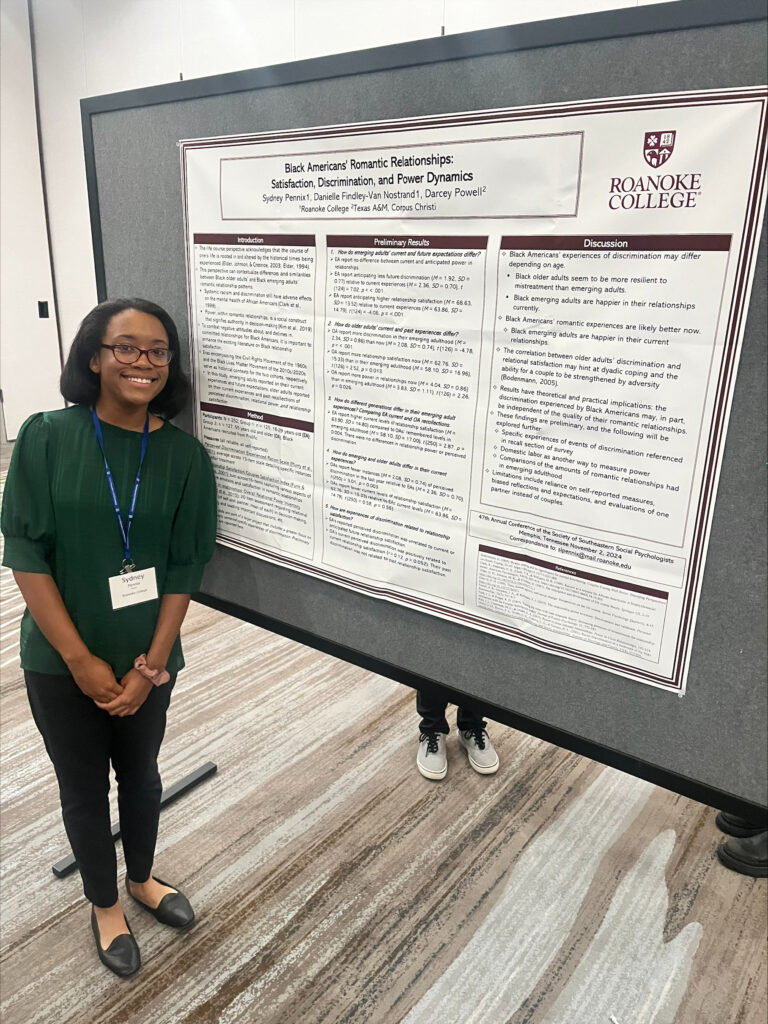
Sydney Pennix presented her study on how discrimination affects the romantic relationships of emerging and older Black Americans. “Conducting this research was fulfilling and eye-opening,” Sydney reflected, noting that her findings were surprising to both herself and her audience. She also found the graduate student panel to be particularly valuable, offering insights she’s already applying in her professional journey.
Sydney’s advice for her peers? “Take opportunities to present your research or attend others’ presentations. It’s incredible to converse with people who share your interests, especially outside of the classroom.”
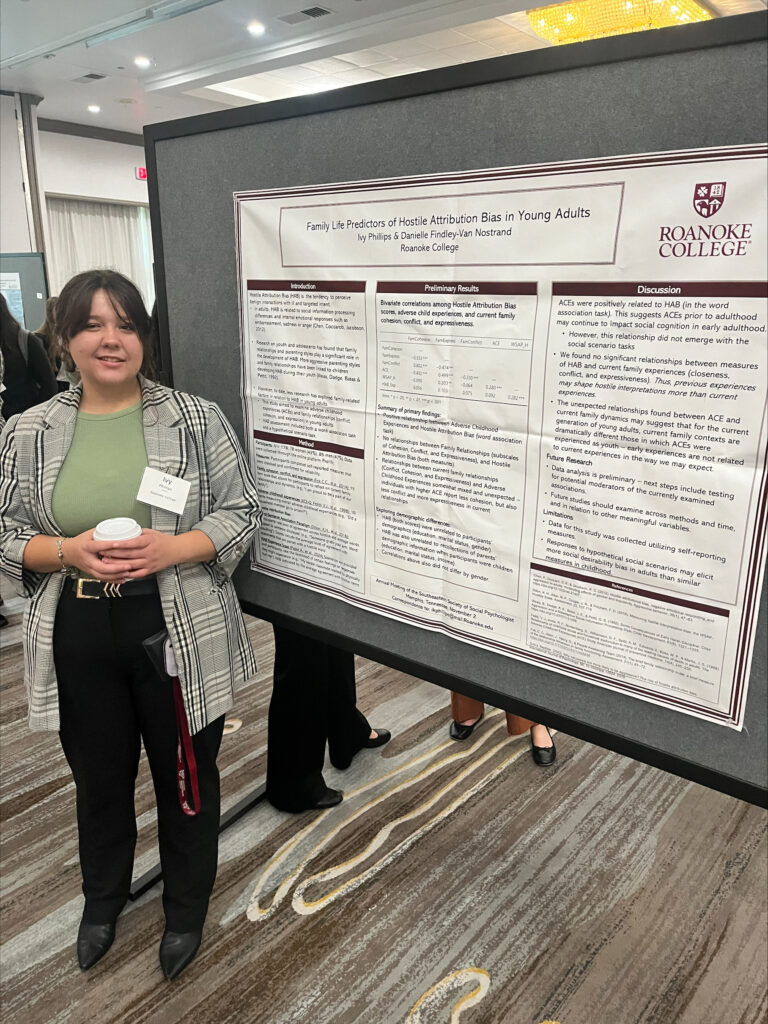
Ivy Phillips is researching predictors of Hostile Attribution Bias in young adults with Dr. FVN, focusing on the influence of family relationships and adverse childhood experiences. The critical analysis of her data was challenging but rewarding, and Ivy appreciated the insights shared at the graduate school panel.
For Ivy Phillips, the Conference offered valuable insights that align with her long-term goal of working in Community Psychology. “My personal highlights included research on youth development in community settings and how individuals’ experiences and relationships shape their views on specific policies and laws,” Ivy shared. “These topics were not only fascinating but also inspired me to consider exploring them further in my own future research.”
Her biggest takeaway? “Get involved in as many experiences as possible, even if it feels outside your comfort zone. These opportunities build valuable skills and provide great stories that will benefit you long-term.”
More Photos From The Conference!
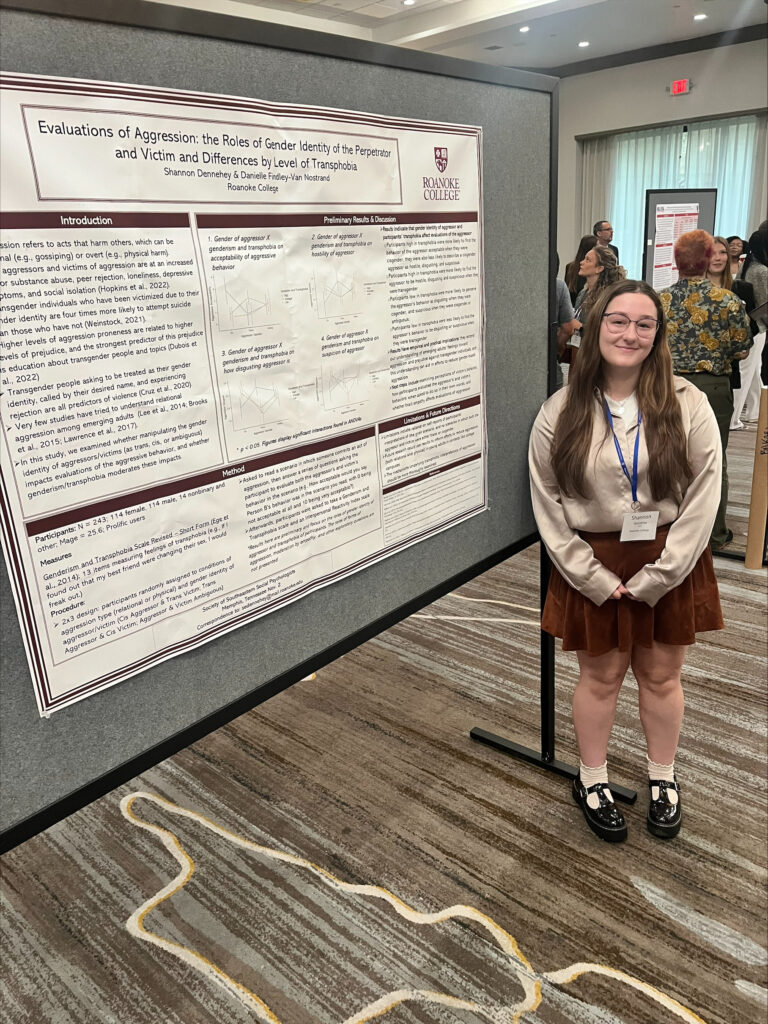
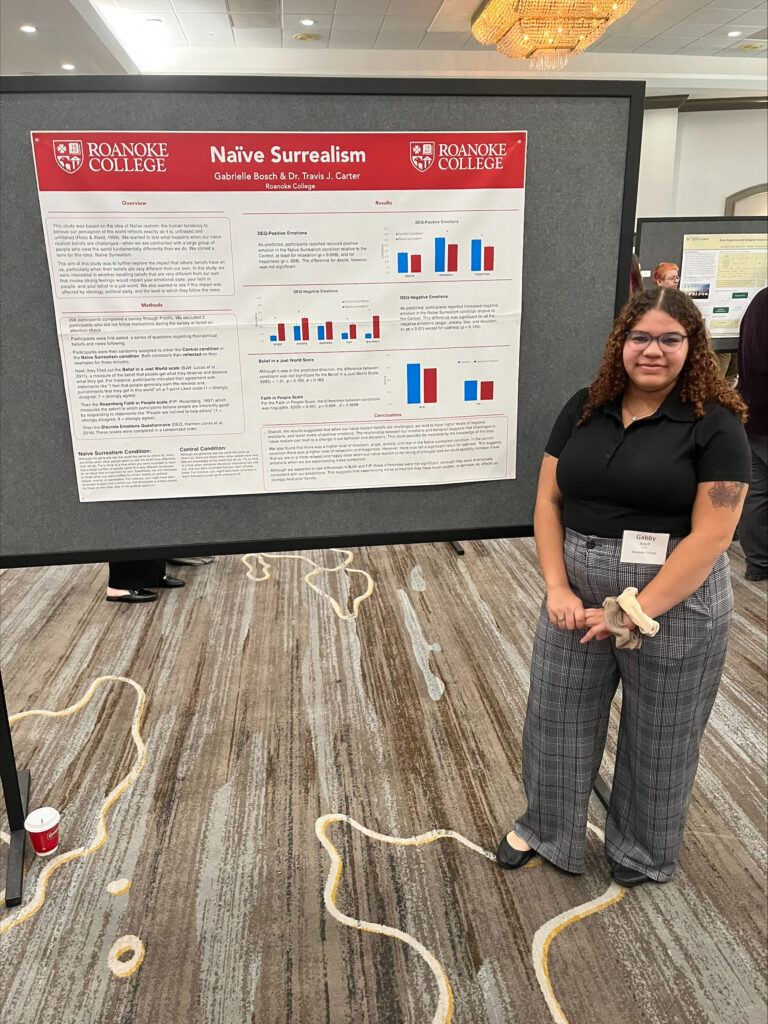
Shannon Dennehey and Gabby Bosch: Both Shannon and Gabby presented their research at the SSSP Conference alongside their peers. Check out their posters highlights in the photos attached!
Why Attend SSSP, or Any Conference For That Matter?
All our attendees—students and faculty alike—highly recommend participating in the SSSP Conference, as well as attending any psychology conference during your undergraduate years. Conferences like SSSP offer a welcoming environment and showcase a wide range of research presentations. Whether you go as a presenter or a spectator, these events provide a unique opportunity to explore new fields, connect with professionals, and deepen your understanding of psychology.
As Ivy put it best: “Talk to your professors and advisors to learn more about these opportunities—they can be incredibly valuable stepping stones for your future.”
Get Connected!
Blog: https://psych.pages.roanoke.edu/
Facebook: https://www.facebook.com/rcpsychology
Linked In: https://www.linkedin.com/groups/RC-Psychology-8140491/about
Website: http://www.roanoke.edu/inside/a-z_index/psychology
Instagram: rcpsychology






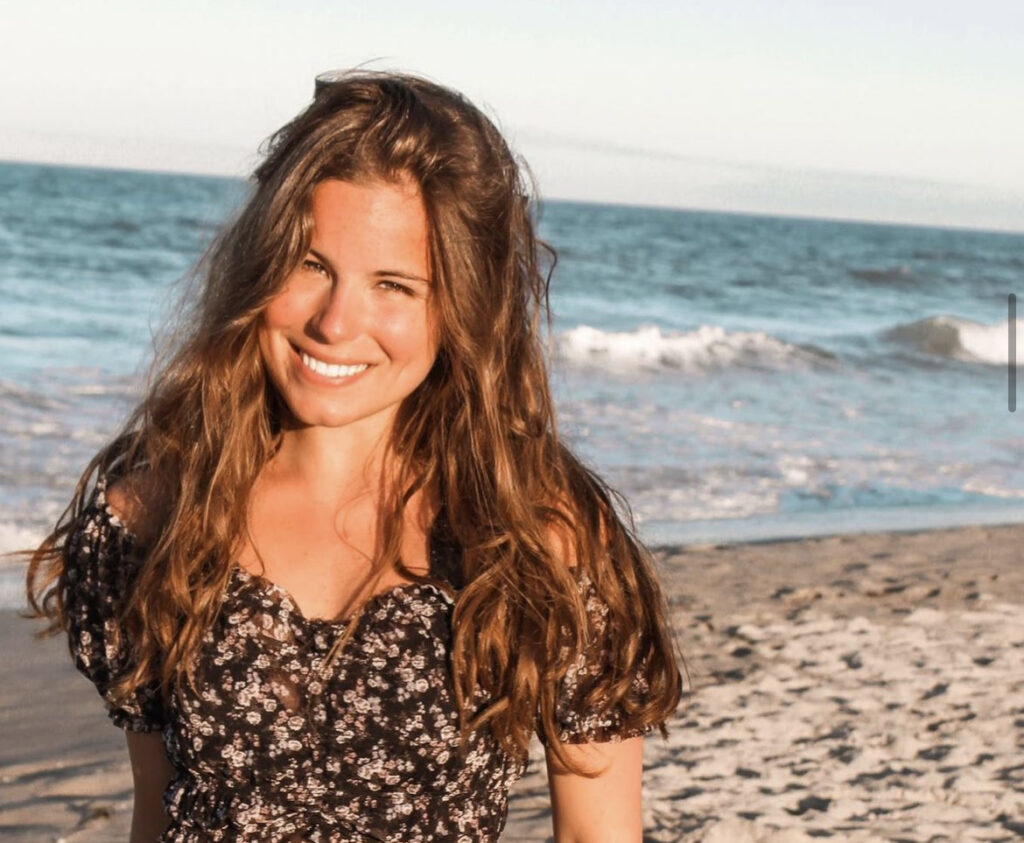
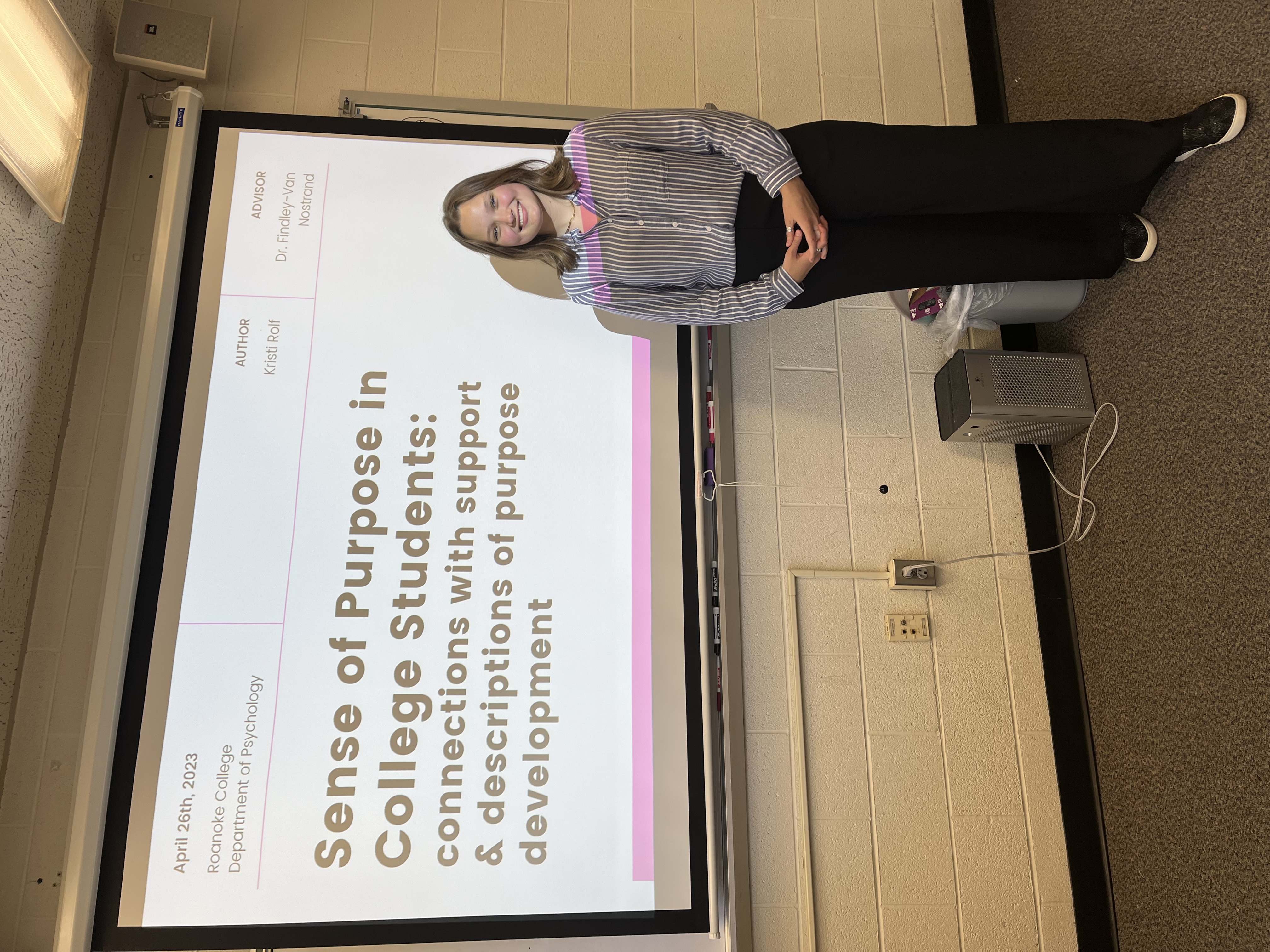

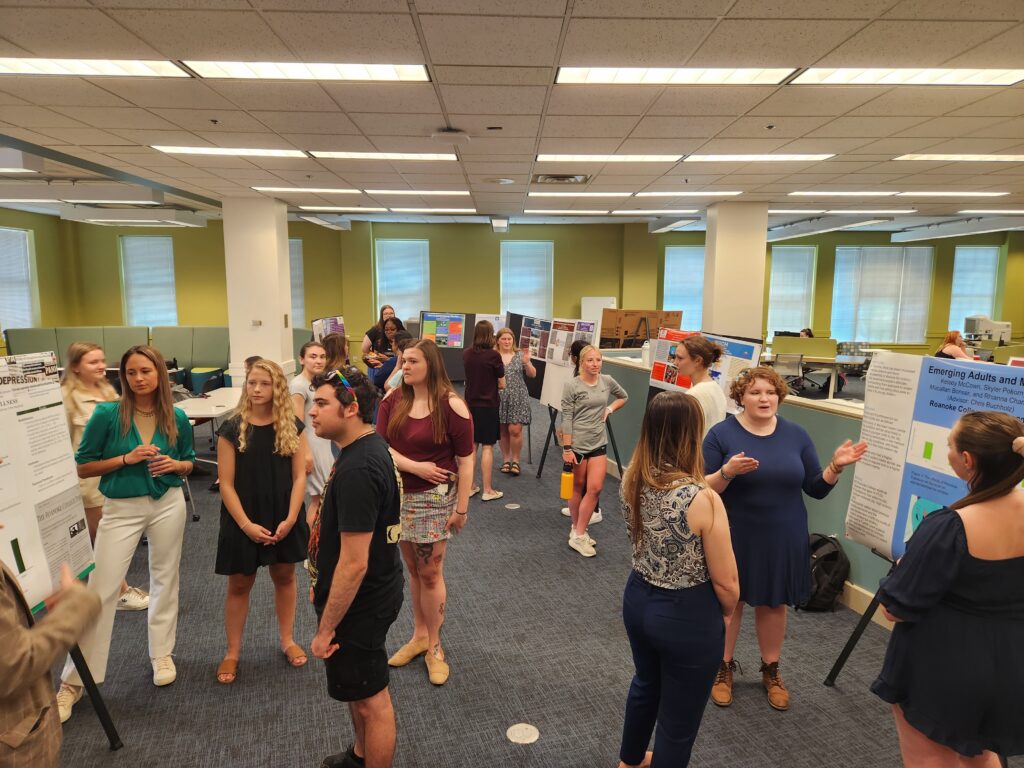
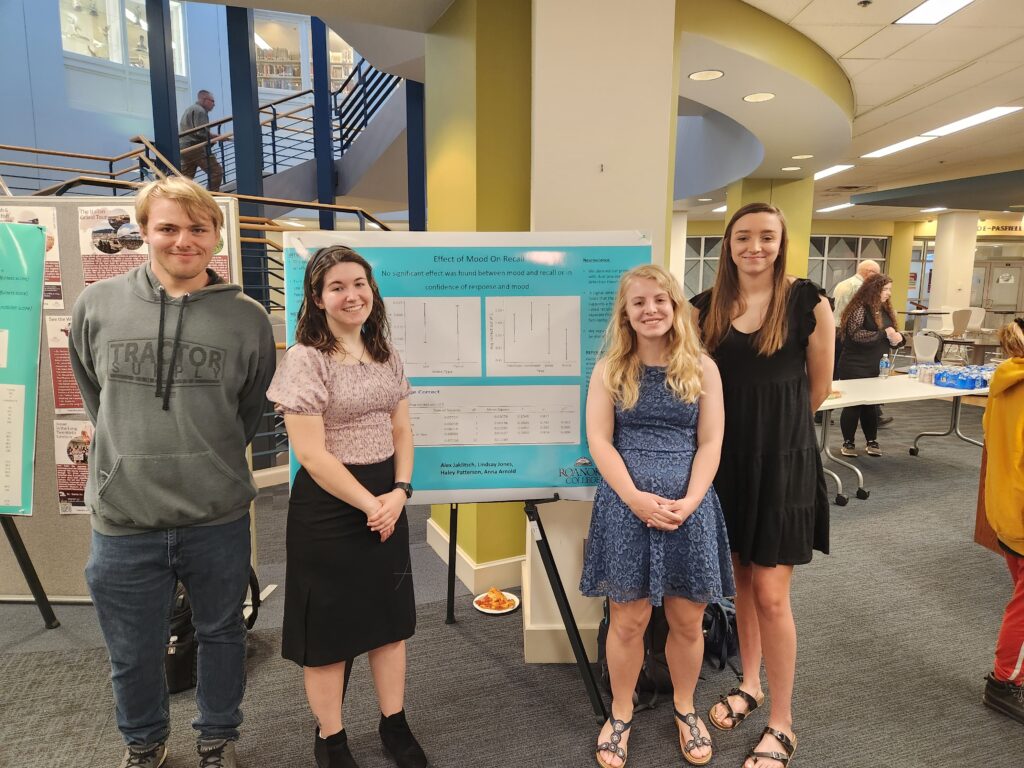
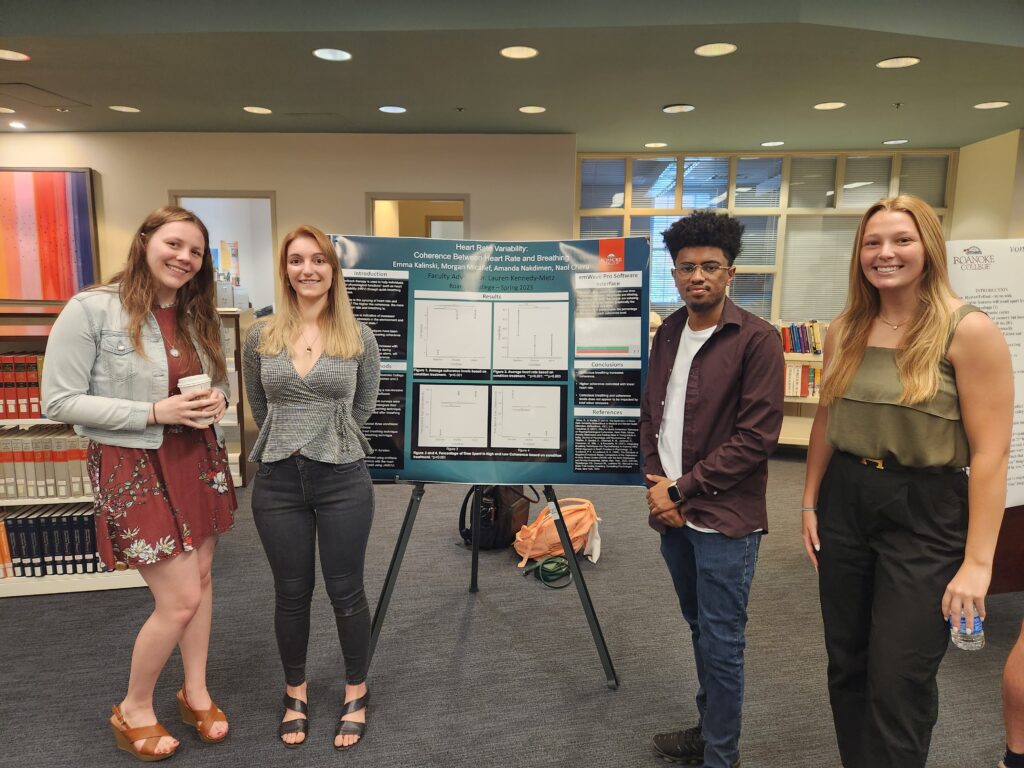
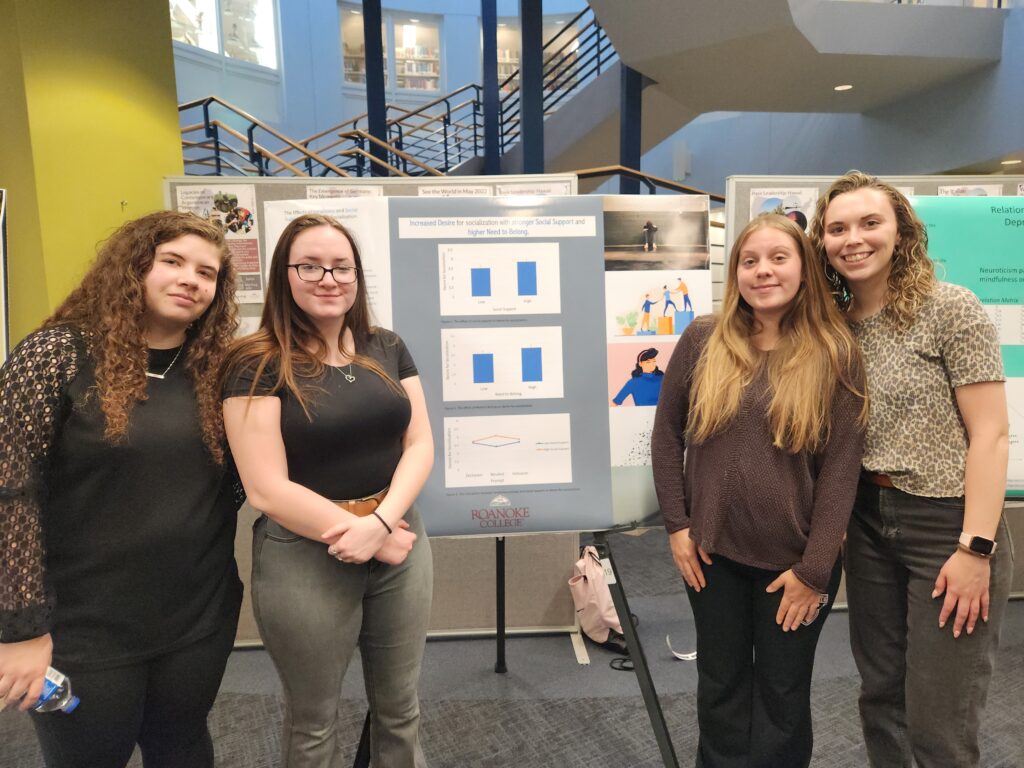
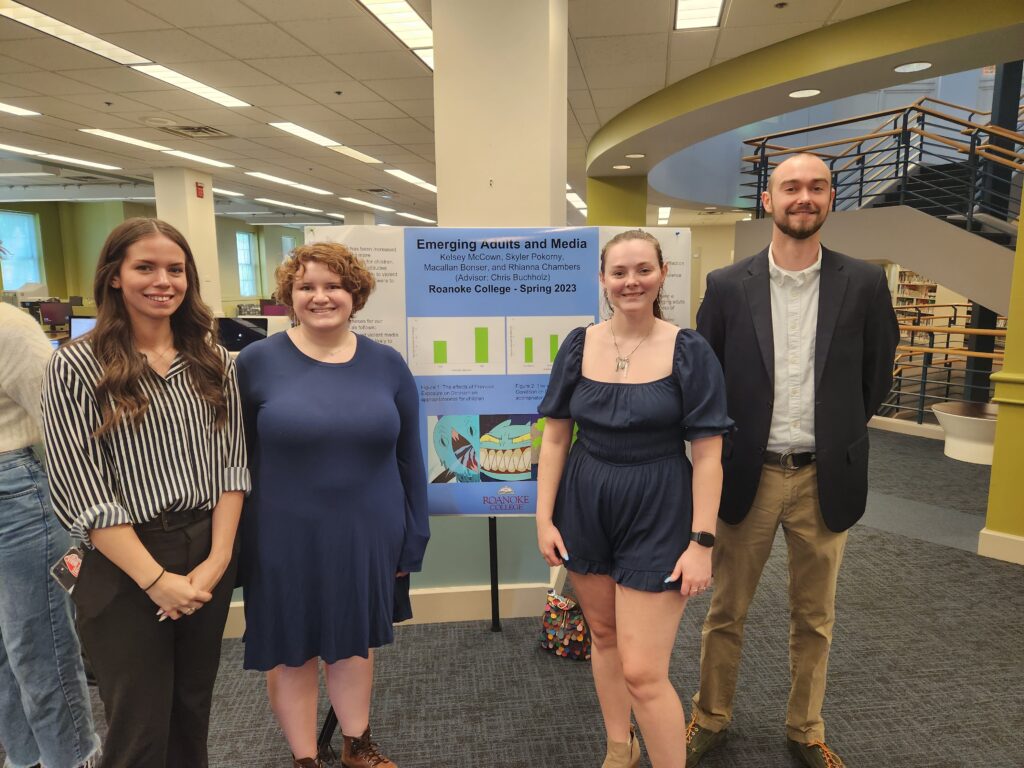
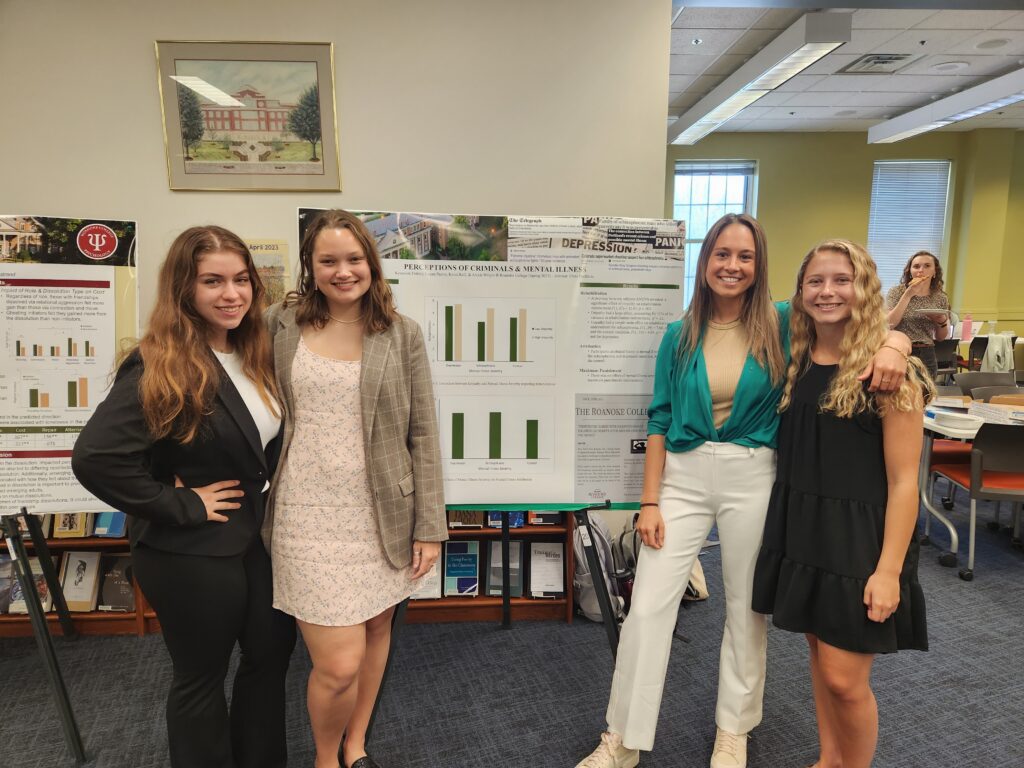
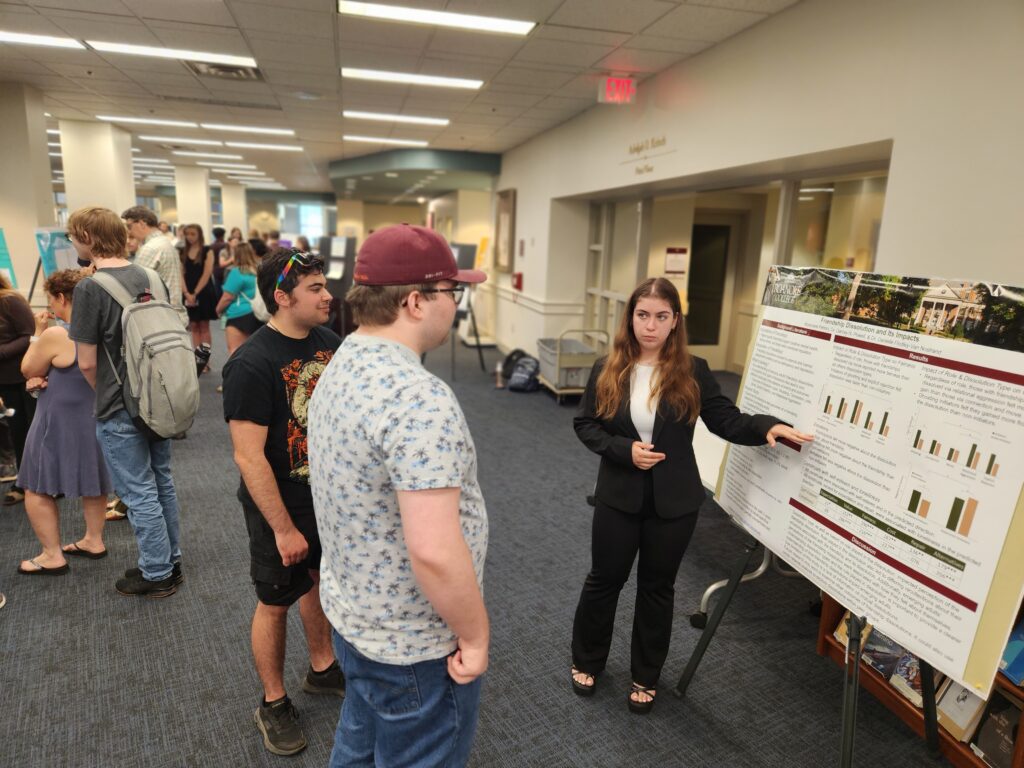
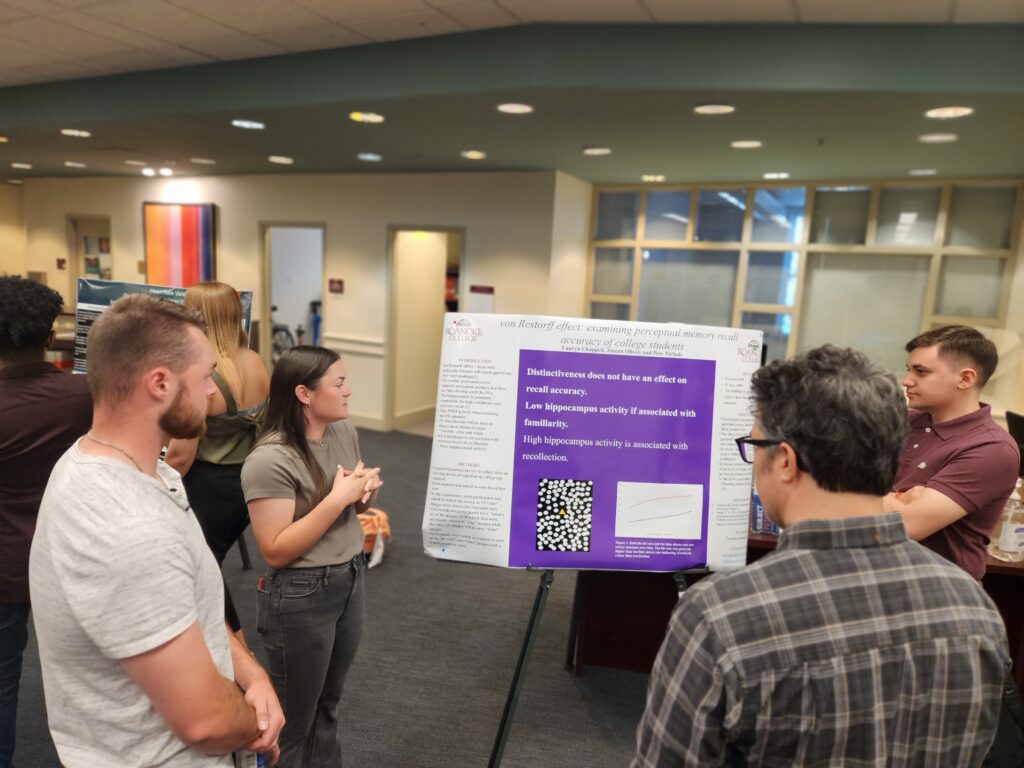
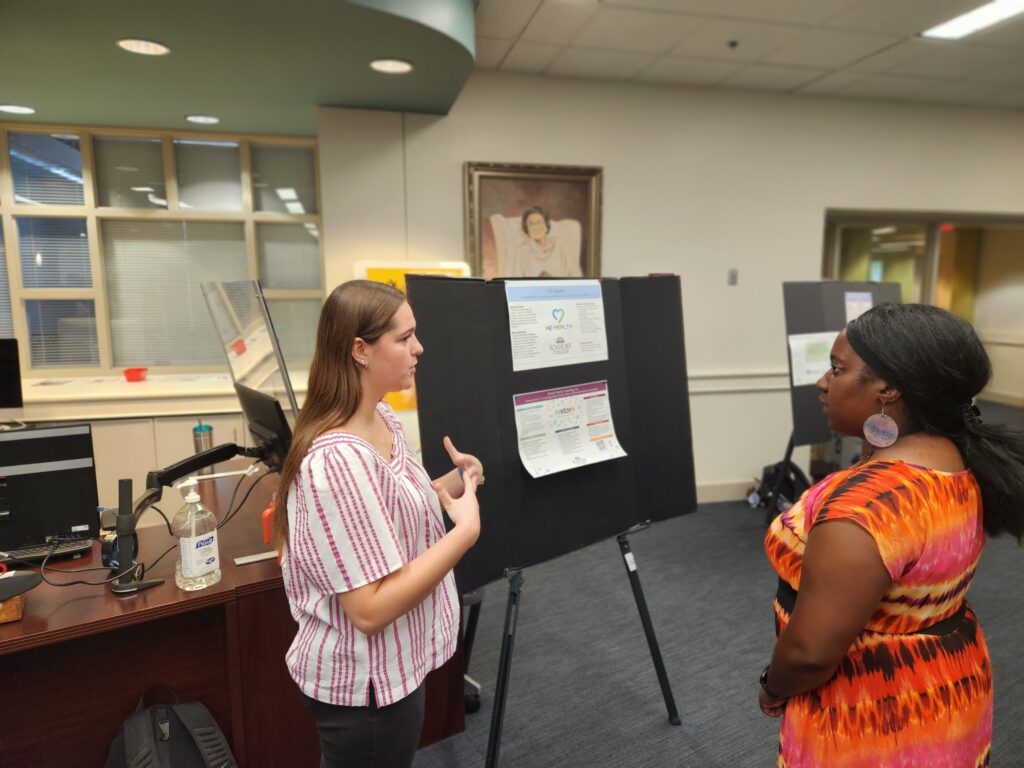
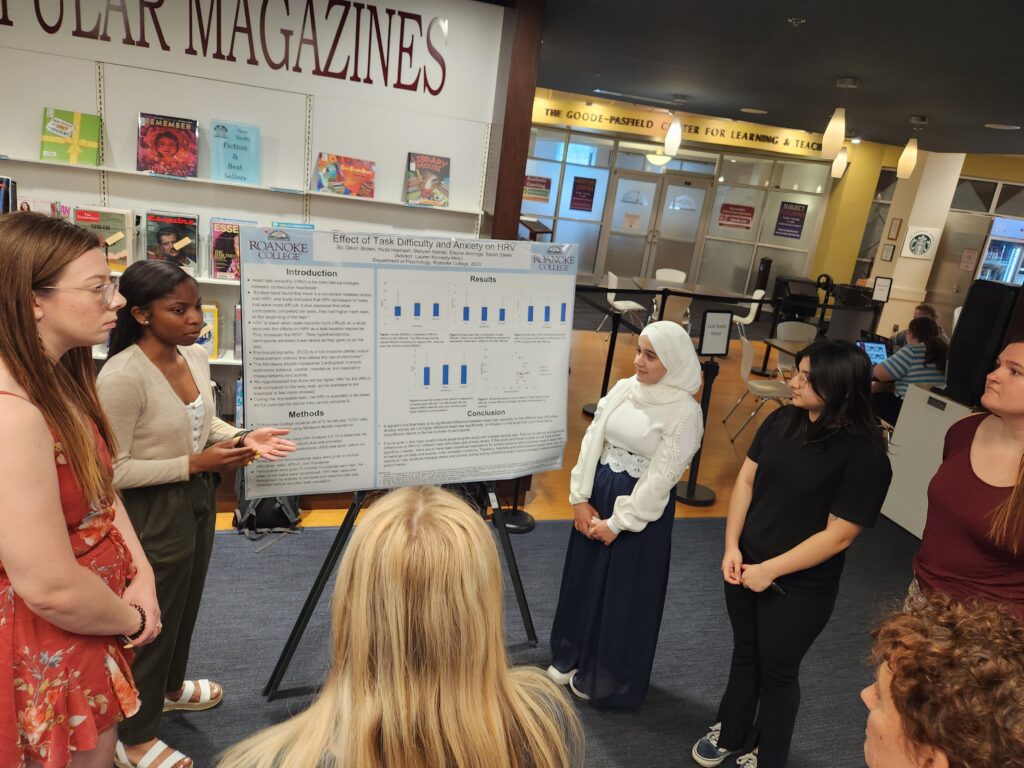
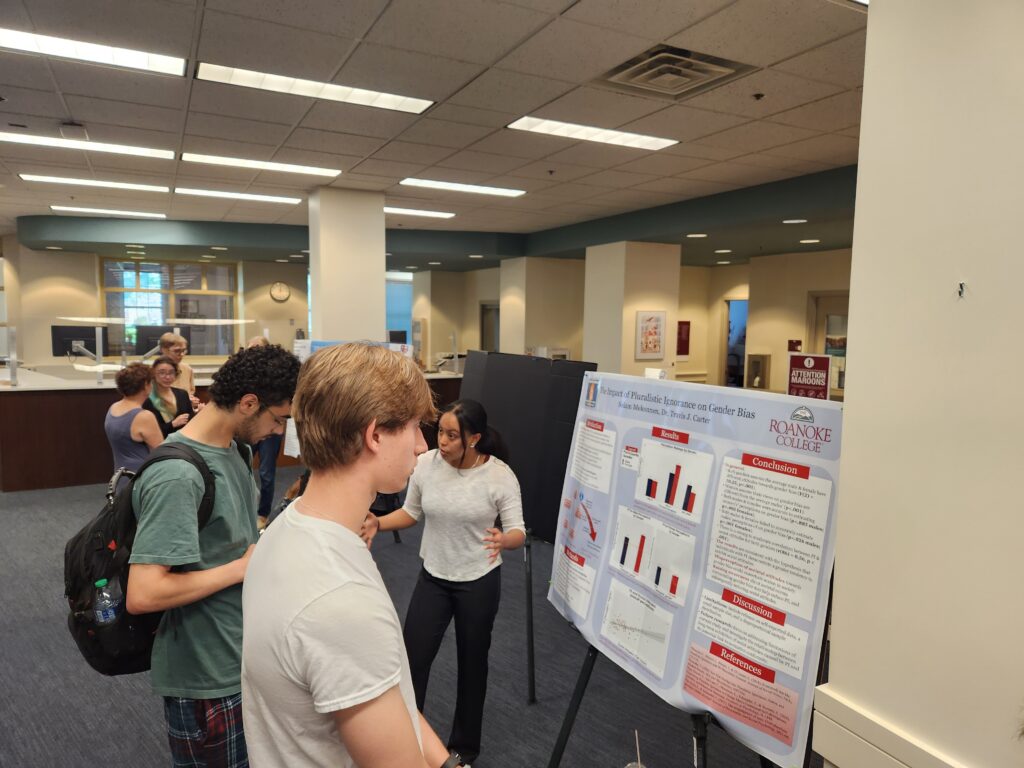
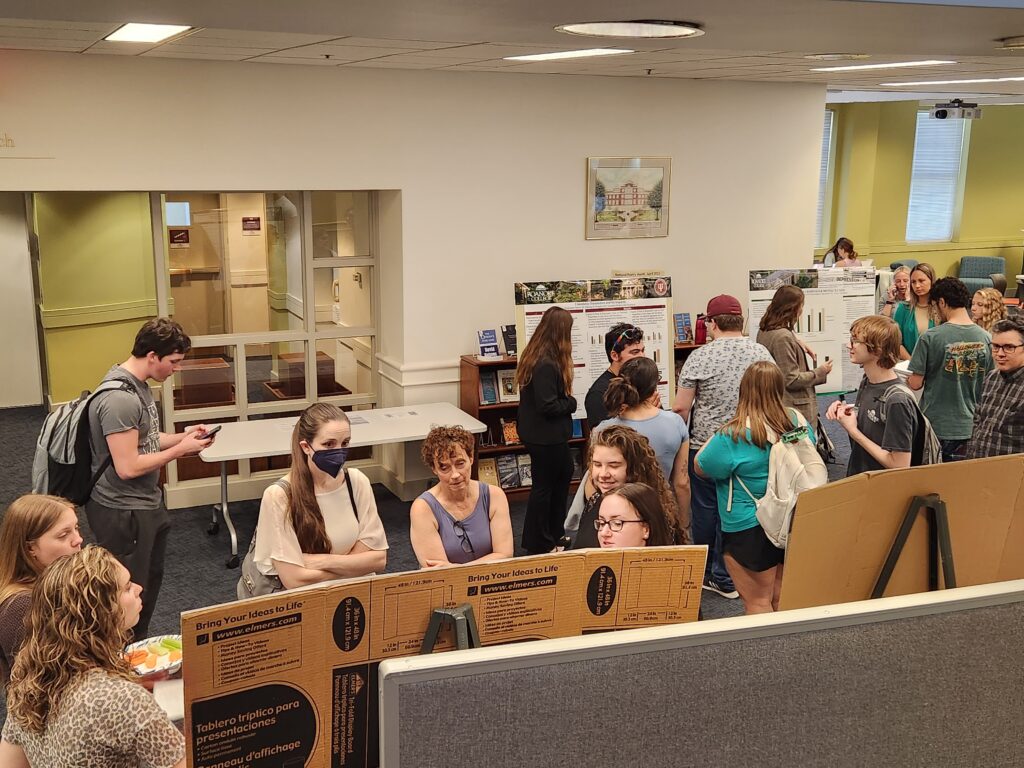


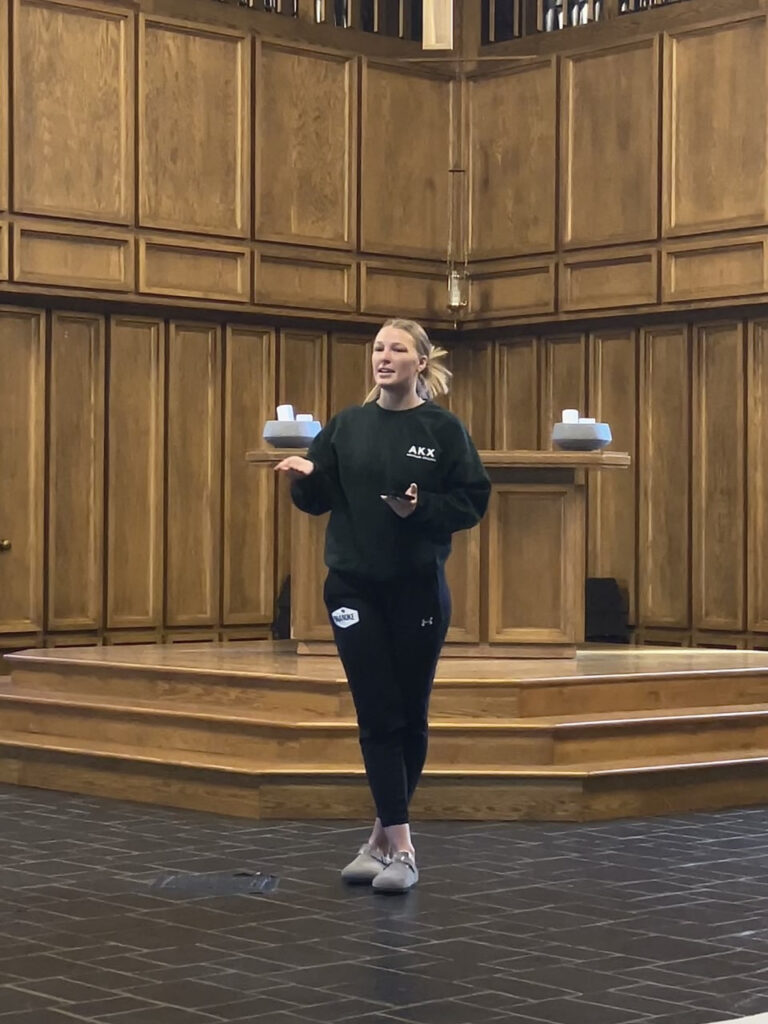
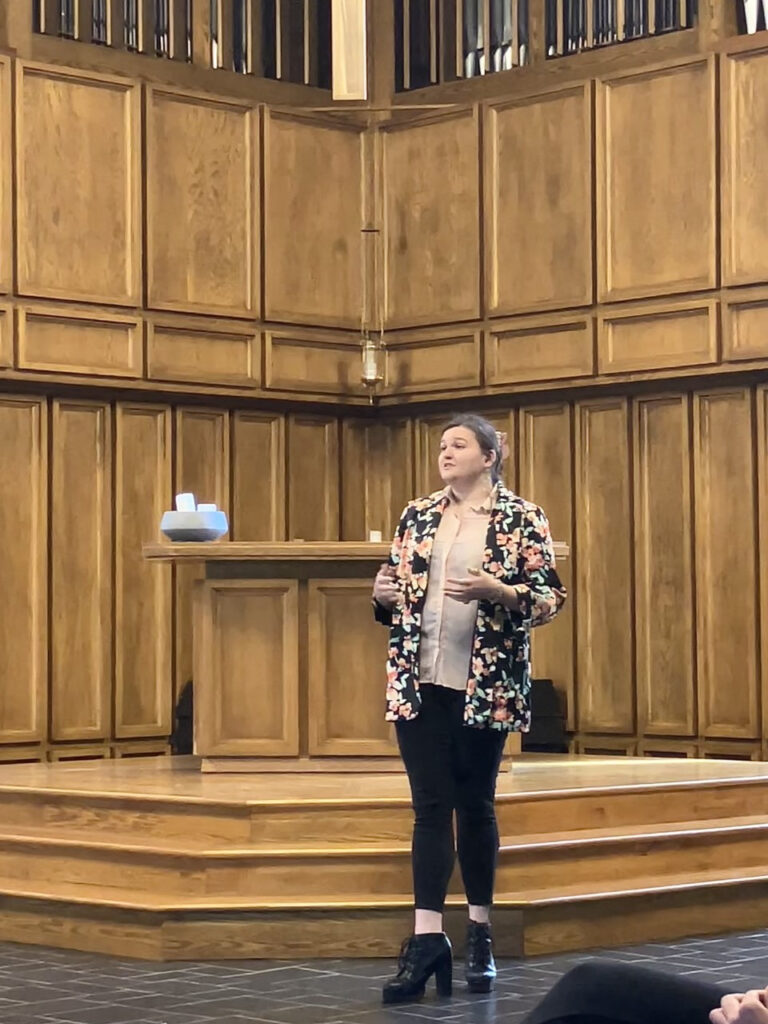
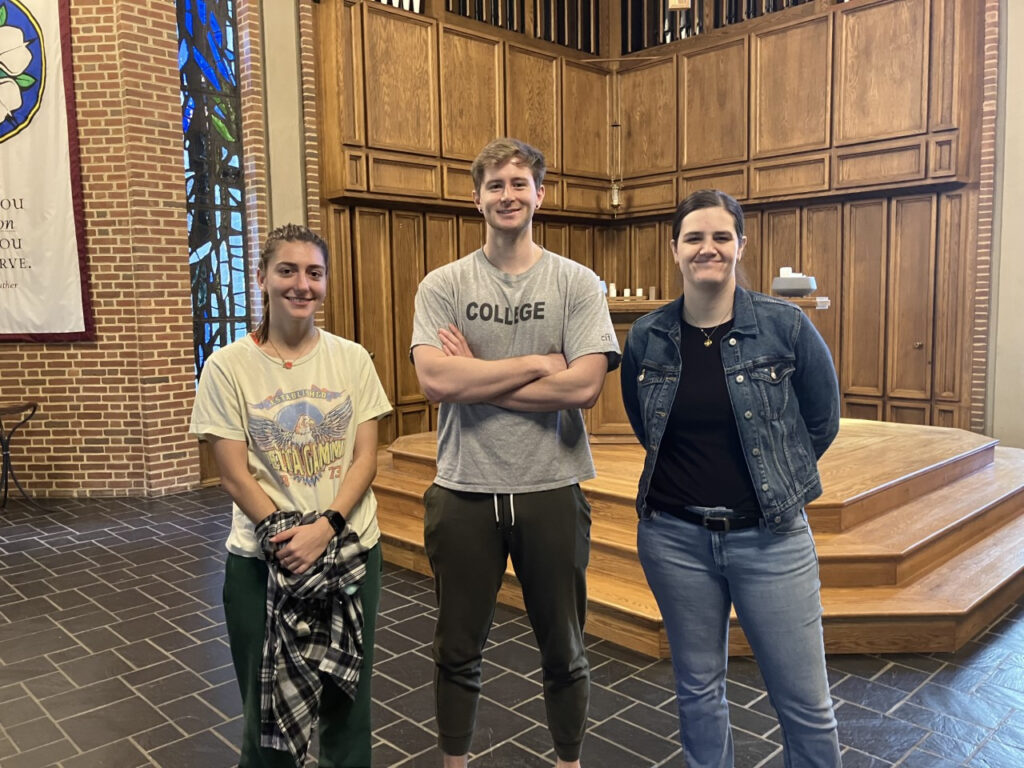
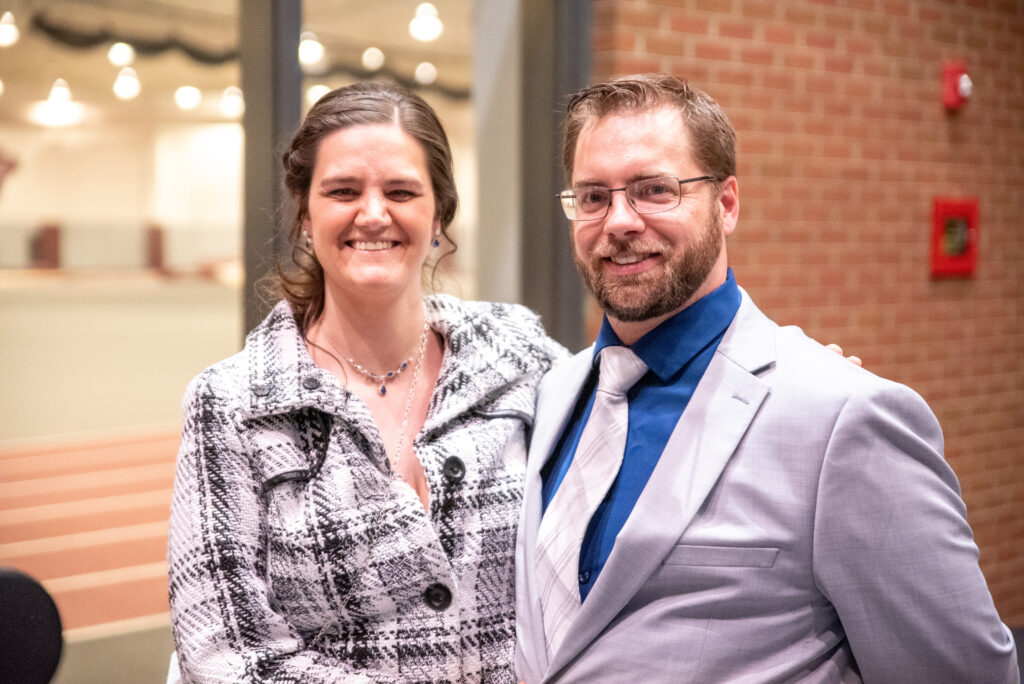
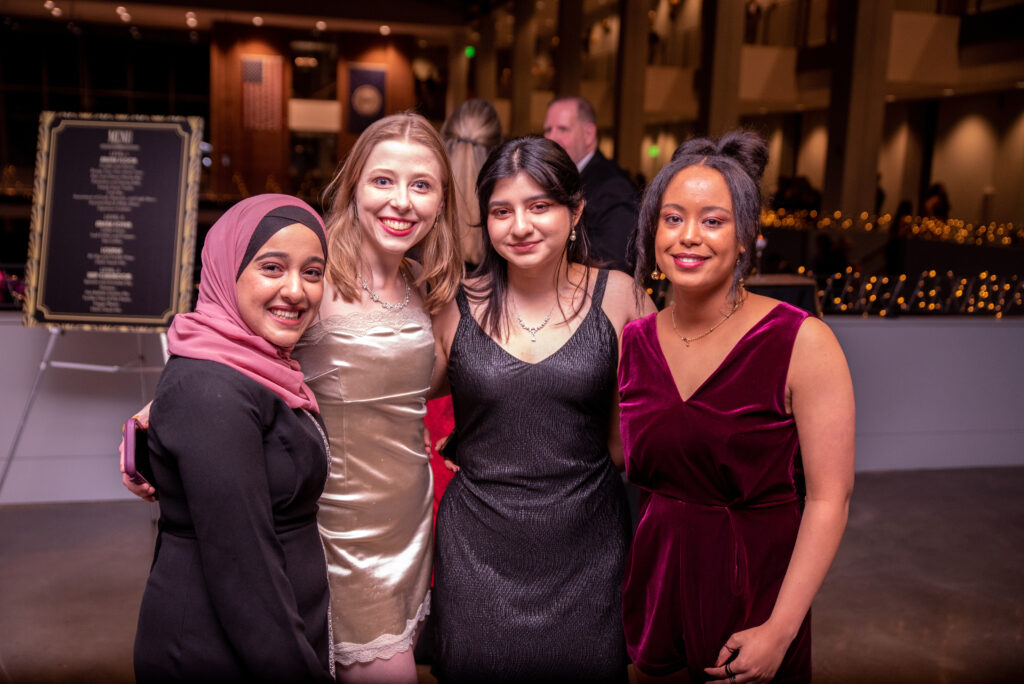
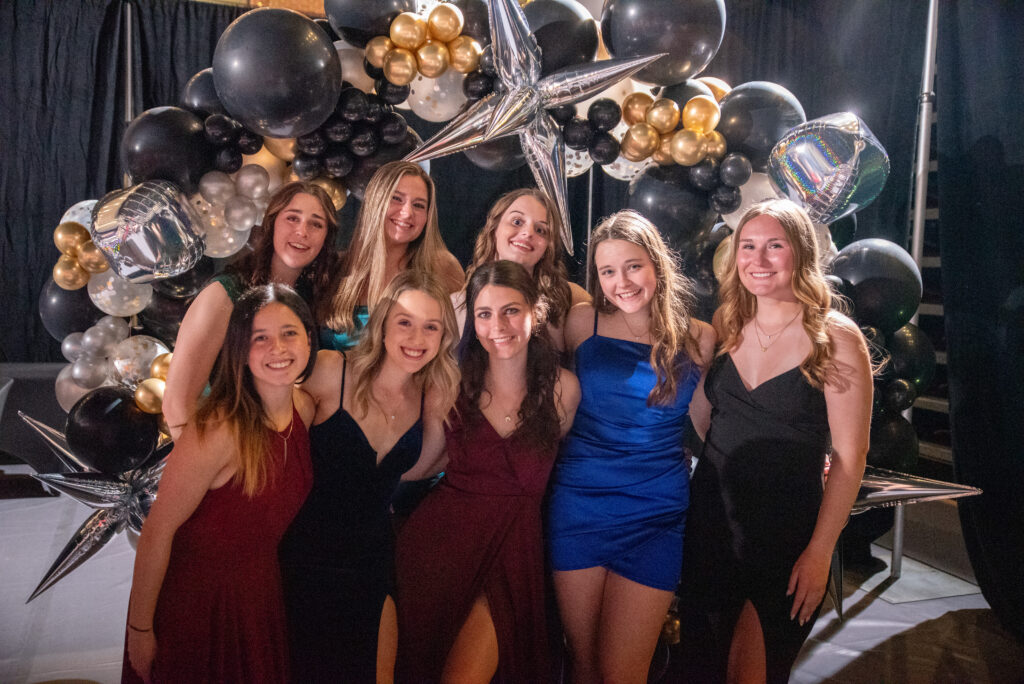
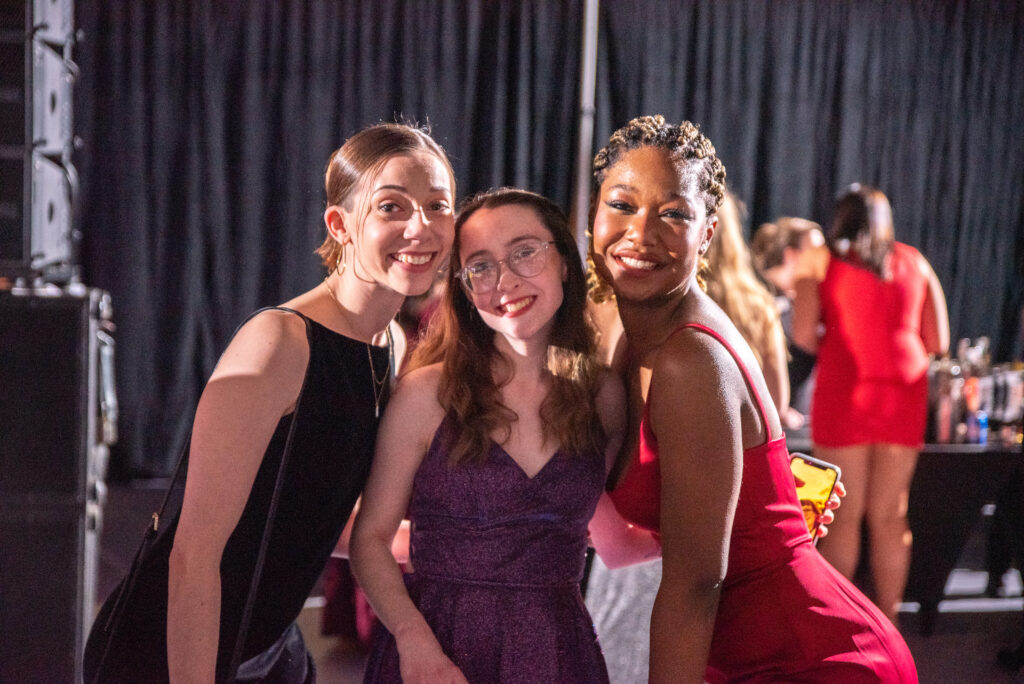
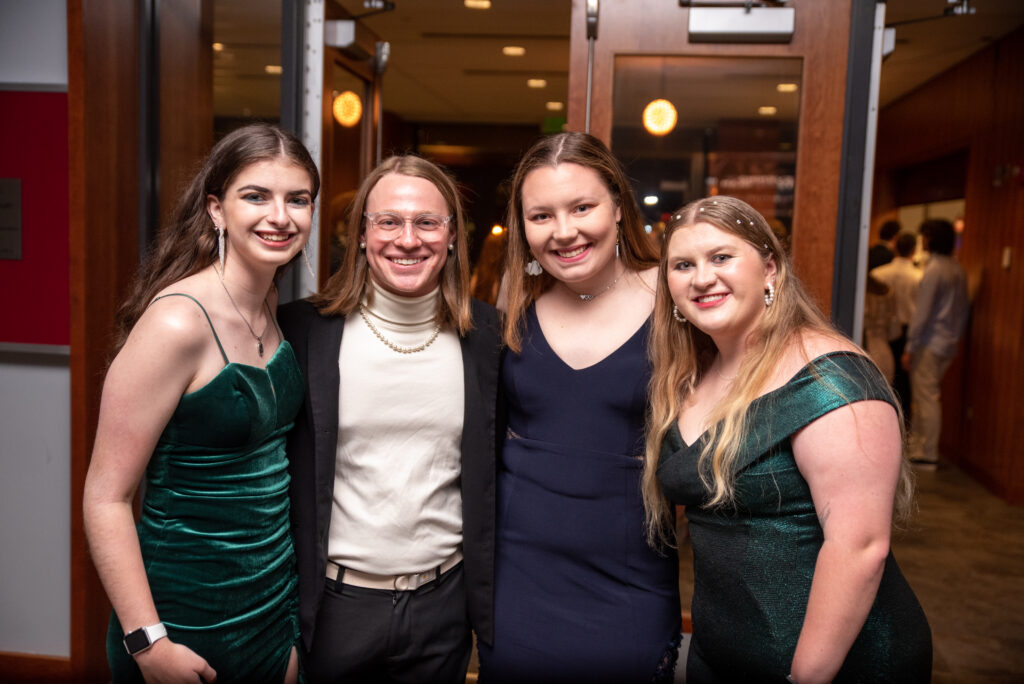
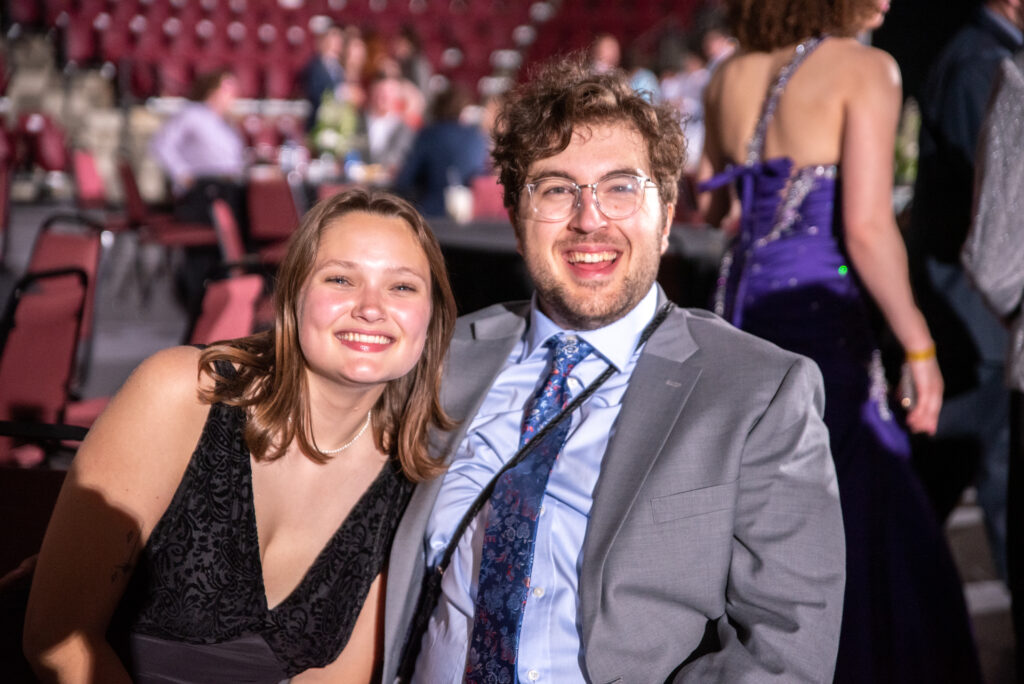
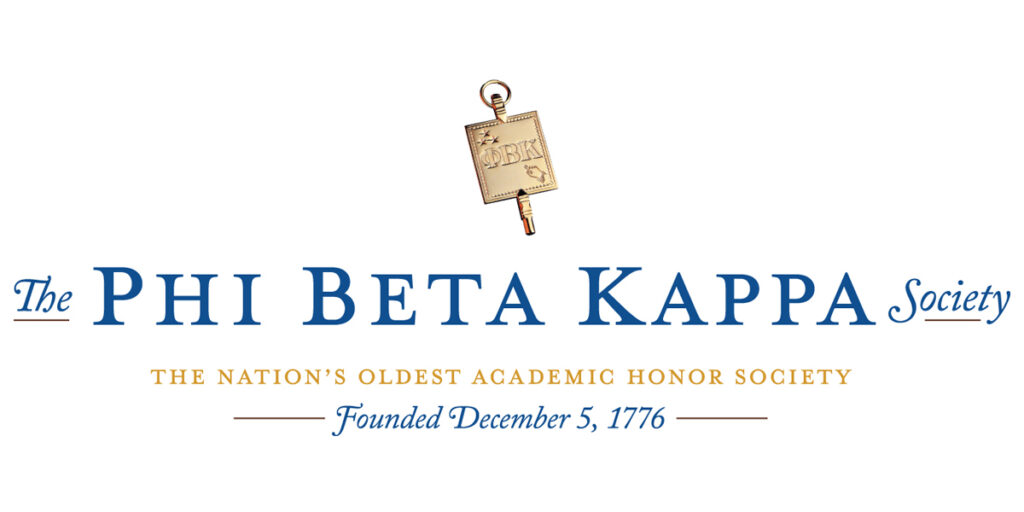
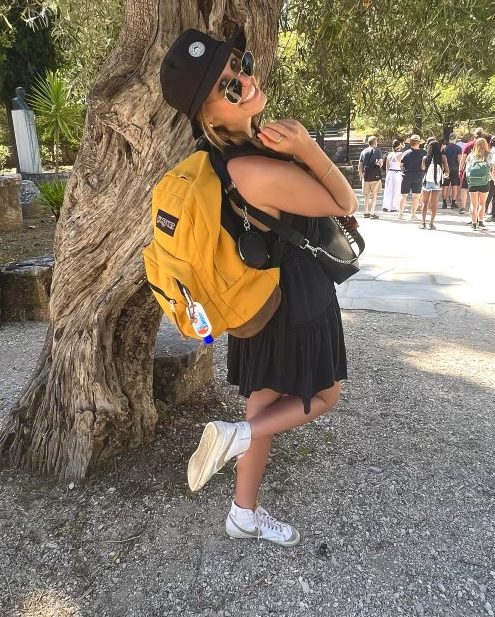
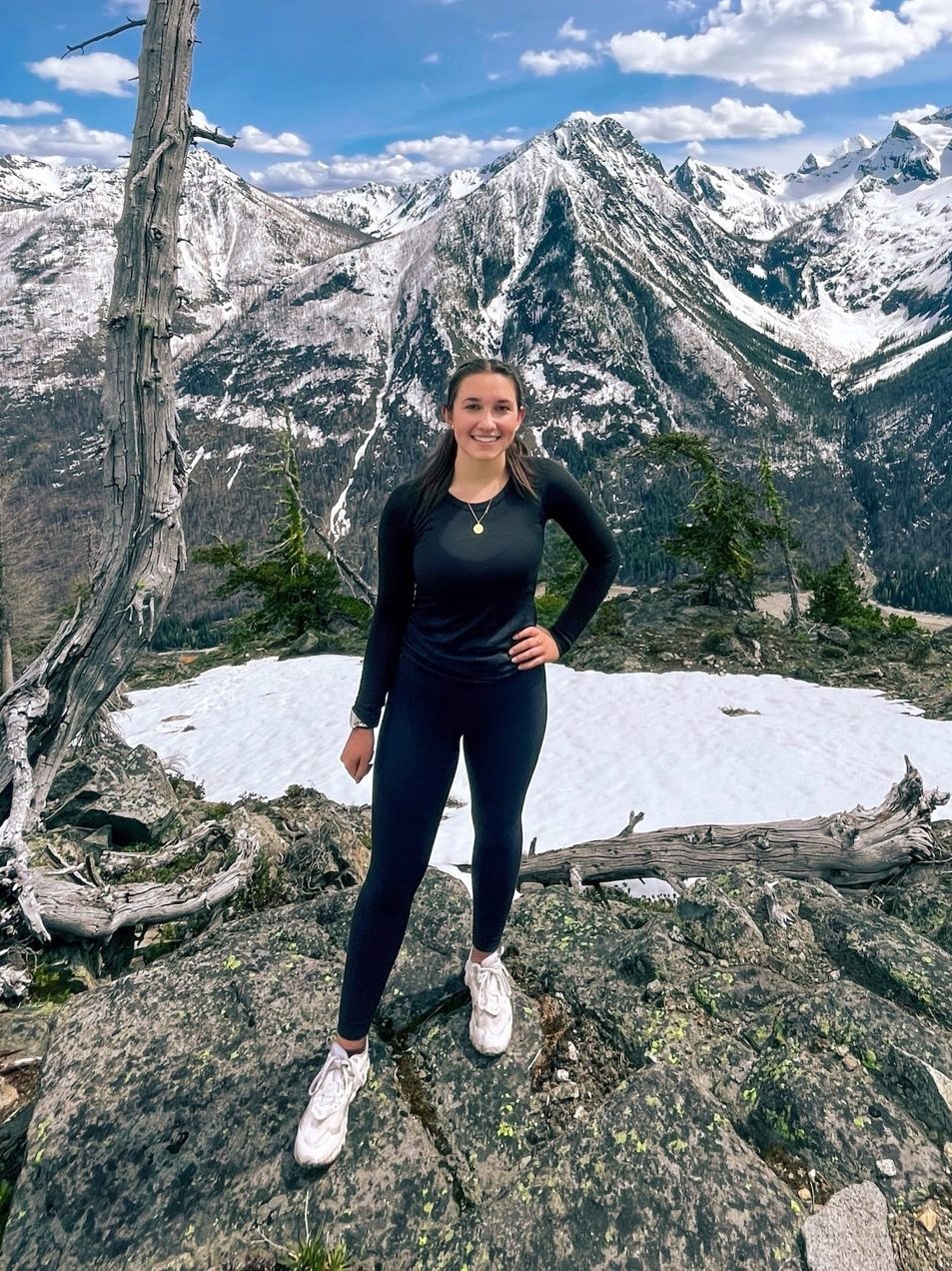
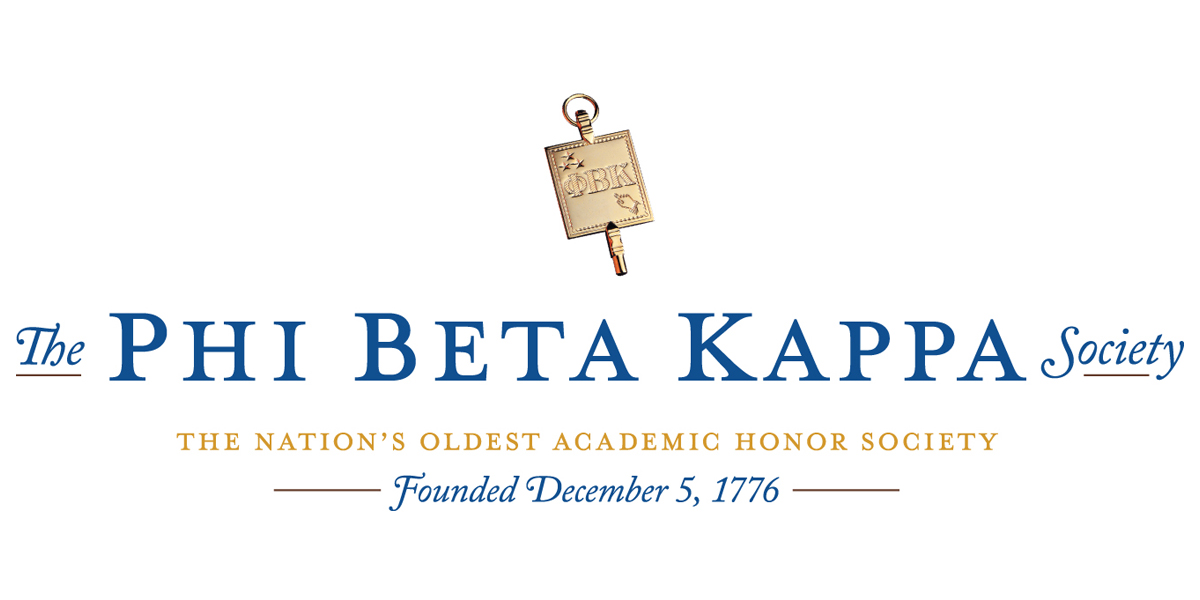

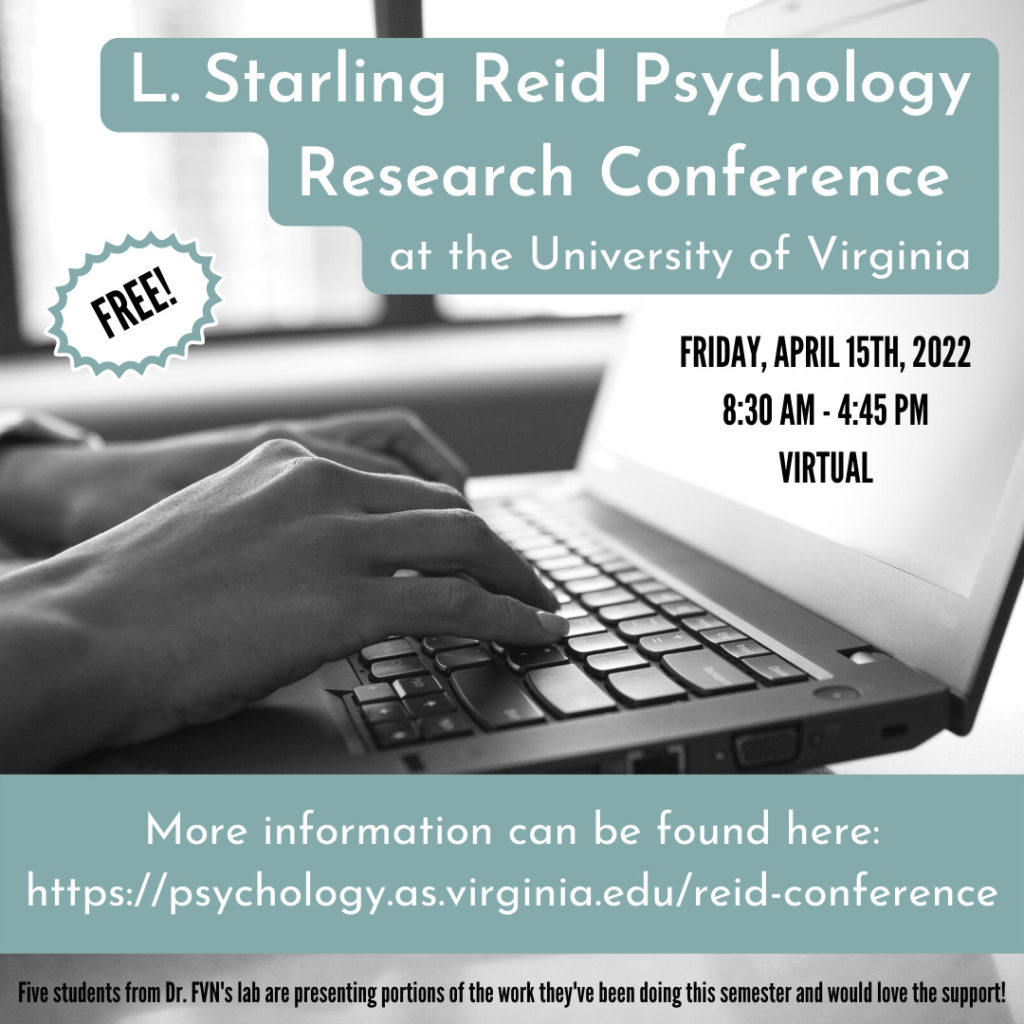

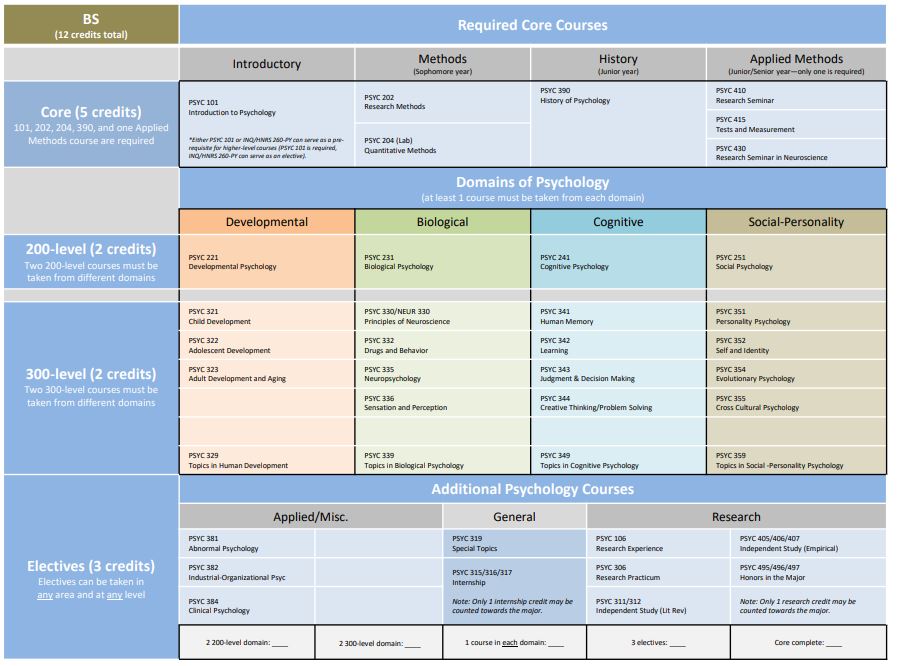
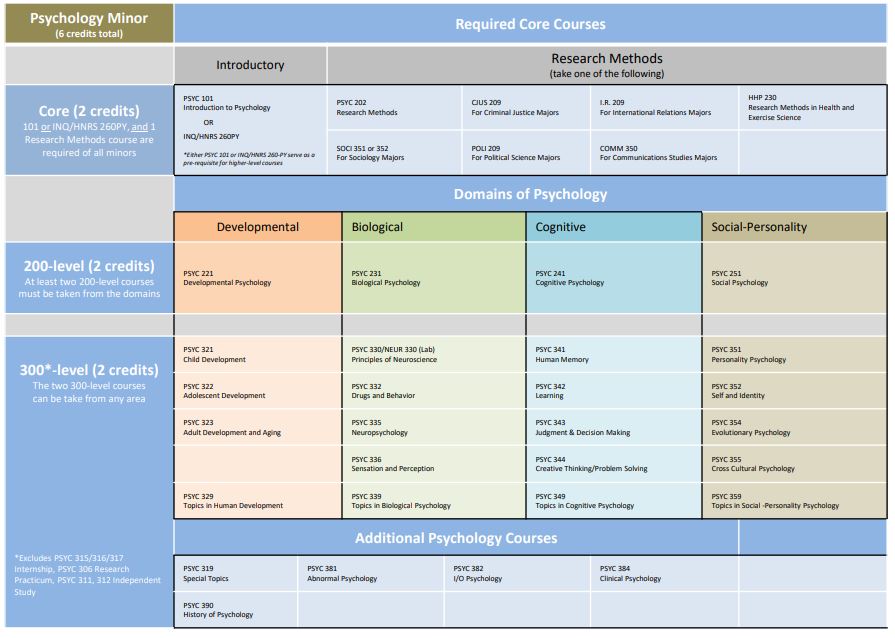
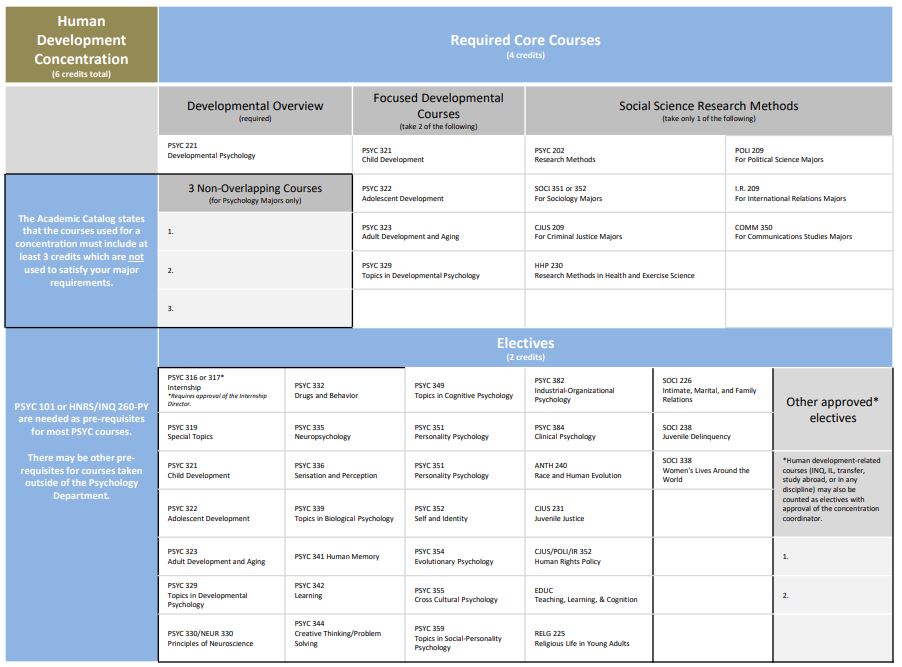
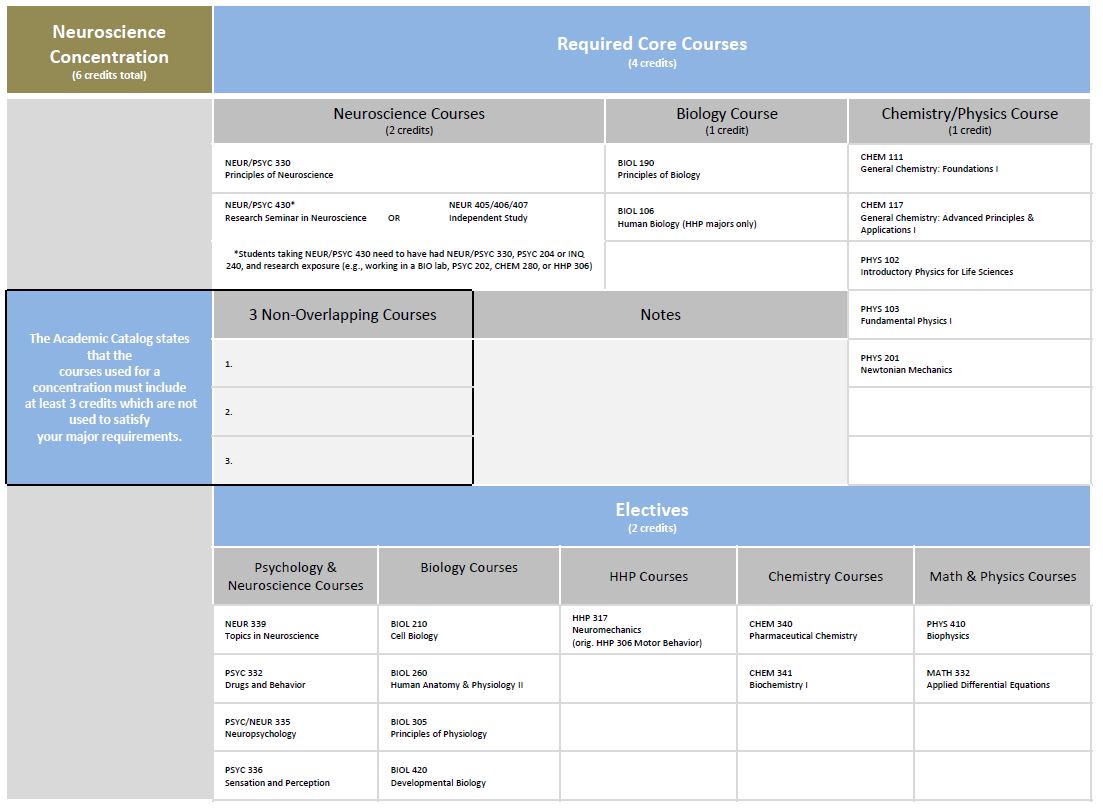
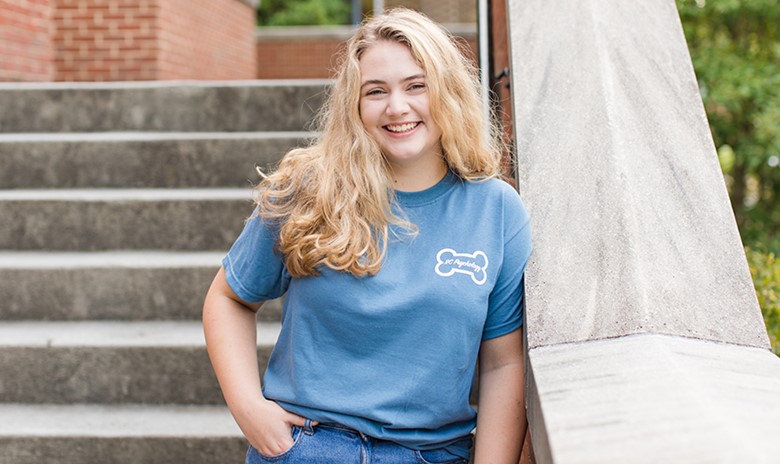
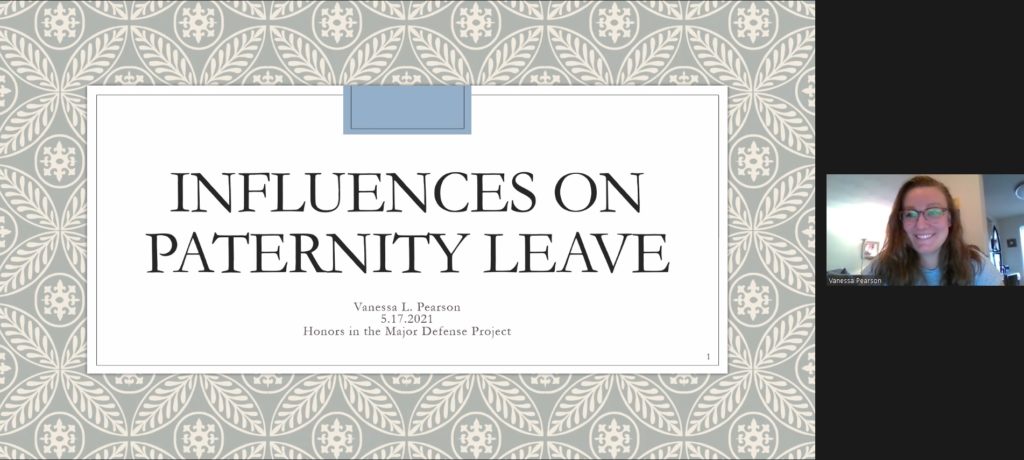
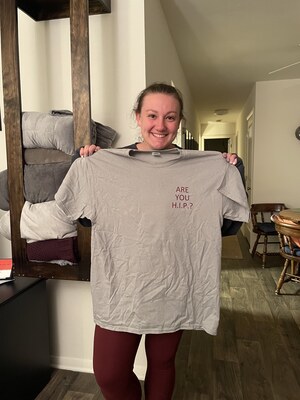
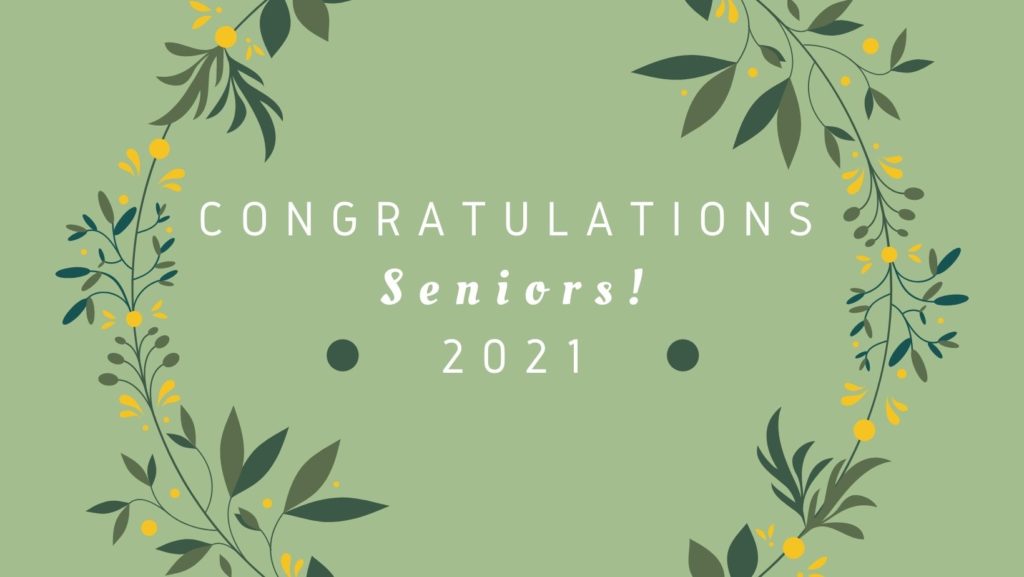
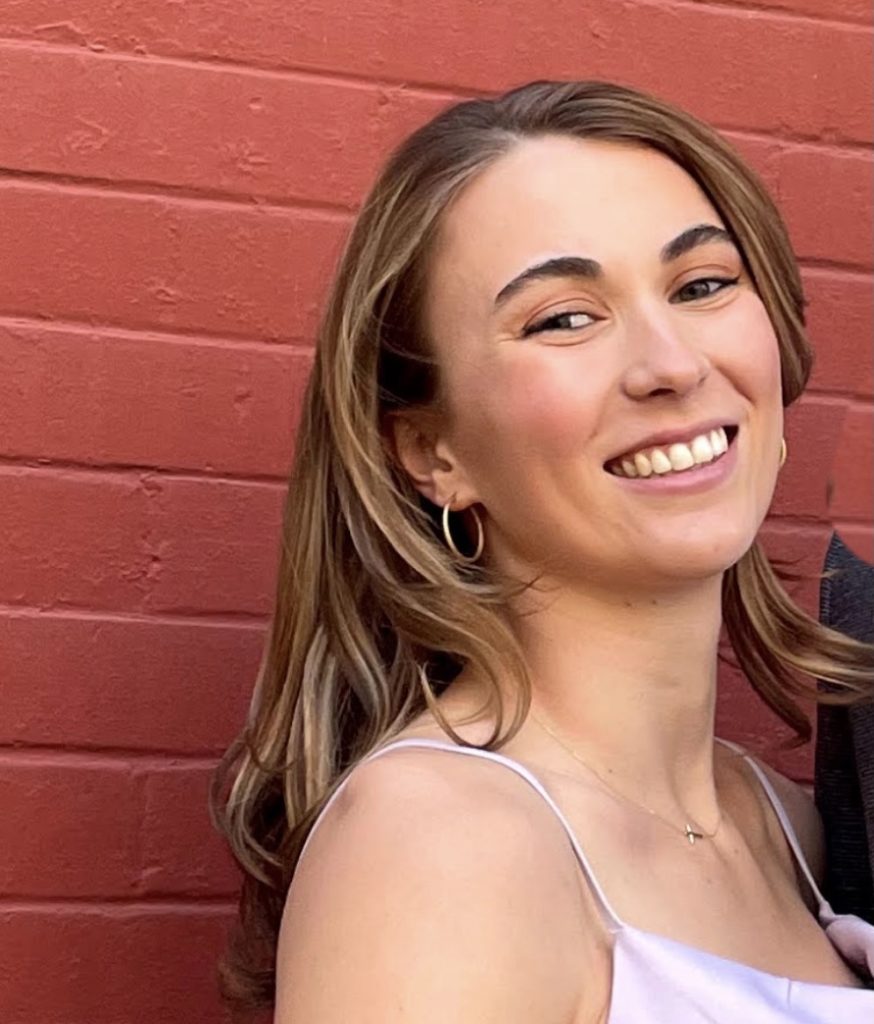
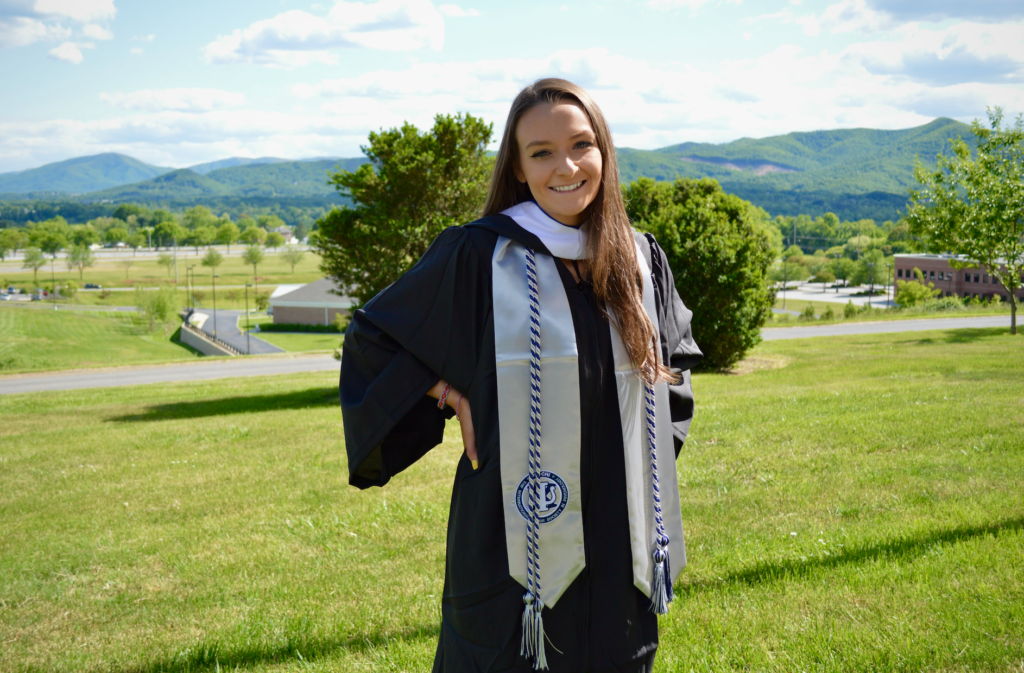
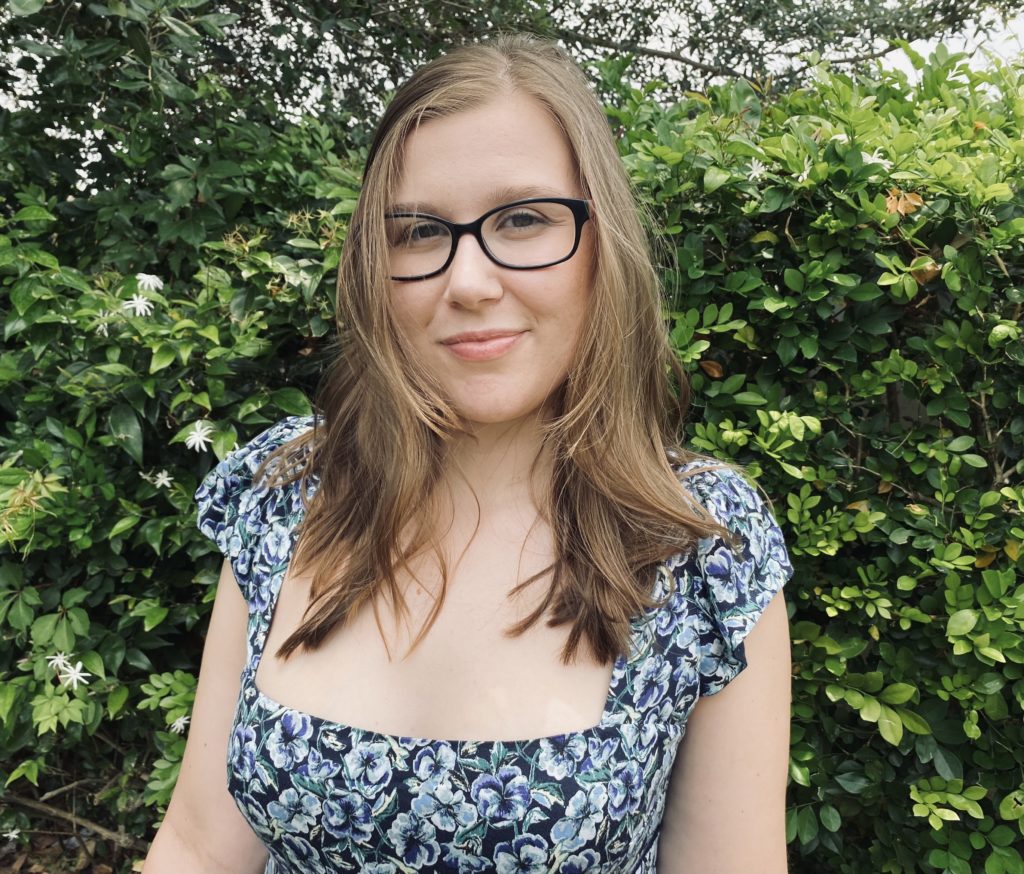
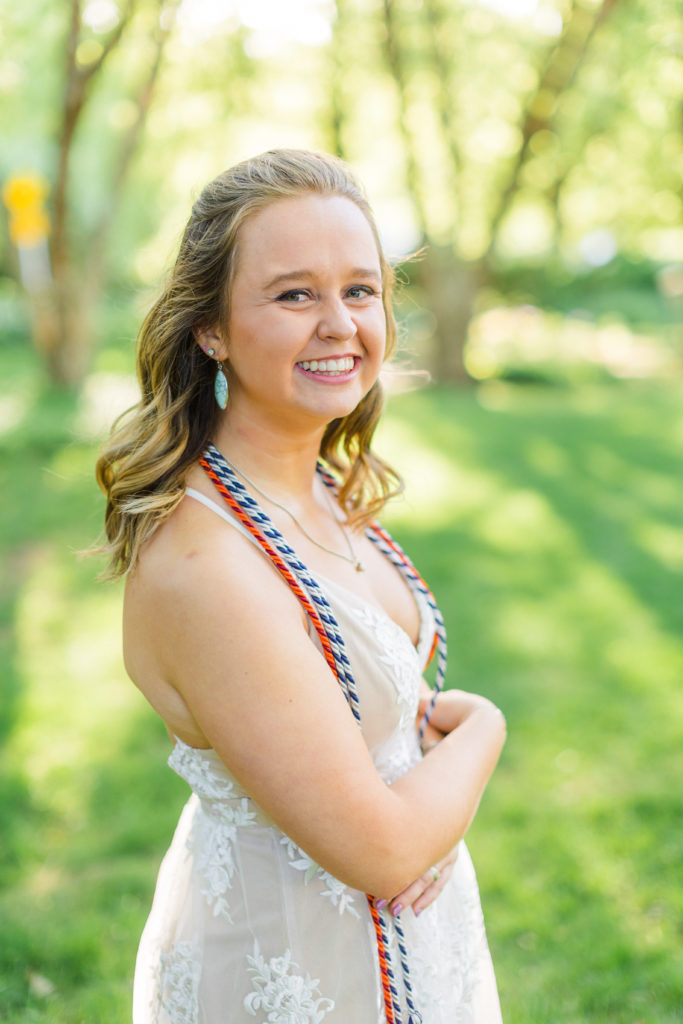
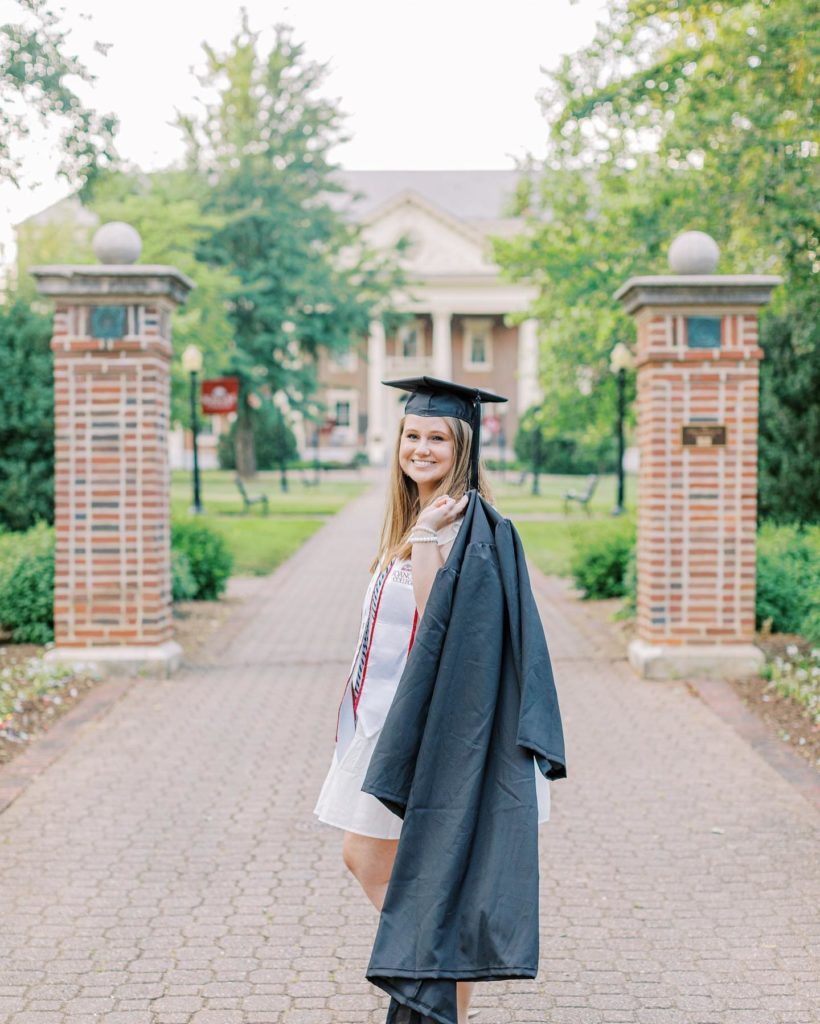
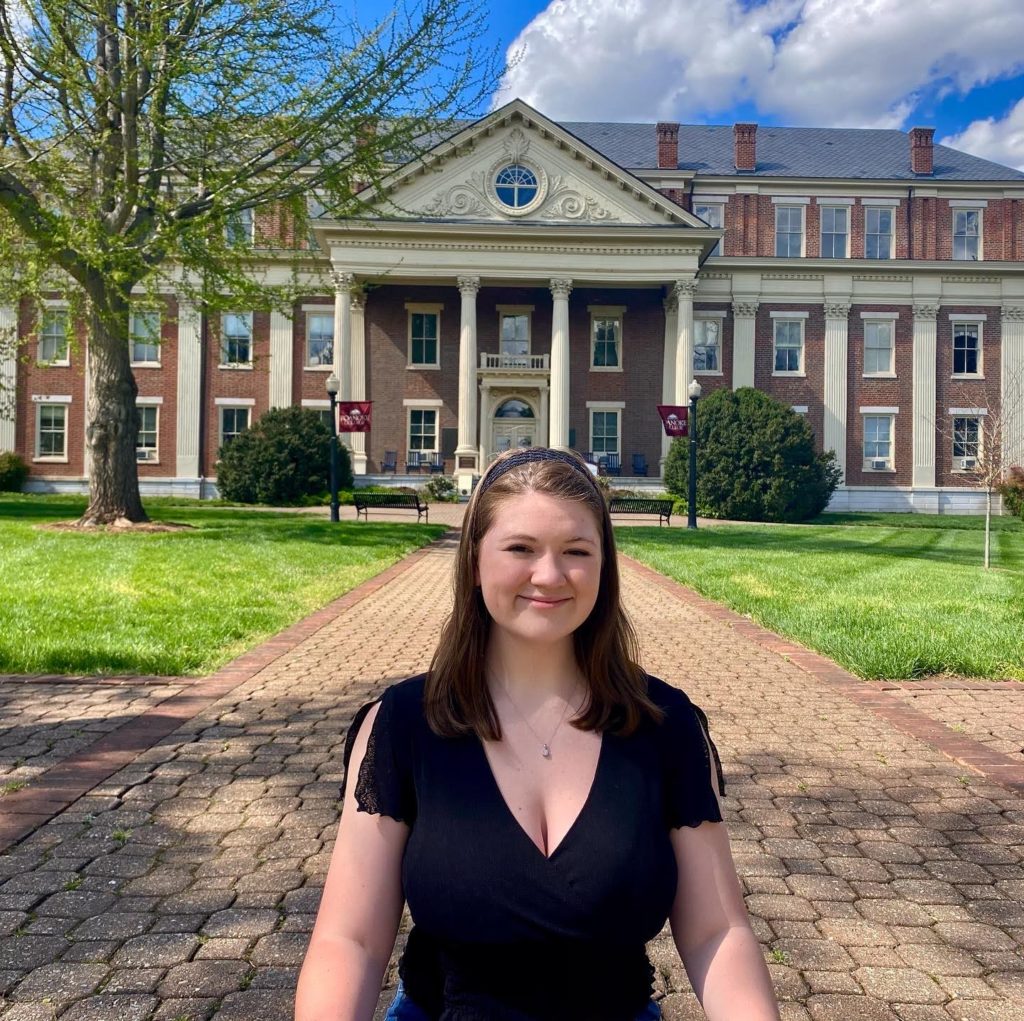
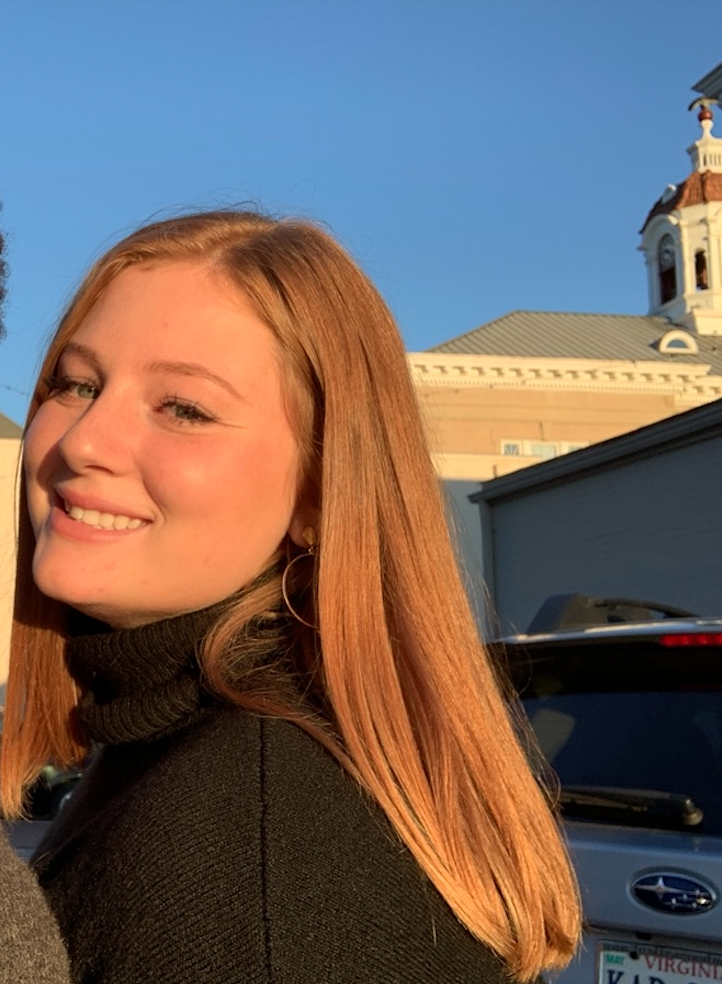
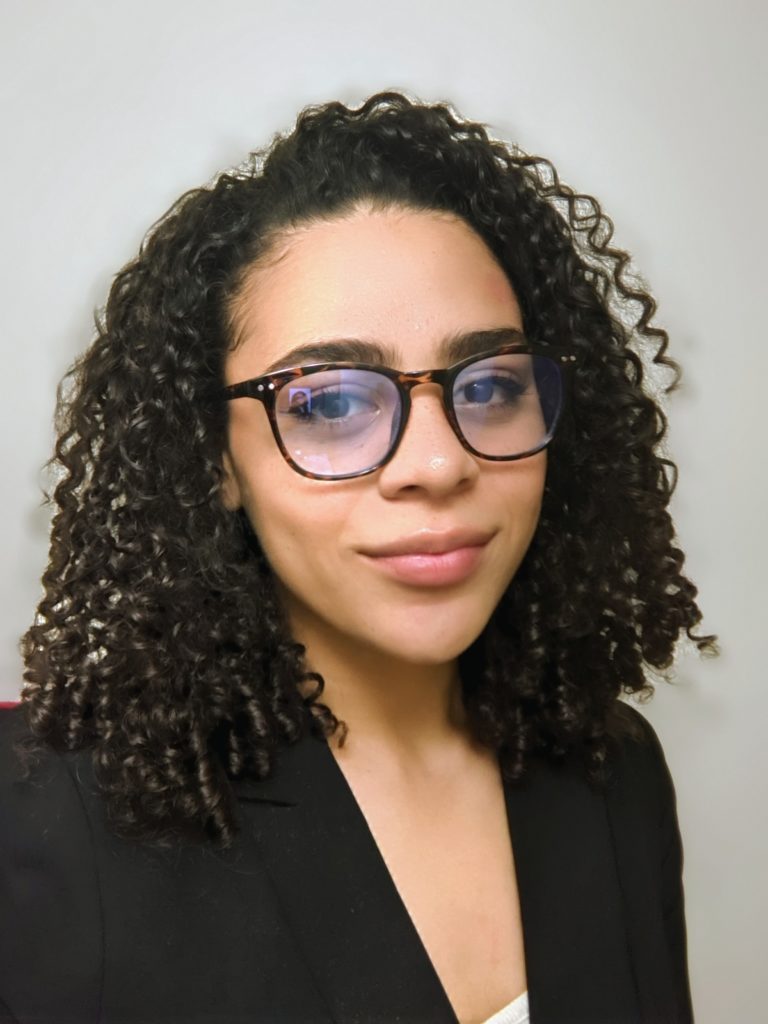
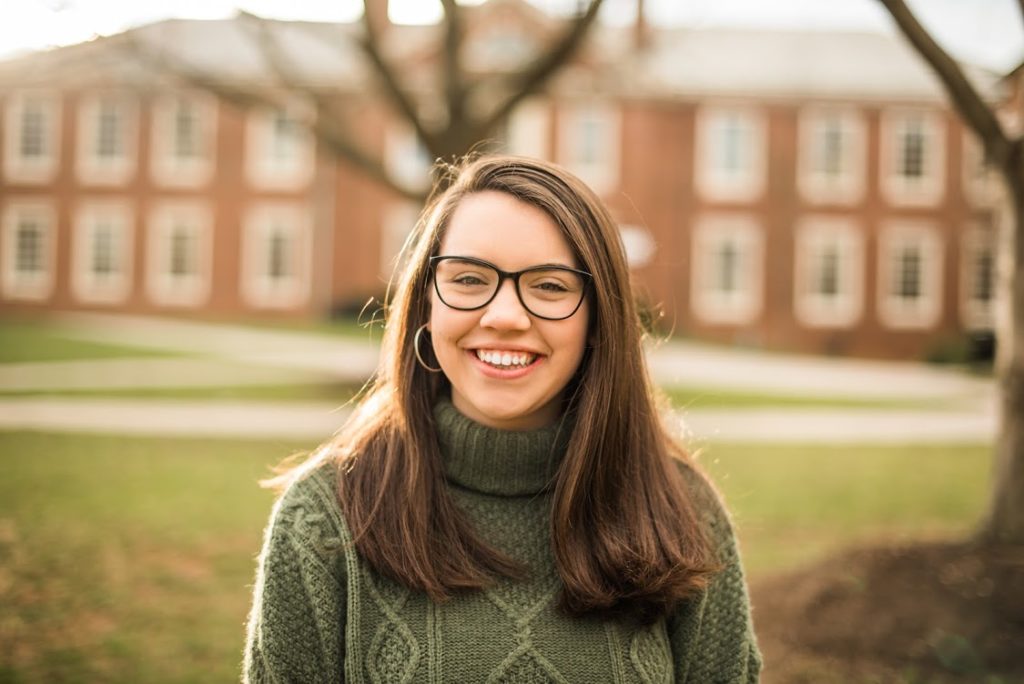
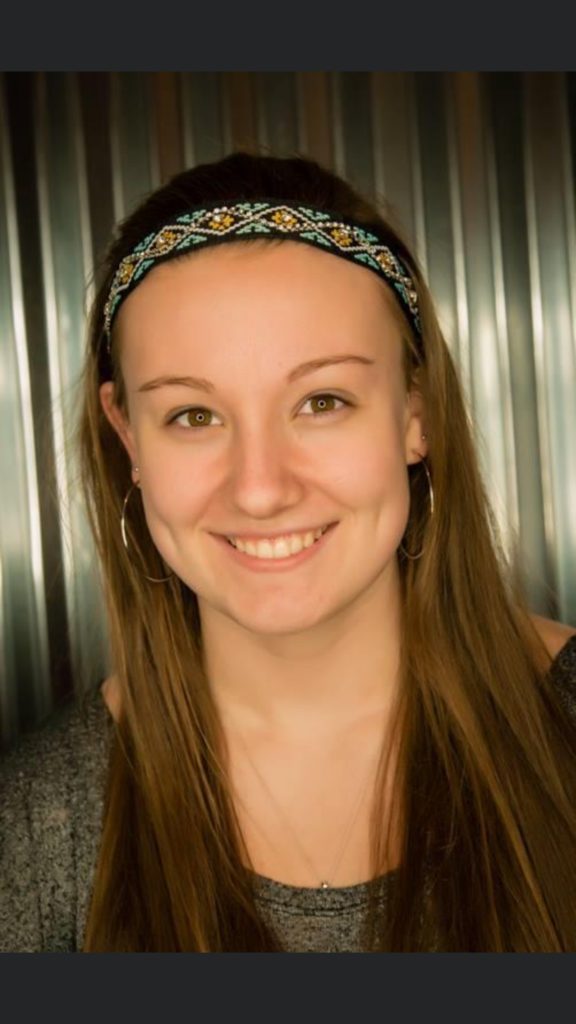
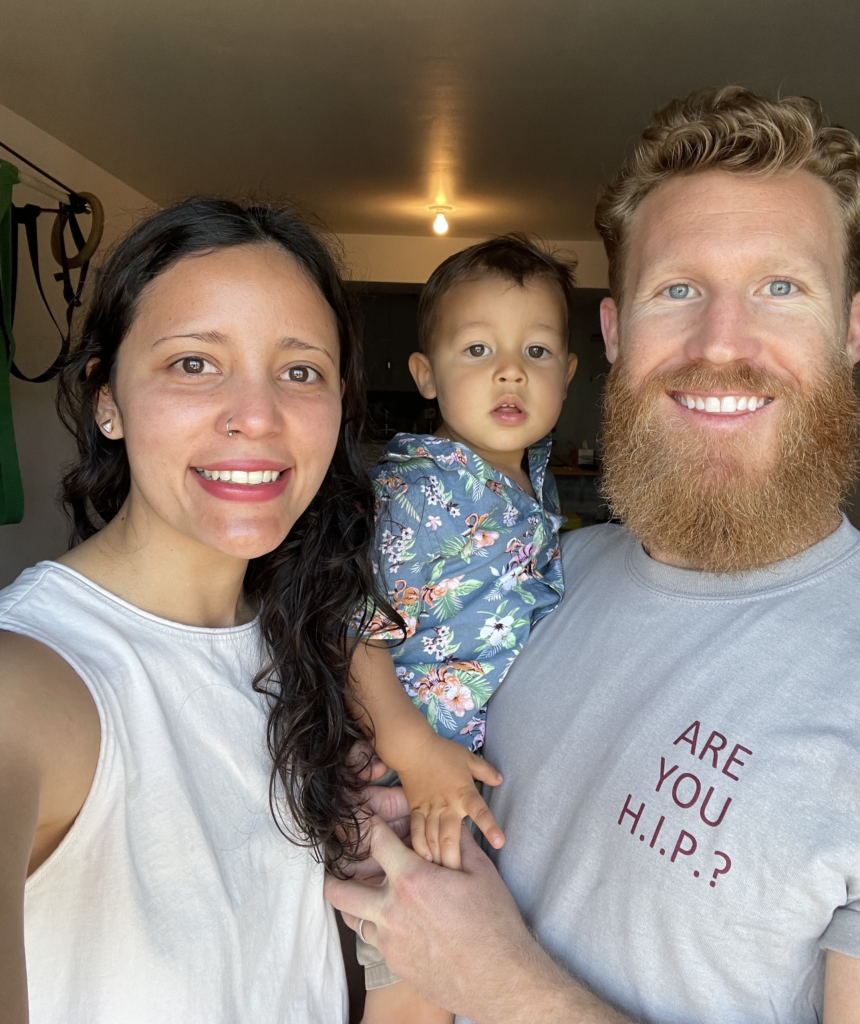
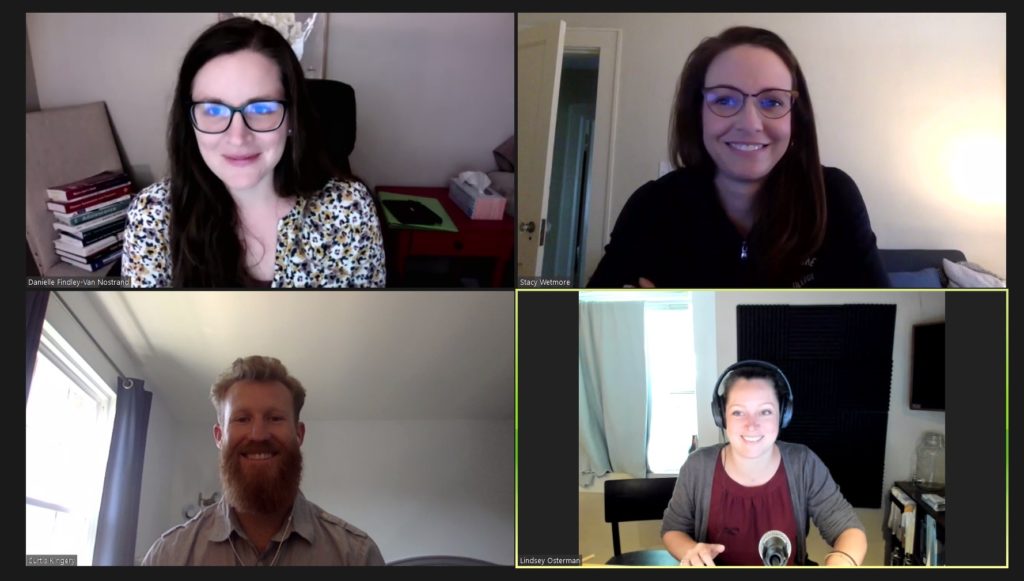
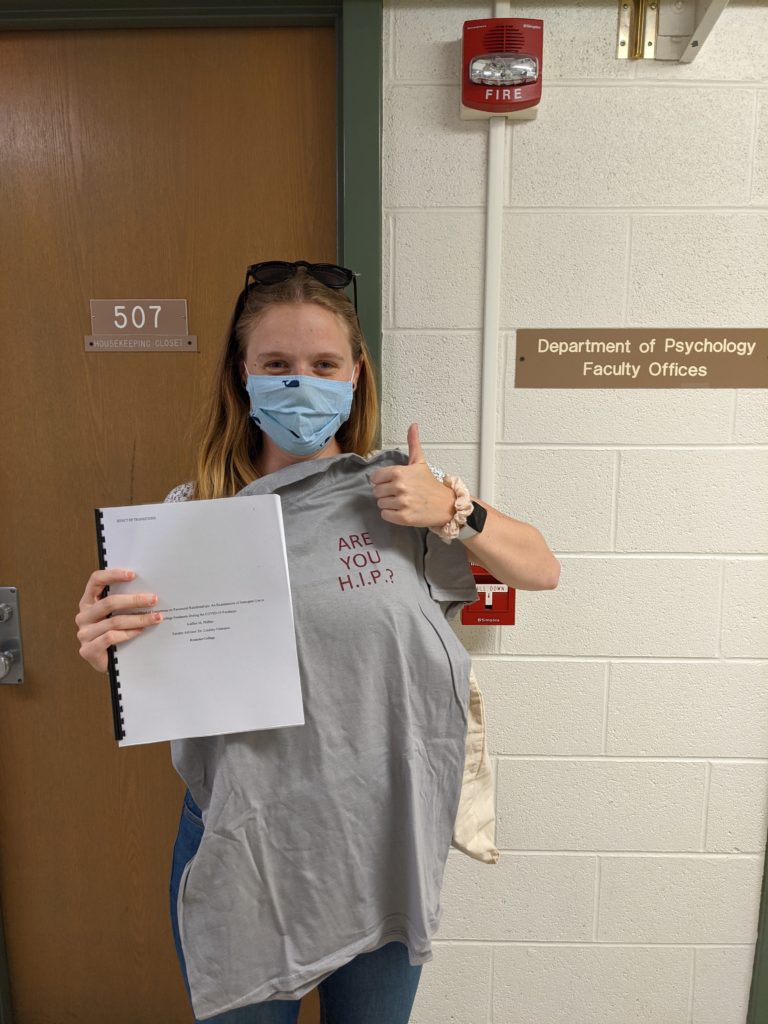
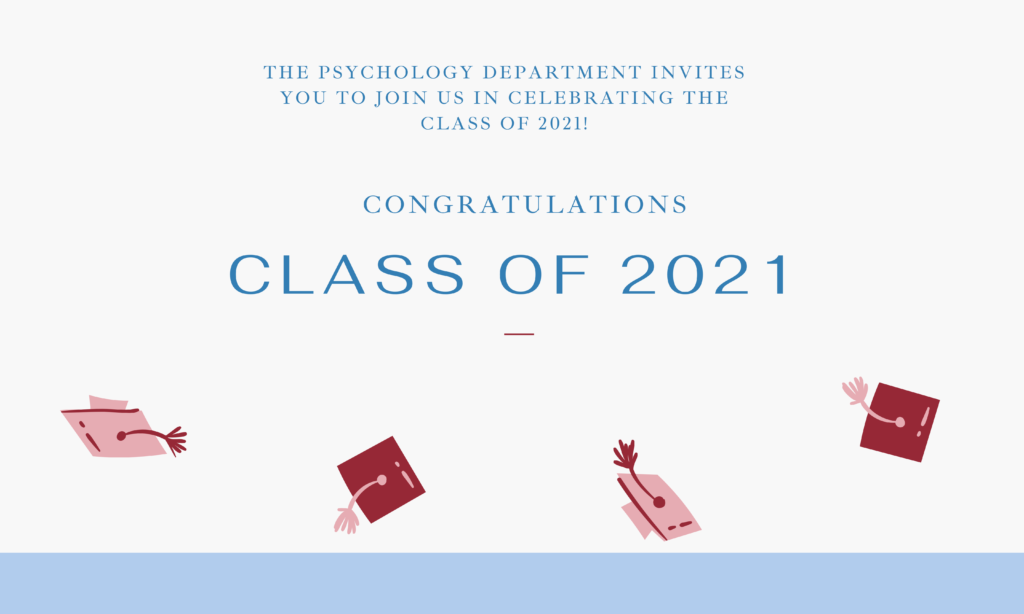
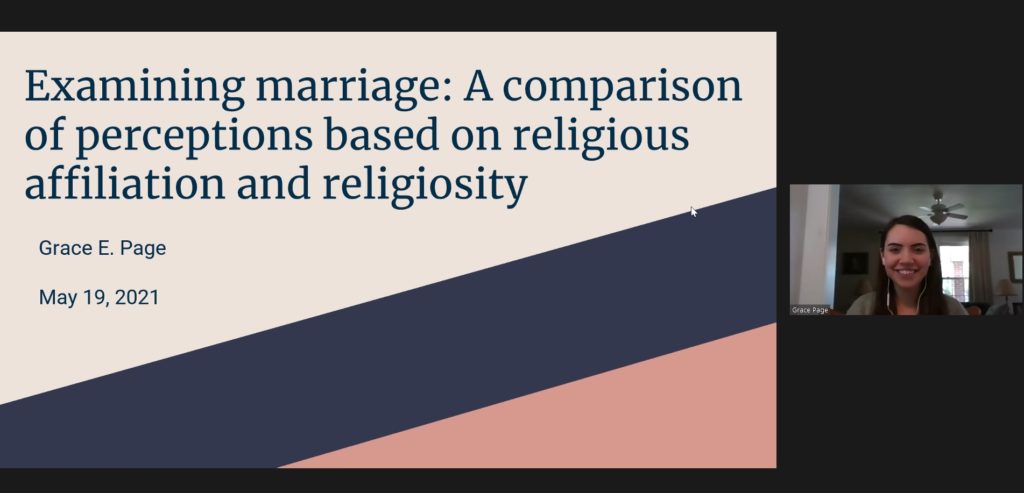
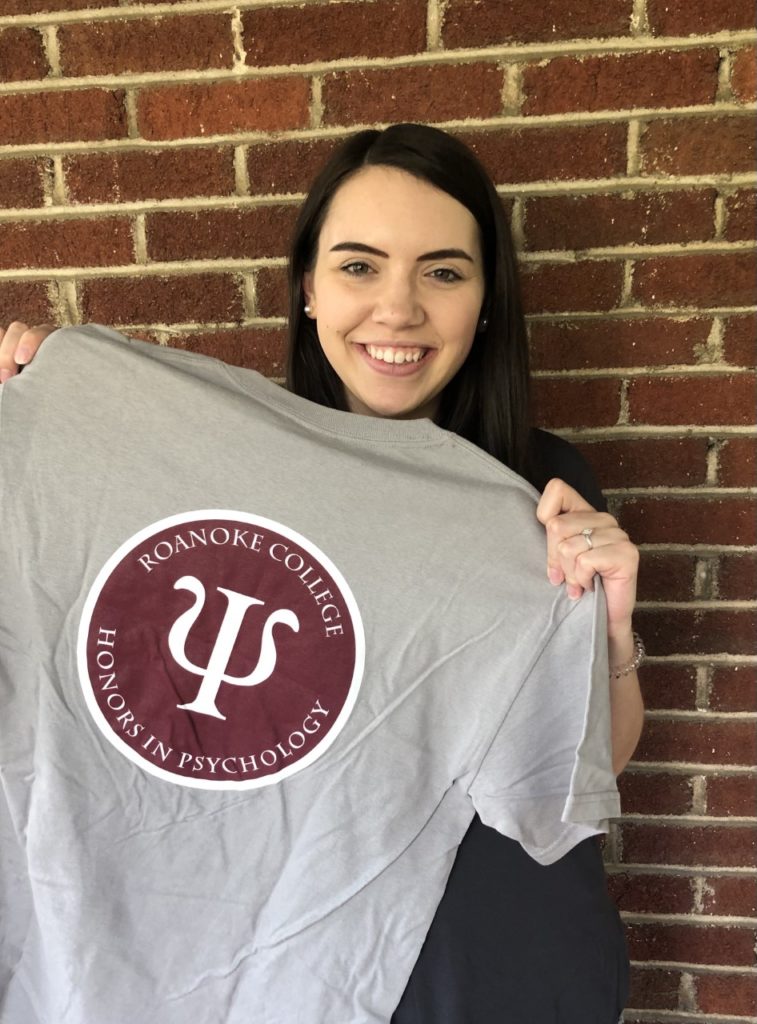
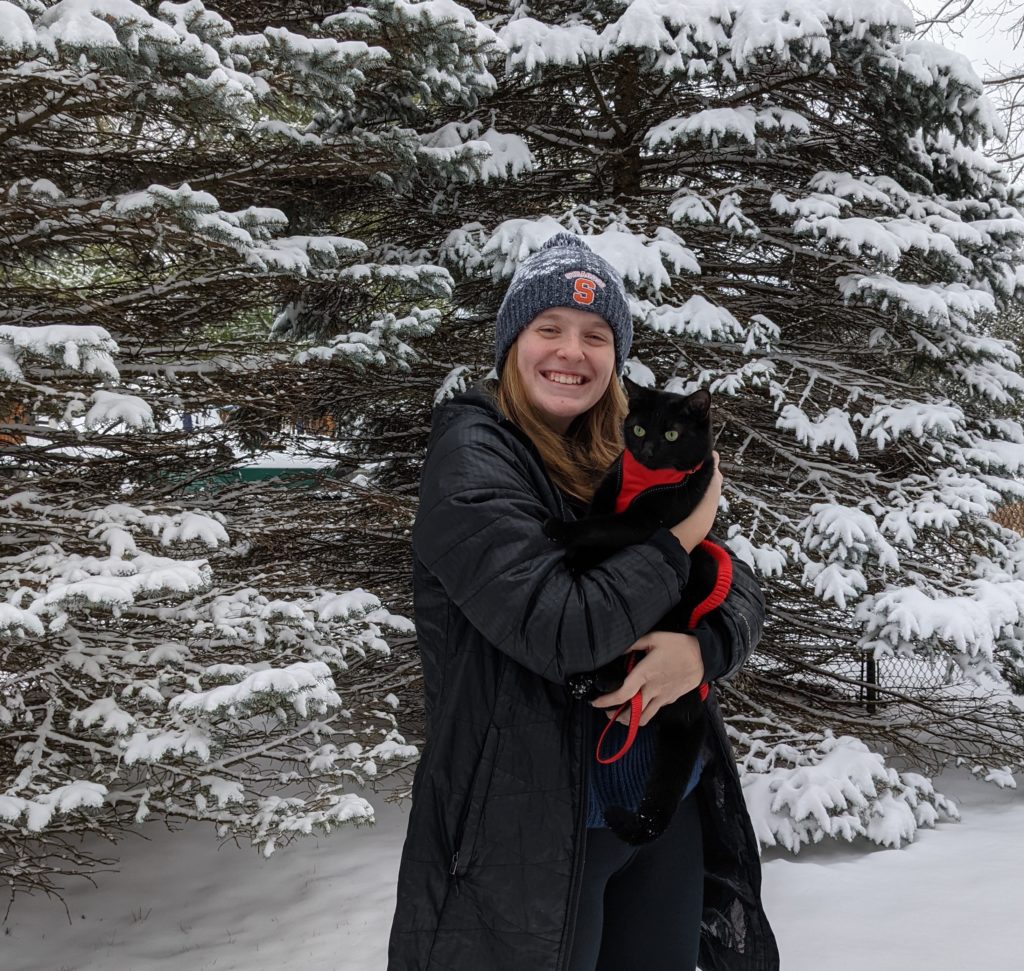
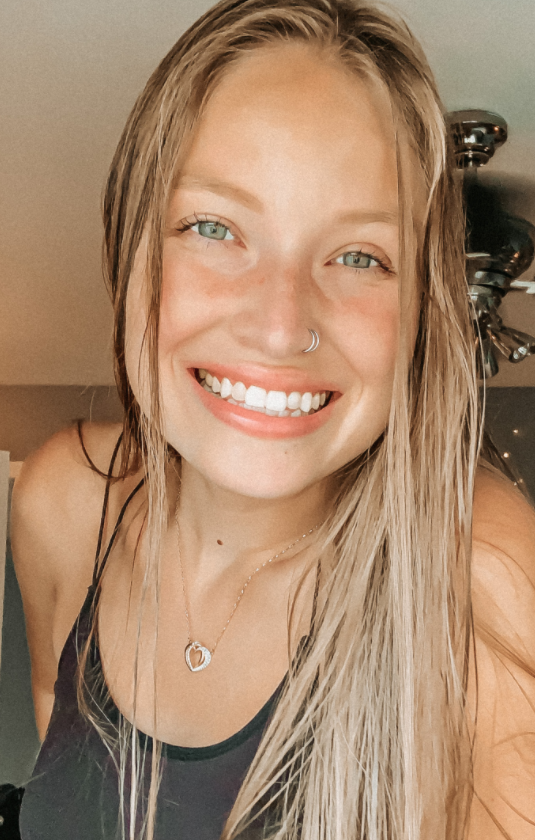
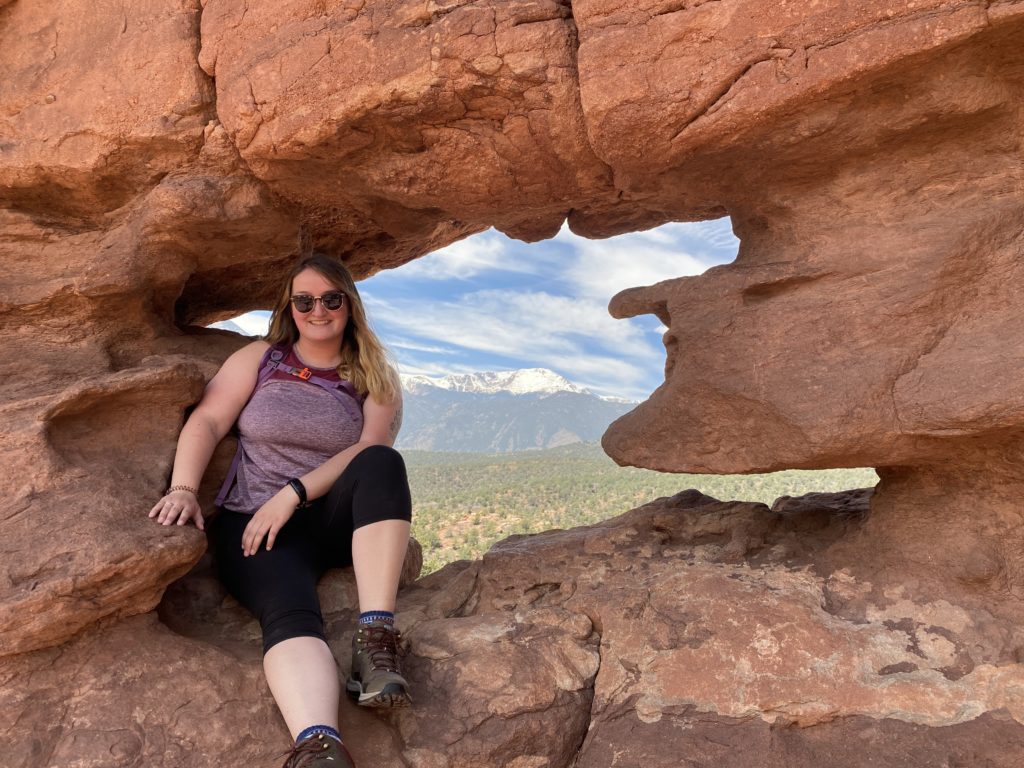
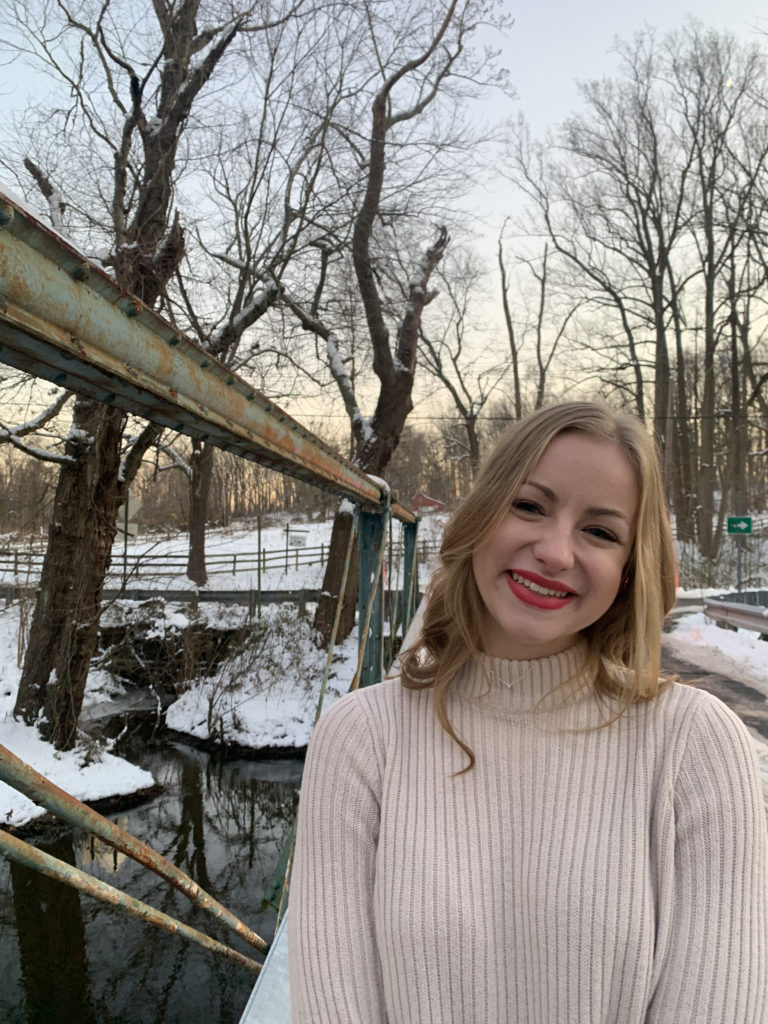

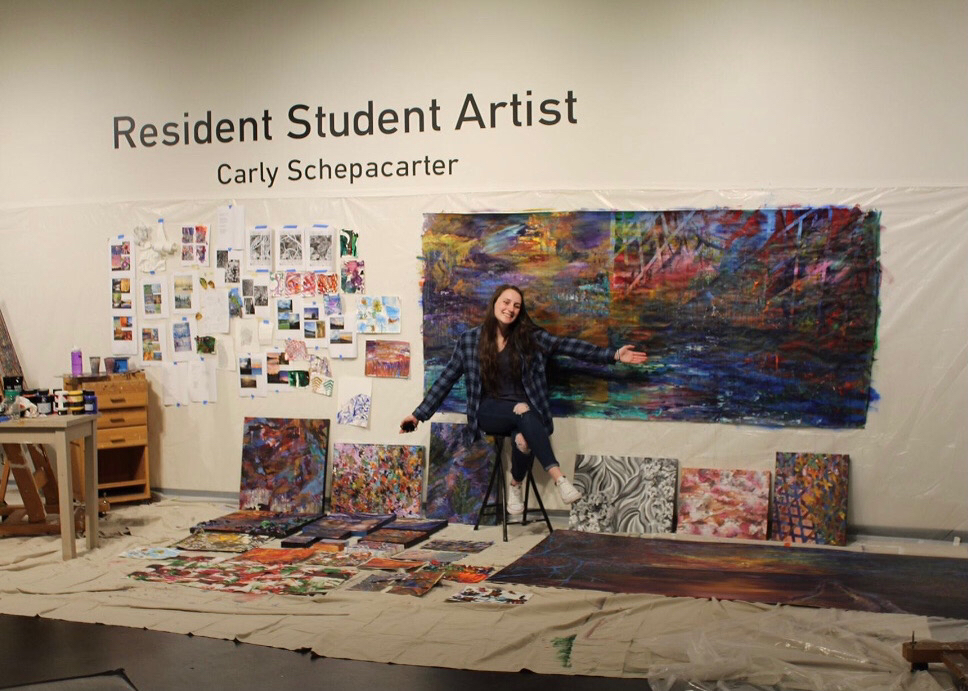
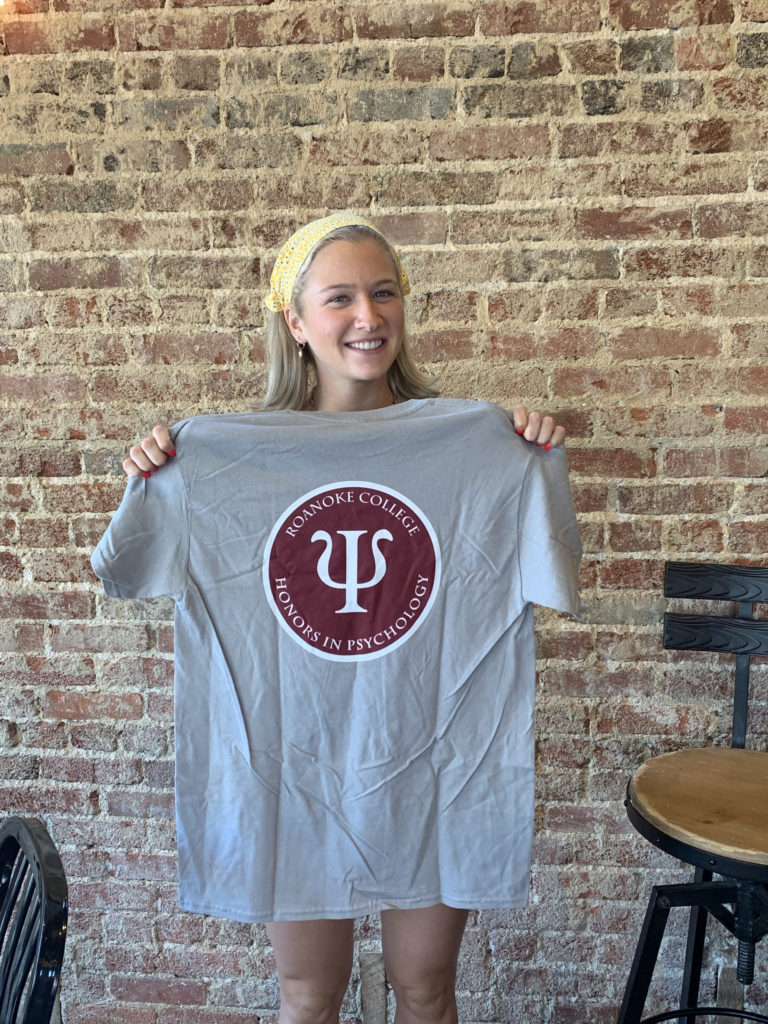
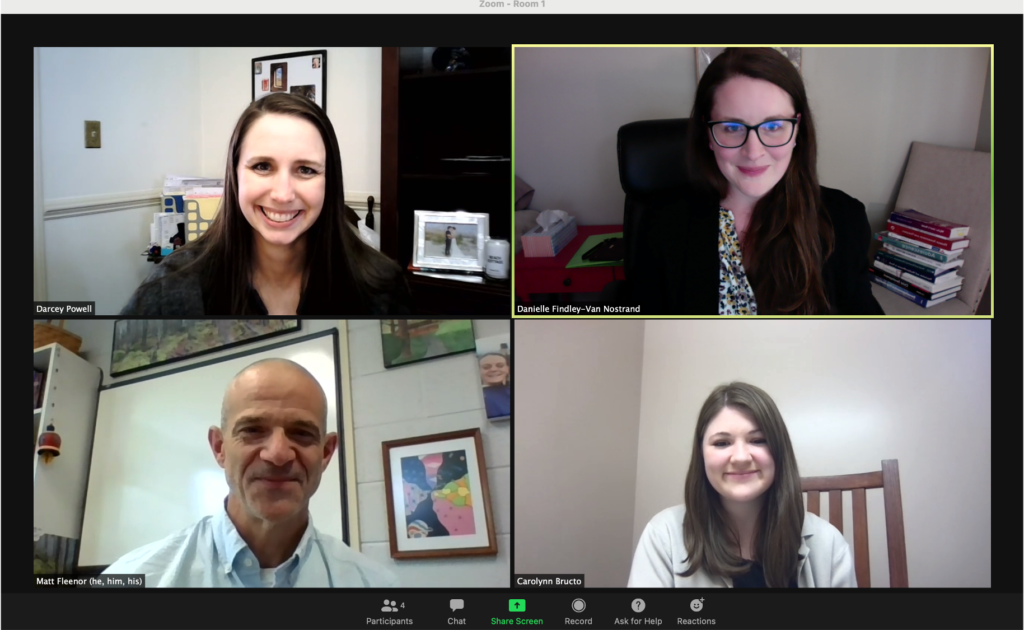
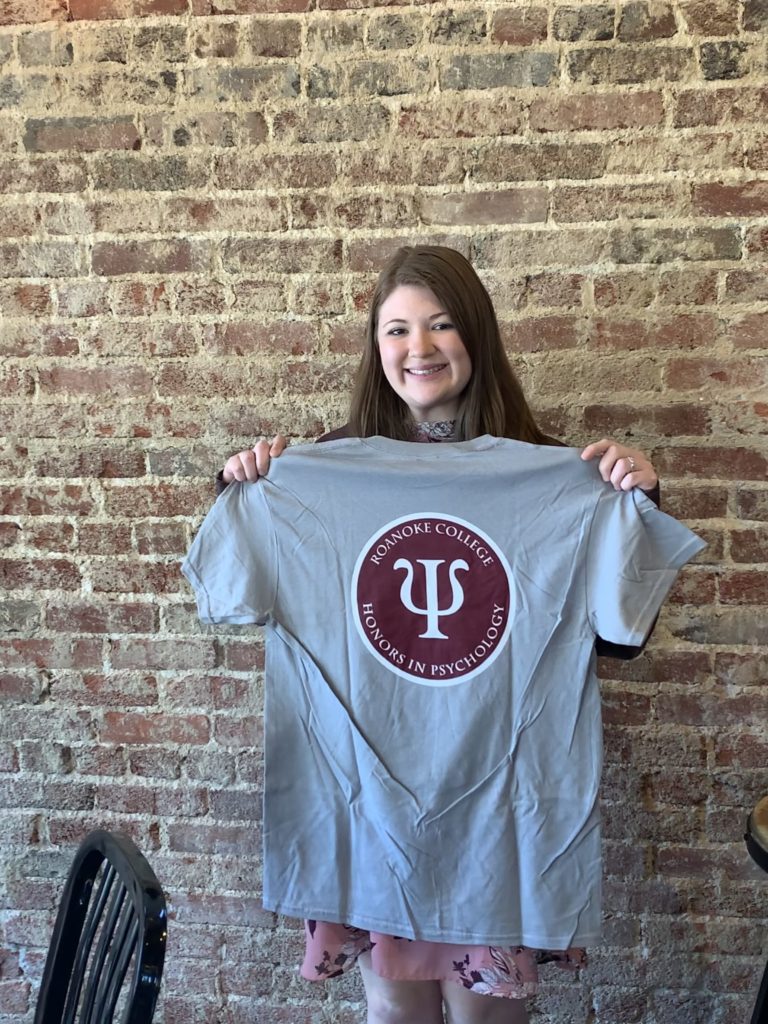
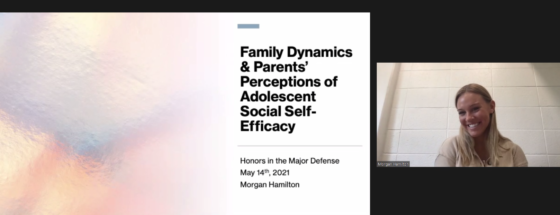
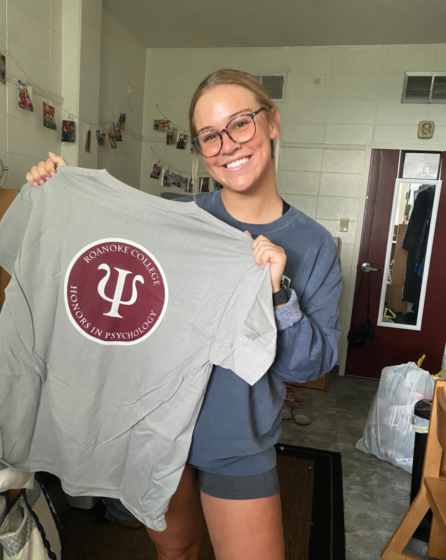
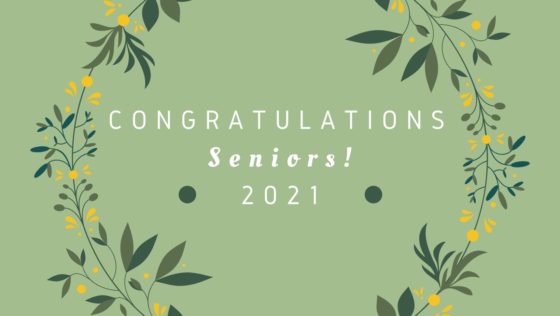 Over the next few days, we will be highlighting the Psychology Department graduating seniors! This post will highlight 4 seniors: Kira Hunt, Abbie Joseph, David Casson, and Carly Schepacarter!
Over the next few days, we will be highlighting the Psychology Department graduating seniors! This post will highlight 4 seniors: Kira Hunt, Abbie Joseph, David Casson, and Carly Schepacarter!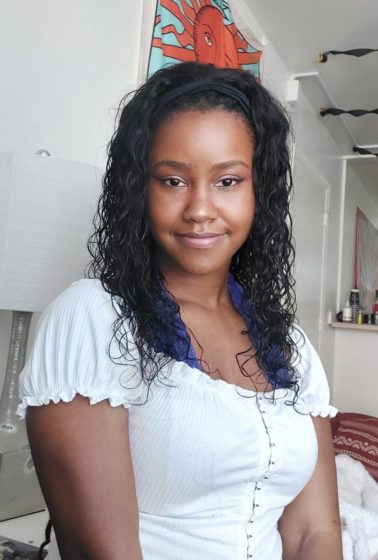 Congratulations to Kira! After graduation, she plans to take a gap year working as a teacher’s assistant while home. Then, she plans on applying to graduate programs in preparation to become a Certified Child Life Specialist. Kira’s favorite memory of the Psychology department was attending the psychology reception for alumni weekend. “It was interesting to hear stories from alumni who had the teachers that I had. It’s also really fun to watch the psychology faculty interact with each other.”
Congratulations to Kira! After graduation, she plans to take a gap year working as a teacher’s assistant while home. Then, she plans on applying to graduate programs in preparation to become a Certified Child Life Specialist. Kira’s favorite memory of the Psychology department was attending the psychology reception for alumni weekend. “It was interesting to hear stories from alumni who had the teachers that I had. It’s also really fun to watch the psychology faculty interact with each other.”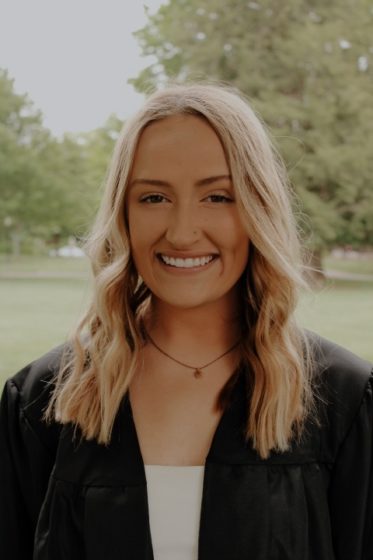 Congrats Abbie! After graduation, she will be attending the University of North Carolina at Charlotte for her master’s in Clinical Mental Health Counseling. Abbie’s favorite psych-related memory has been the opportunities to gain research experience and being able to carry out her own research study. She is “very thankful for Dr. Powell and all her patience and guidance!”
Congrats Abbie! After graduation, she will be attending the University of North Carolina at Charlotte for her master’s in Clinical Mental Health Counseling. Abbie’s favorite psych-related memory has been the opportunities to gain research experience and being able to carry out her own research study. She is “very thankful for Dr. Powell and all her patience and guidance!”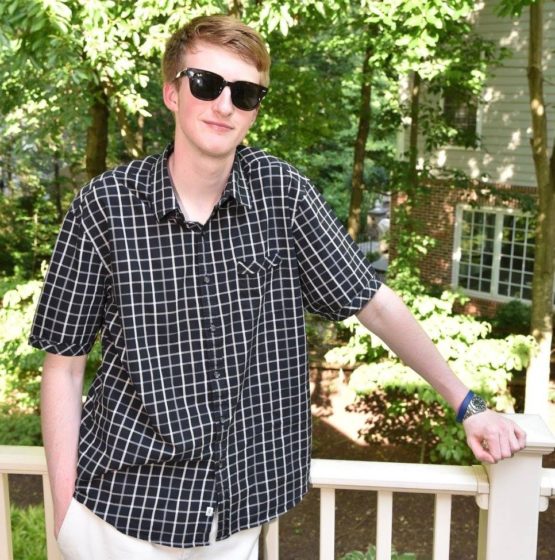 Congratulations to David! His post graduate plans are to move to Easton, MD for the summer, since his folks have purchased a new house there recently. He will be working a job there over the summer and hopefully gaining resume experience while he plans what to do for a graduate school transition in the near future. David’s favorite memory of the Psychology department was when he took a Drugs and Behavior class with Dr. Allen. “This class was extremely interesting, thought provoking, engaging, and fun all along the way. Learning how varying forms of substances affect different parts of the brain and behavior in unique ways was something I did not think I would learn at Roanoke.”
Congratulations to David! His post graduate plans are to move to Easton, MD for the summer, since his folks have purchased a new house there recently. He will be working a job there over the summer and hopefully gaining resume experience while he plans what to do for a graduate school transition in the near future. David’s favorite memory of the Psychology department was when he took a Drugs and Behavior class with Dr. Allen. “This class was extremely interesting, thought provoking, engaging, and fun all along the way. Learning how varying forms of substances affect different parts of the brain and behavior in unique ways was something I did not think I would learn at Roanoke.”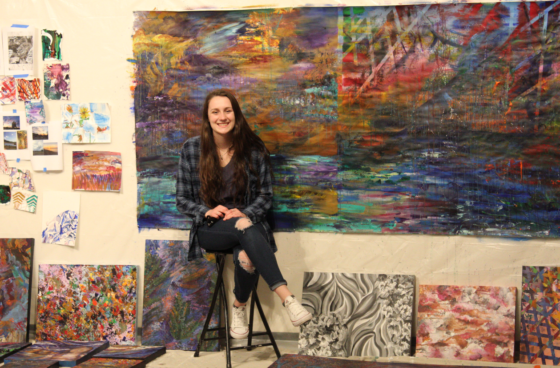 Congrats Carly! In the fall, Carly will be pursuing her Master’s in Art Therapy degree at George Washington University. She hopes to work part-time in a research lab or human services position as she works toward her degree. Carly’s favorite psych-related memory has been working in Dr. Carter’s research lab for the past 3 years! “Our lab meetings have been the highlight of my week each semester and I always appreciated the support I received from my lab partners and Dr. Carter in my time here.”
Congrats Carly! In the fall, Carly will be pursuing her Master’s in Art Therapy degree at George Washington University. She hopes to work part-time in a research lab or human services position as she works toward her degree. Carly’s favorite psych-related memory has been working in Dr. Carter’s research lab for the past 3 years! “Our lab meetings have been the highlight of my week each semester and I always appreciated the support I received from my lab partners and Dr. Carter in my time here.”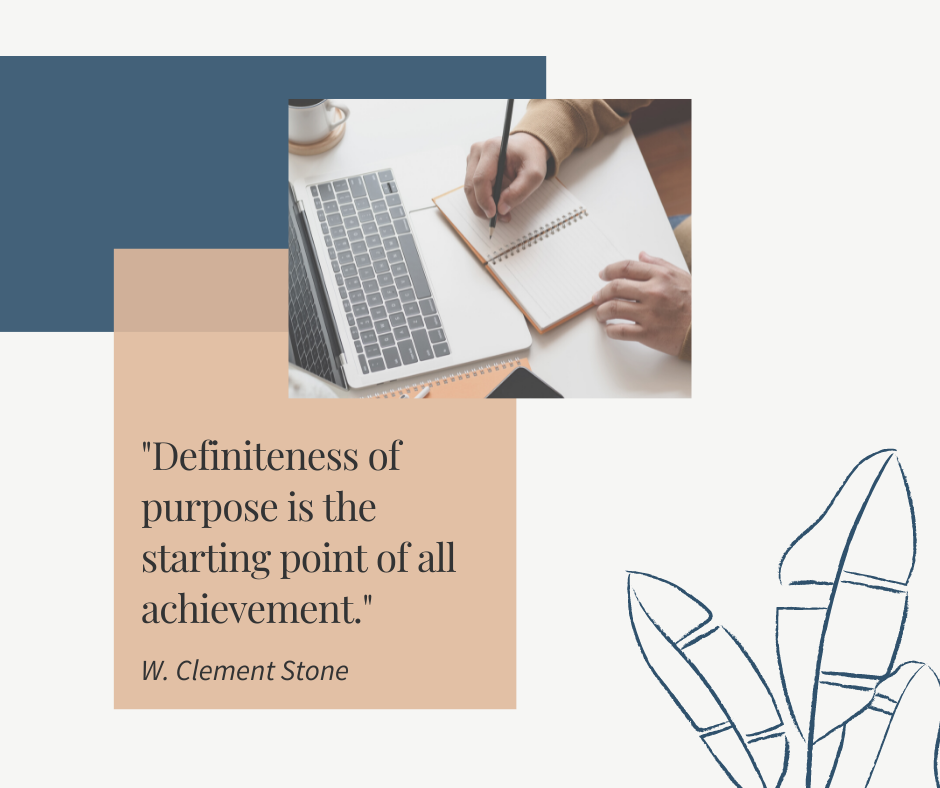

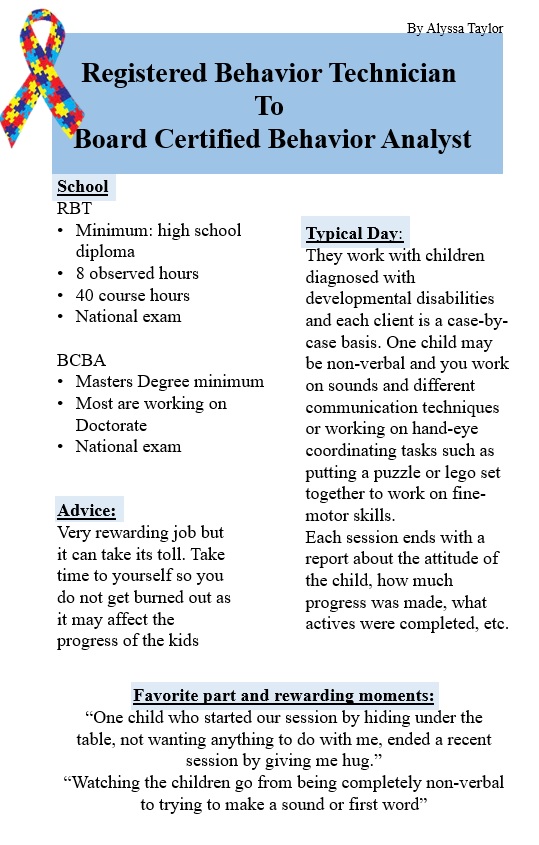
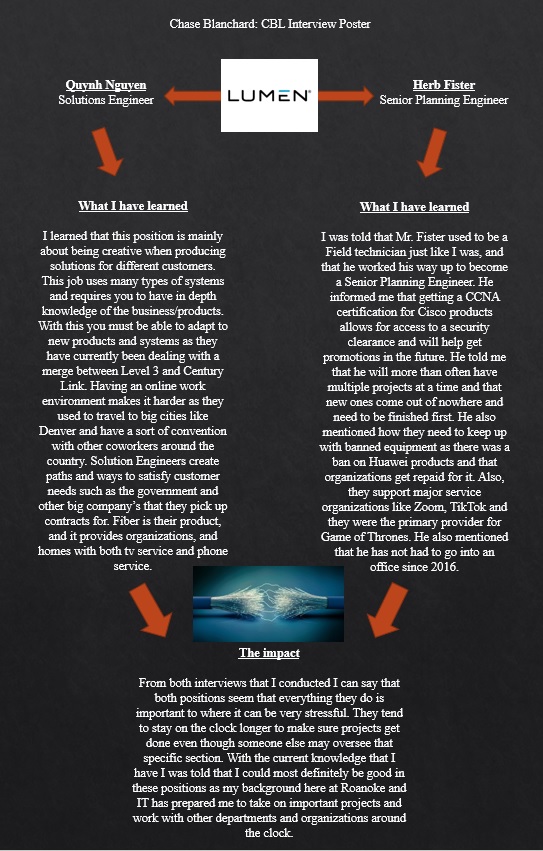
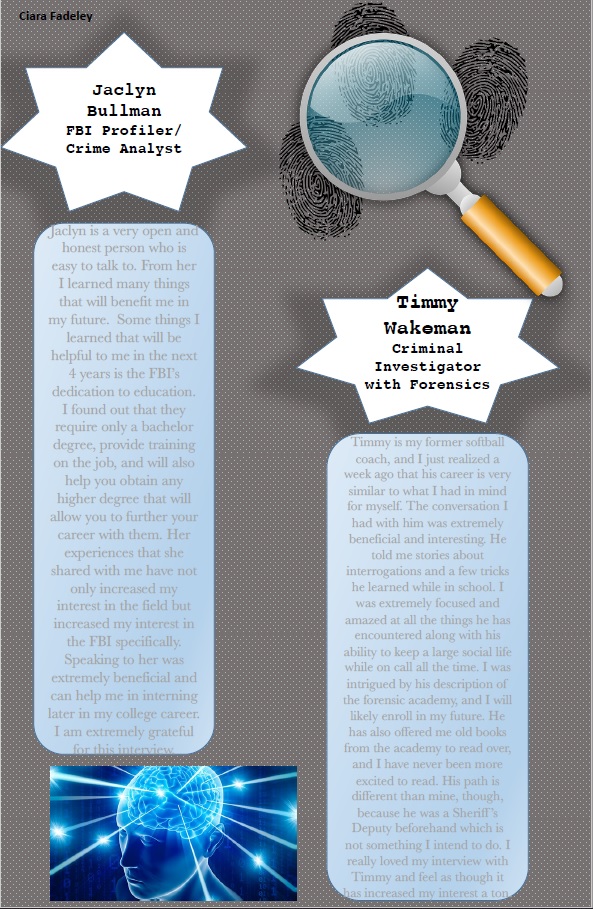
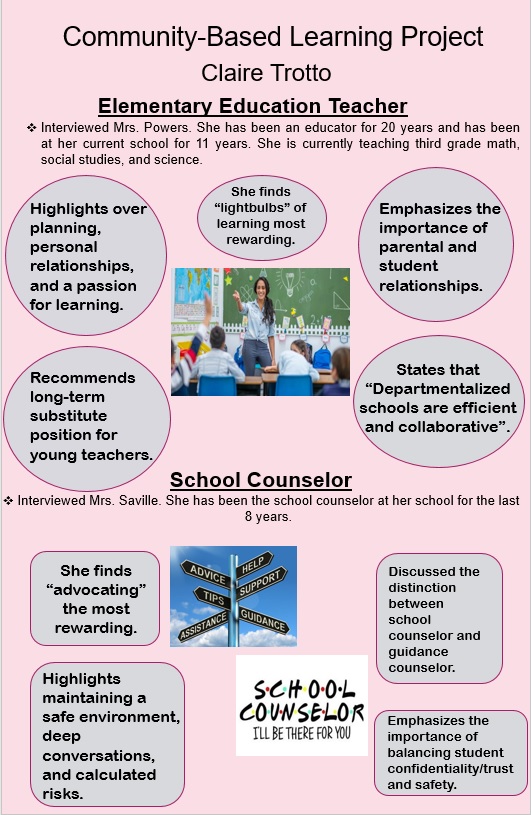
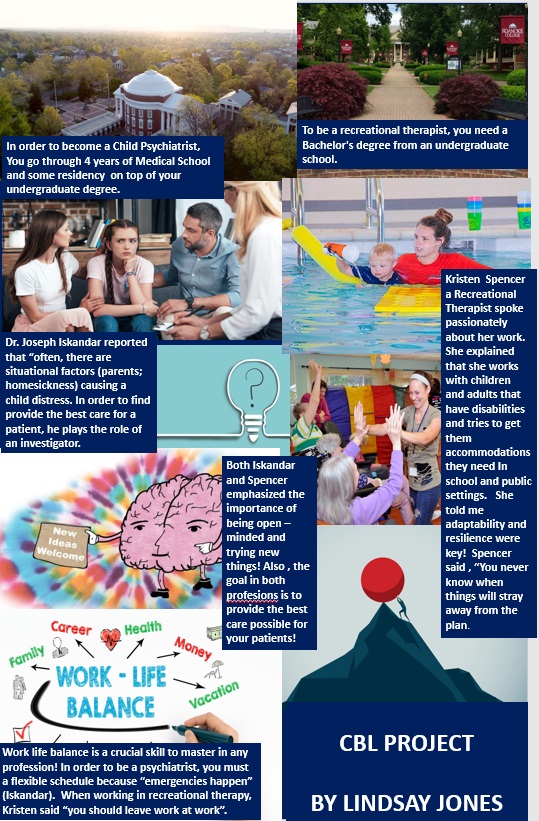
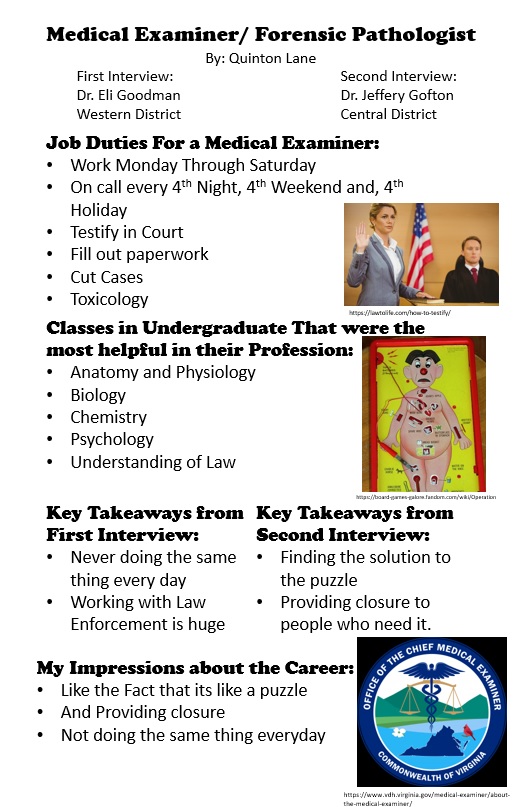
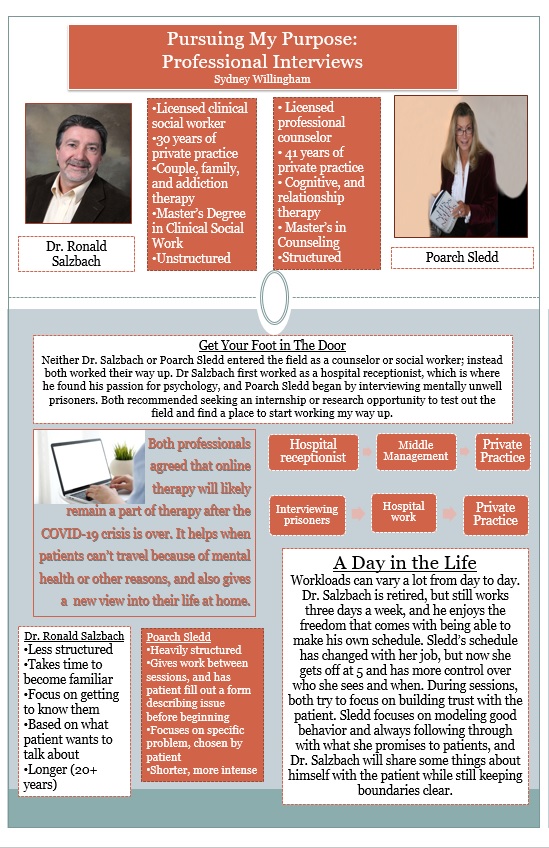
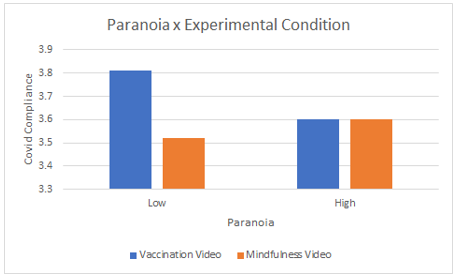

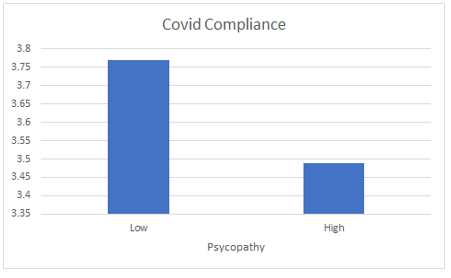





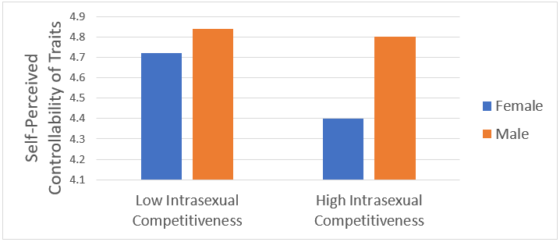
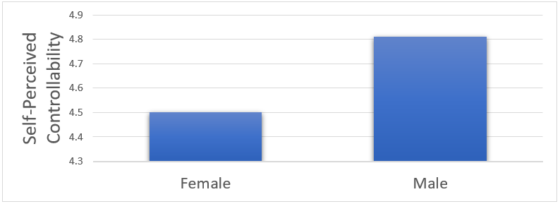
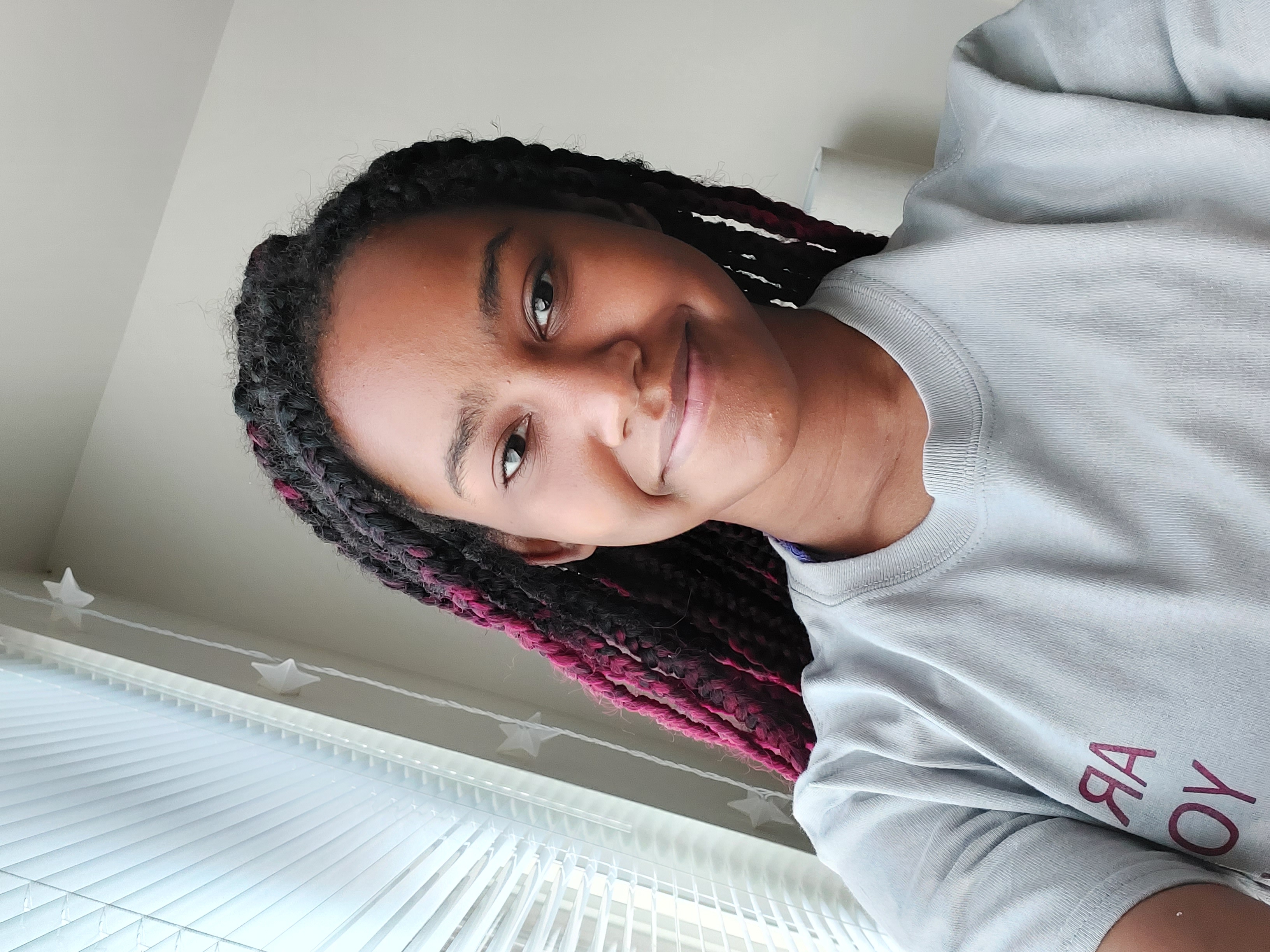
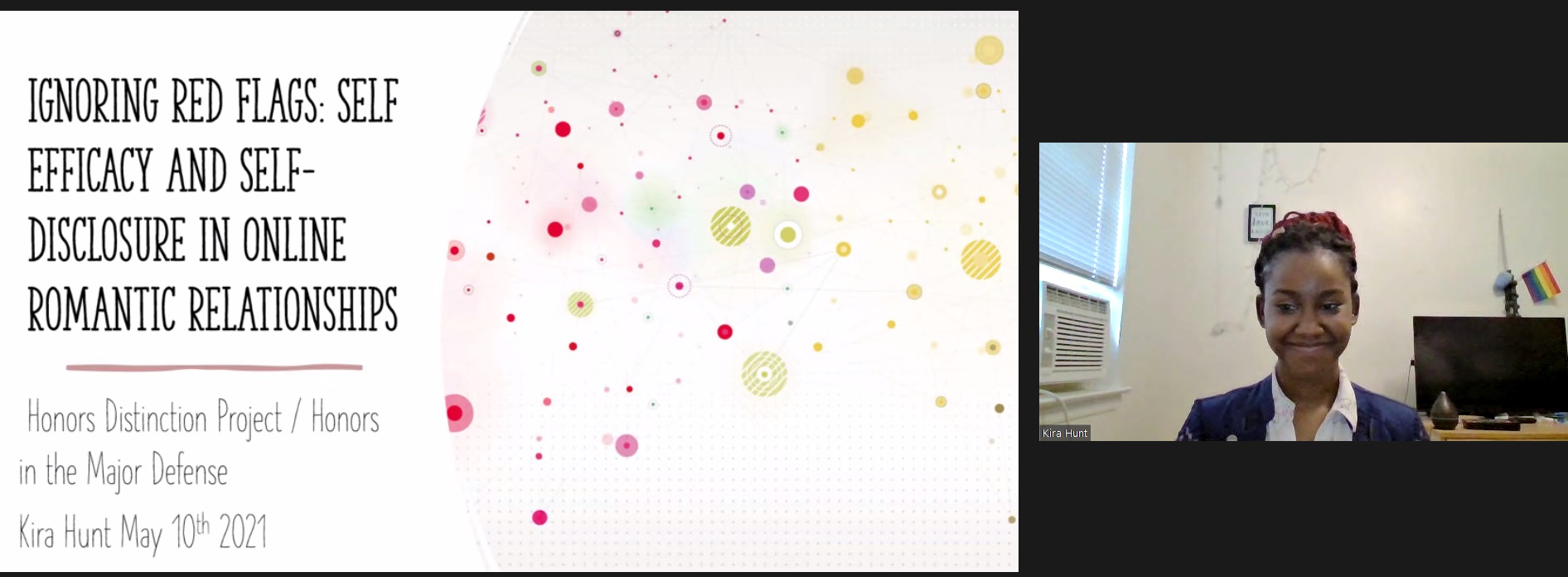
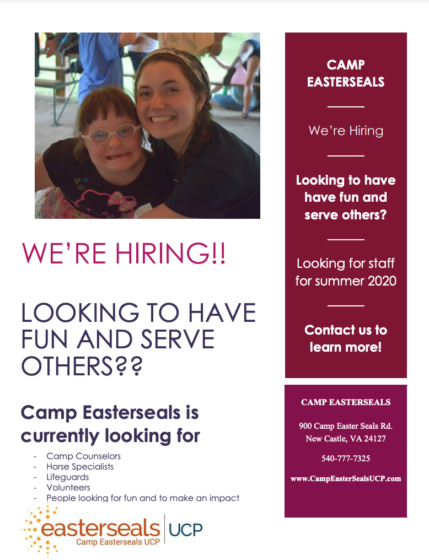 Are you looking for a summer job? How about an internship experience? Well, look no further, because Camp Easterseals is hiring summer staff!
Are you looking for a summer job? How about an internship experience? Well, look no further, because Camp Easterseals is hiring summer staff!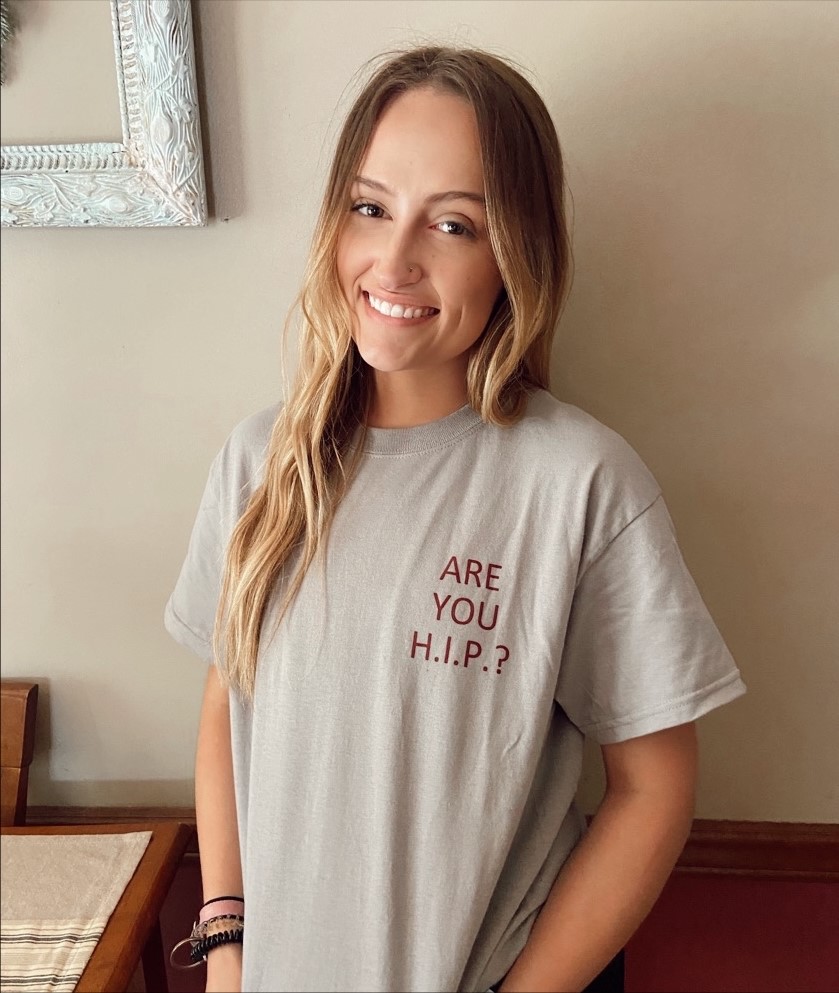
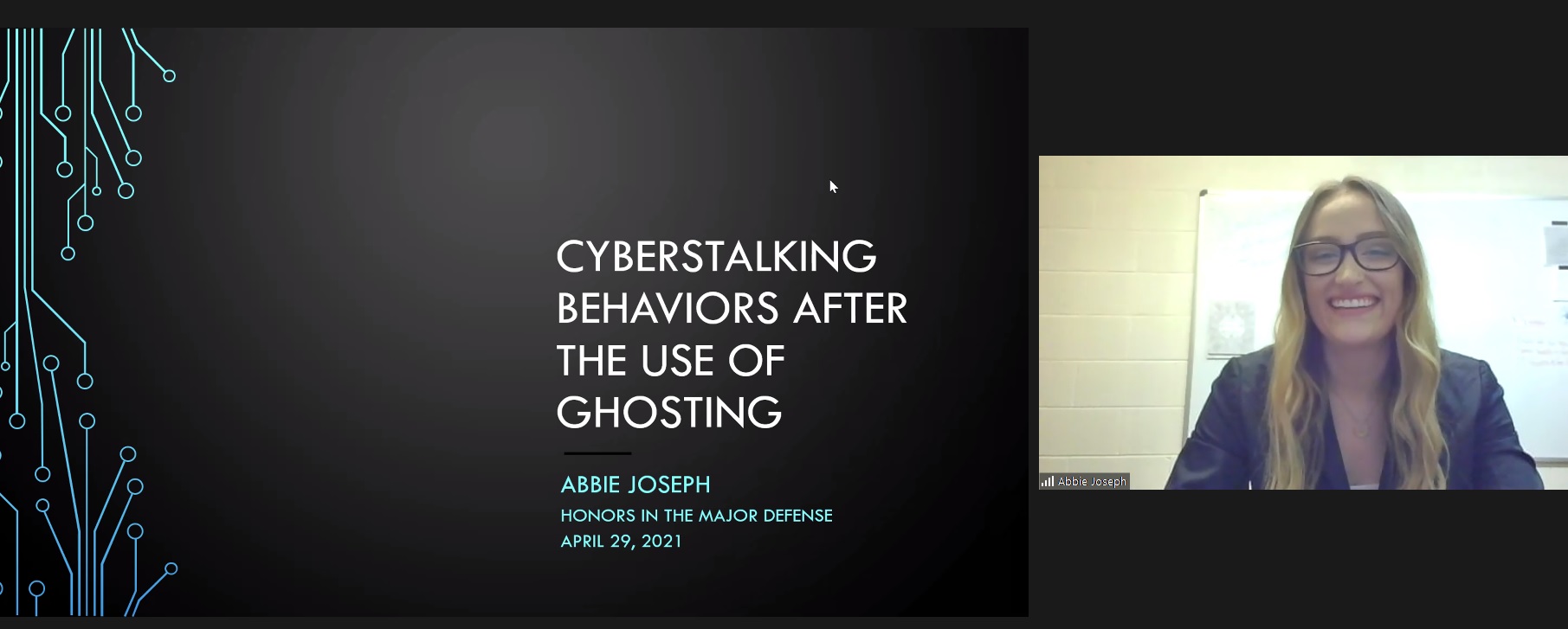

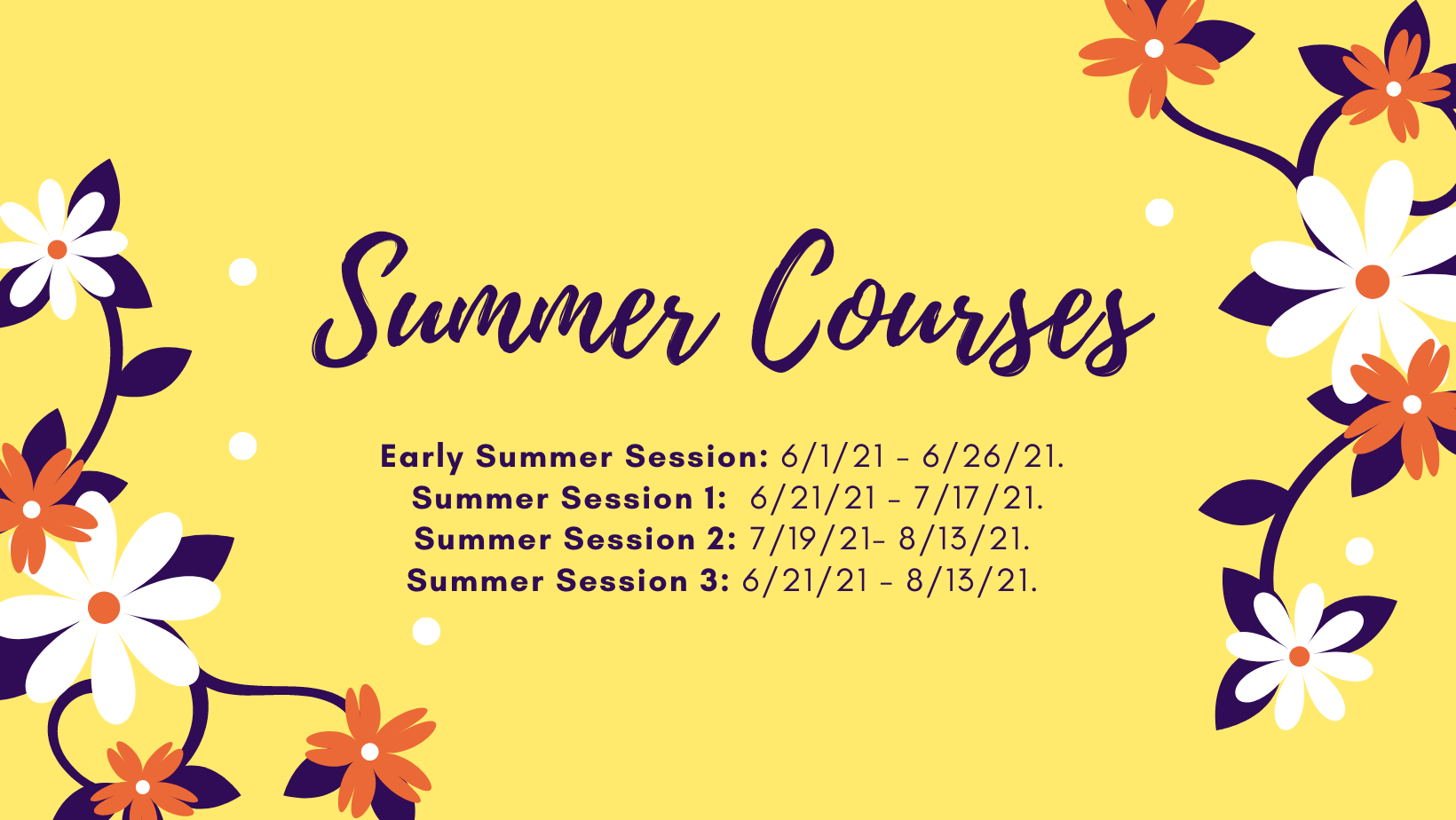

 Internships are one of the main forms of experiential learning experiences offered at Roanoke College and within the psychology department. Each semester, our department sends students to work with various different organizations, across a number of fields or professions within psychology, to gain exposure to the field and to share their experiences with the department and other students on campus.
Internships are one of the main forms of experiential learning experiences offered at Roanoke College and within the psychology department. Each semester, our department sends students to work with various different organizations, across a number of fields or professions within psychology, to gain exposure to the field and to share their experiences with the department and other students on campus.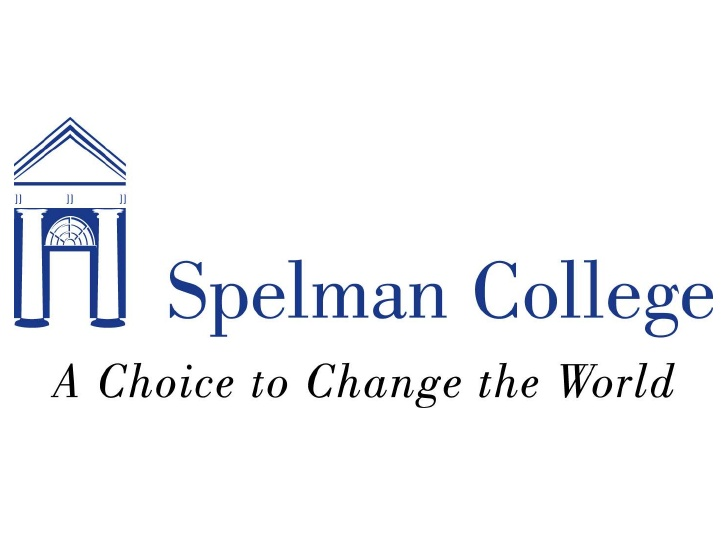 Dr. Dickens’ social psychology research lab at Spelman College is looking to hire an undergraduate research assistant to help with research focused on the experiences of Black women in STEM education.
Dr. Dickens’ social psychology research lab at Spelman College is looking to hire an undergraduate research assistant to help with research focused on the experiences of Black women in STEM education.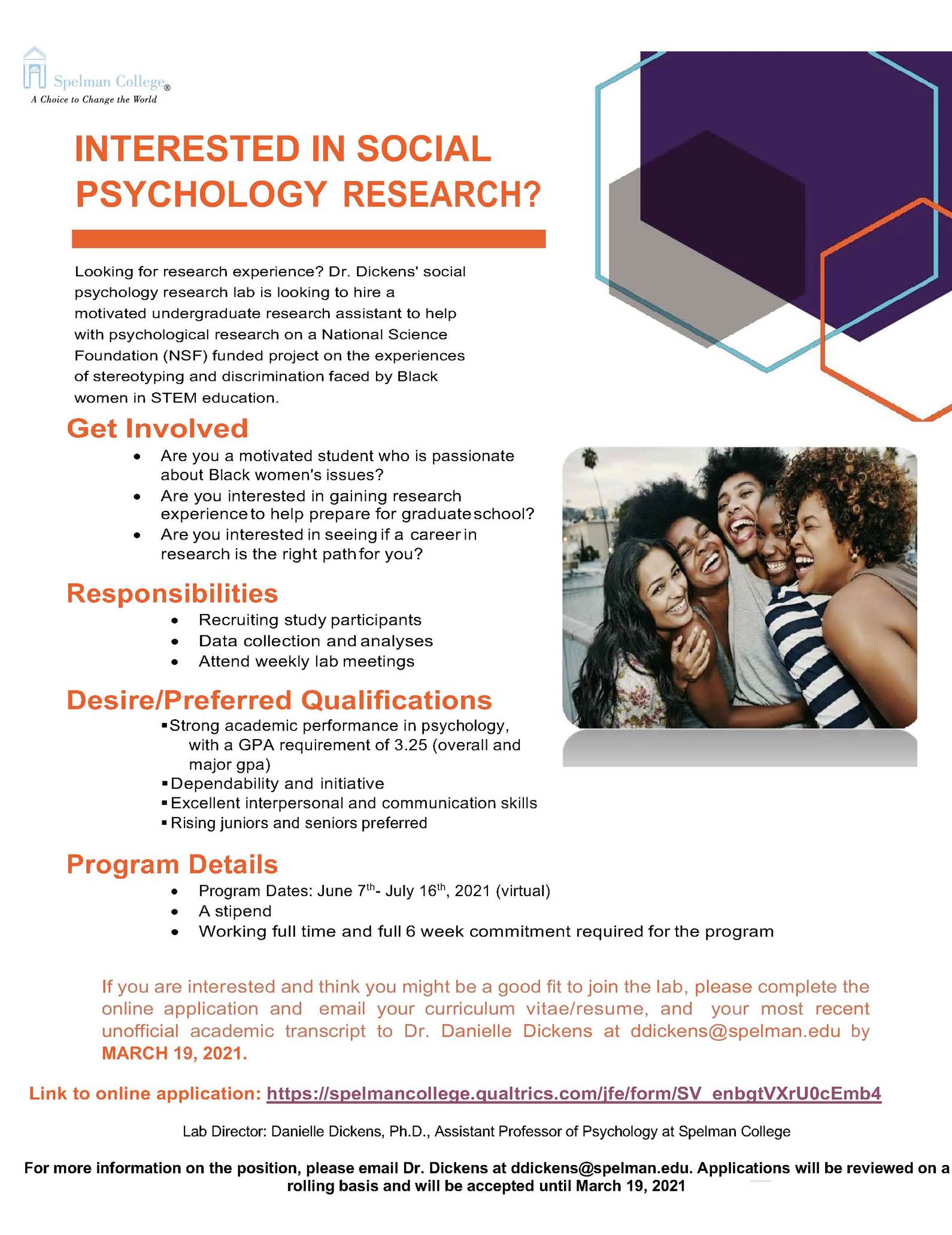
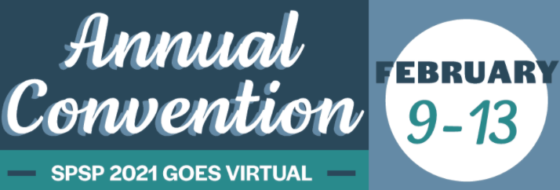
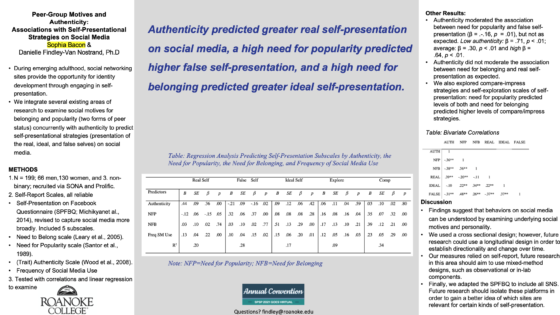 Research has shown that social networking platforms (Instagam, Facebook, Snap Chat, ect) afford the opportunity for identity development, specifically through engaging in different types of self-presentation. In this study, we examined the association between social goals (including, authenticity, the need for popularity, and need for belonging) and presentation of the real, ideal, and false self on social media.
Research has shown that social networking platforms (Instagam, Facebook, Snap Chat, ect) afford the opportunity for identity development, specifically through engaging in different types of self-presentation. In this study, we examined the association between social goals (including, authenticity, the need for popularity, and need for belonging) and presentation of the real, ideal, and false self on social media.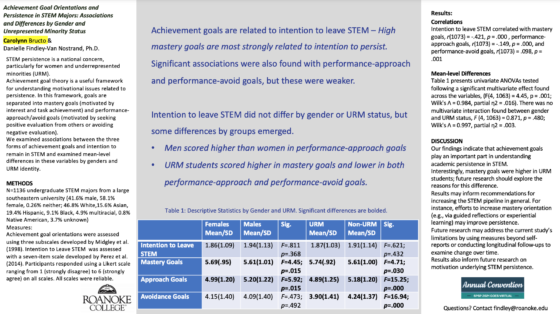 In this study, we examined achievement goal orientations (mastery, performance-approach, and performance-avoidance) in association with intention to remain in STEM majors and differences in these variables and associations by gender and unrepresented minority status in a large sample of undergraduate students. Results suggest achievement goals are meaningfully related to STEM persistence.
In this study, we examined achievement goal orientations (mastery, performance-approach, and performance-avoidance) in association with intention to remain in STEM majors and differences in these variables and associations by gender and unrepresented minority status in a large sample of undergraduate students. Results suggest achievement goals are meaningfully related to STEM persistence.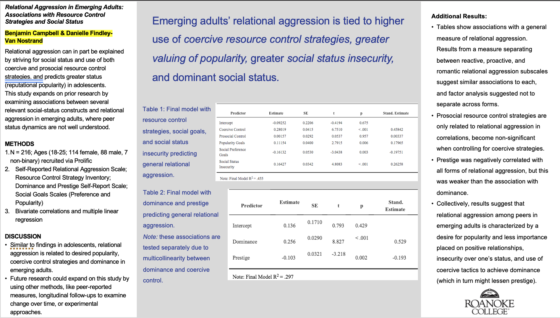
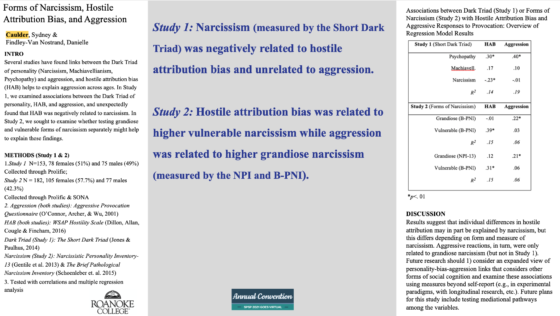 Research has found that narcissism predicts heightened provoked aggression and hostility. However, less understood is the role of hostile attribution bias (HAB) in these associations. In this study, we examined multiple conceptualizations of narcissism (grandiose and pathological) in relation to HAB and aggressive responses to provocation.
Research has found that narcissism predicts heightened provoked aggression and hostility. However, less understood is the role of hostile attribution bias (HAB) in these associations. In this study, we examined multiple conceptualizations of narcissism (grandiose and pathological) in relation to HAB and aggressive responses to provocation.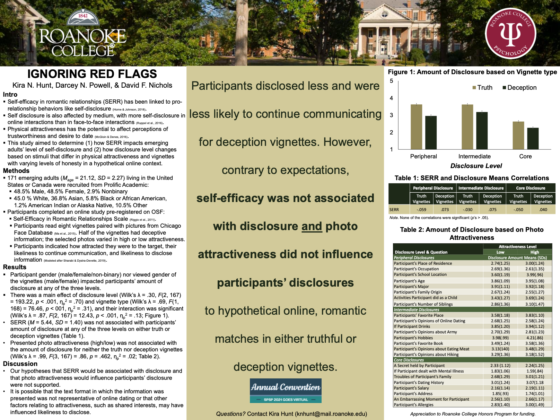
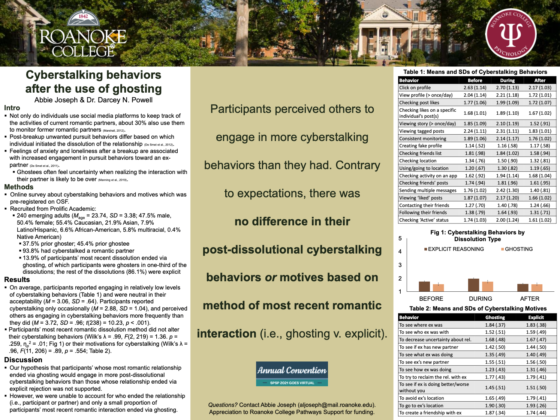
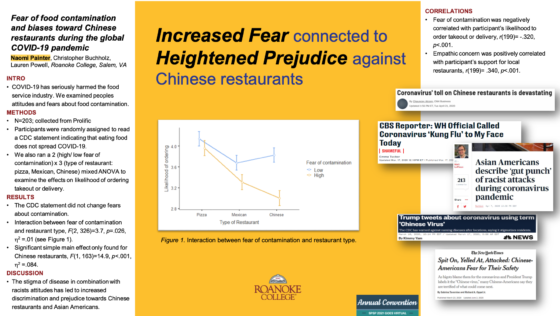
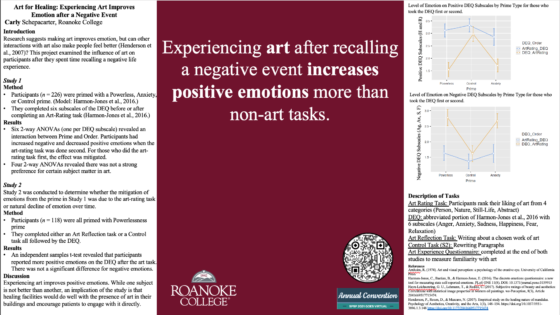

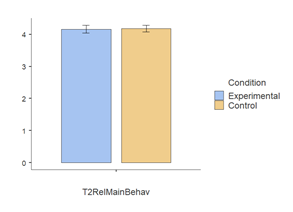
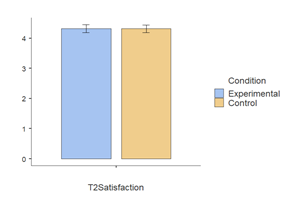
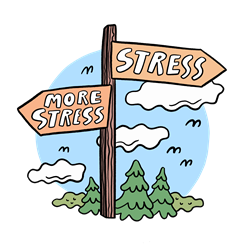
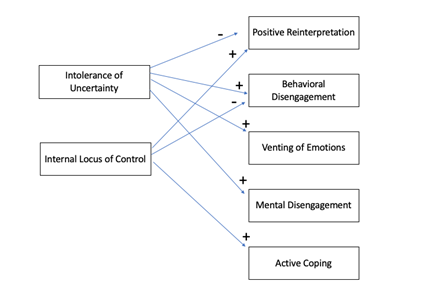
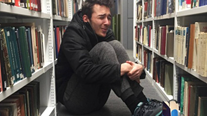
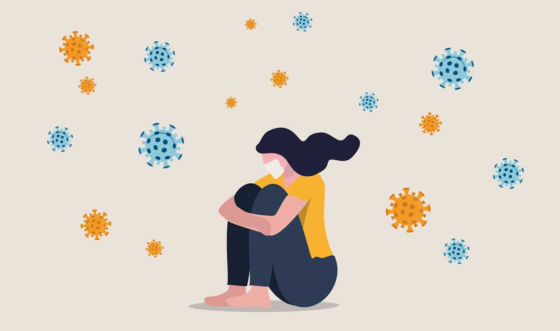
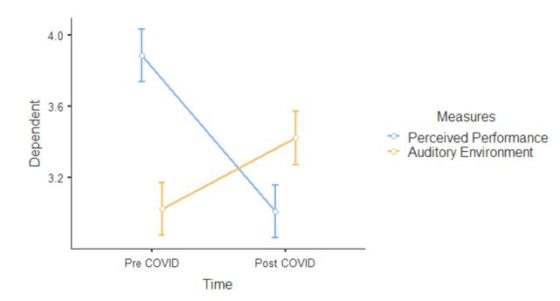 Figure 1. The effect that time period has on auditory environment and perceived performance
Figure 1. The effect that time period has on auditory environment and perceived performance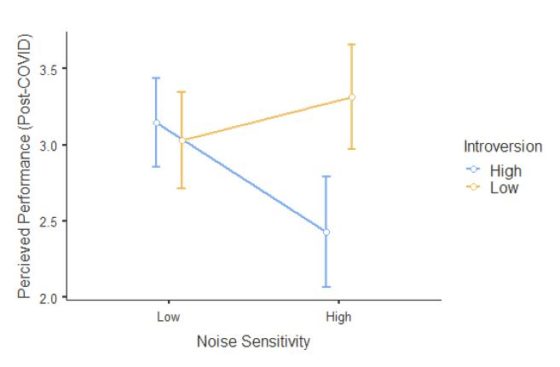 Figure 2. The effect that introversion level has on an individual’s noise sensitivity and perceived performance after COVID-19.
Figure 2. The effect that introversion level has on an individual’s noise sensitivity and perceived performance after COVID-19.
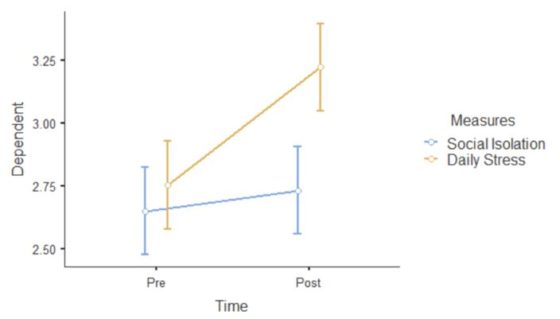 Figure 1. Social Isolation and Daily Stress over time.
Figure 1. Social Isolation and Daily Stress over time.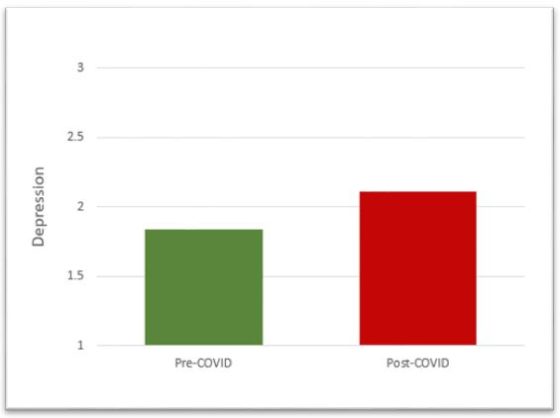
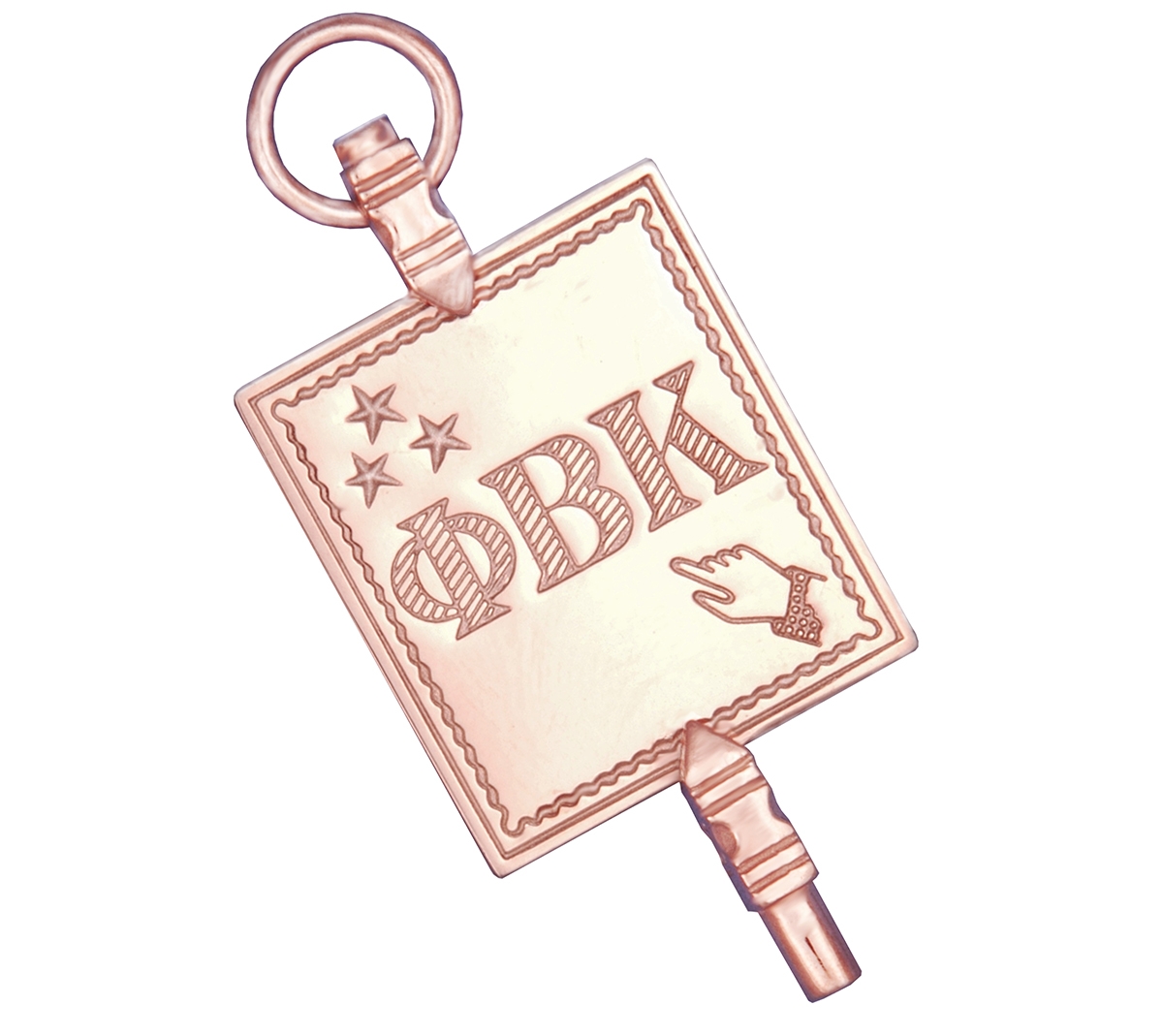
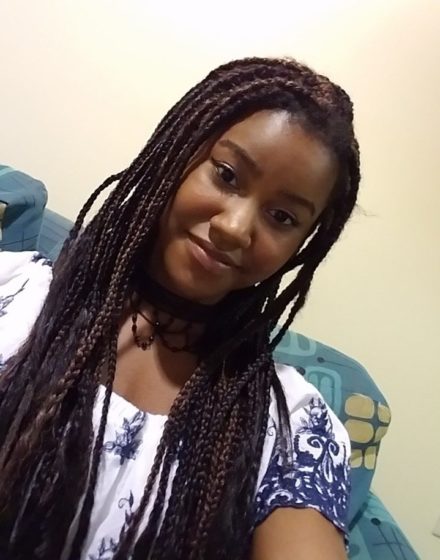 I am a senior psychology major with a concentration in neuroscience and a minor in sociology. I was really ecstatic to hear that I was selected because I had been working towards this since hearing about it in my freshman year. While at Roanoke, I’ve been a student assistant in the psychology department as well as an academic coach in the Center for Learning and Teaching. I am also a member of Alpha Lambda Delta and Psi Chi. In addition, I have also participated in research in Dr. Powell’s lab as well as with Dr. Nichols, which is one of the things I am most proud of. I haven’t finished my Honors Distinction Project yet but I’m really proud of the progress I have made on it. After graduation, I plan on being in Teach for America while I prepare to go to graduate school to become a Certified Child Life Specialist.
I am a senior psychology major with a concentration in neuroscience and a minor in sociology. I was really ecstatic to hear that I was selected because I had been working towards this since hearing about it in my freshman year. While at Roanoke, I’ve been a student assistant in the psychology department as well as an academic coach in the Center for Learning and Teaching. I am also a member of Alpha Lambda Delta and Psi Chi. In addition, I have also participated in research in Dr. Powell’s lab as well as with Dr. Nichols, which is one of the things I am most proud of. I haven’t finished my Honors Distinction Project yet but I’m really proud of the progress I have made on it. After graduation, I plan on being in Teach for America while I prepare to go to graduate school to become a Certified Child Life Specialist.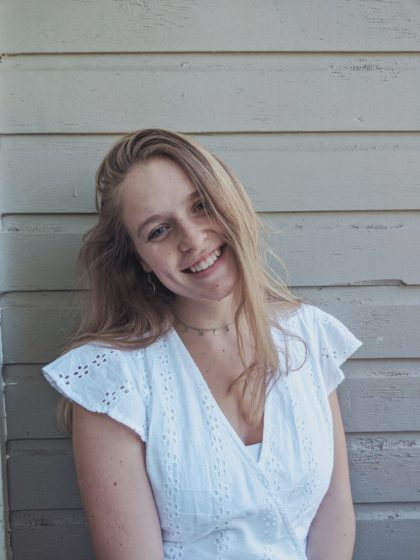 I am a senior psychology and criminal justice double major. I received a voicemail from Dr. Peppers letting me know that I was selected for membership into PBK and I was ecstatic! I have been working towards membership into PBK since freshman year and I was so pleased that my hard work had finally paid off. While at Roanoke I have been involved in many things – from running on the Track and Field team, singing in the Roanotes acapella group, co-hosting a radio show, working as the campus activities director and creating fundraising events for Make-A-Wish in Chi Omega, working as the trip supervisor and guide with Outdoor Adventures, working as a student assistant in the psychology department, conducting research with Dr. Osterman, leading Psi Chi, NSLS, and Alpha Lambda Delta as president, as well as also being a member in Alpha Phi Sigma, Xi Theta Chi, Order of Omega, and Omicron Delta Kappa. It’s safe to say my time at Roanoke College has been far from boring. That all being said, my biggest accomplishments, besides being selected into PBK, are definitely presenting at the SPSP conference in New Orleans last spring, having the opportunity to ask Justice Sotomayor a question during her Zoom visit with Roanoke College, and working towards completing my honor in the major project. Upon graduating from Roanoke, I intend to enter into a Clinical Psychology Ph.D. program and eventually become a forensic psychologist for juveniles.
I am a senior psychology and criminal justice double major. I received a voicemail from Dr. Peppers letting me know that I was selected for membership into PBK and I was ecstatic! I have been working towards membership into PBK since freshman year and I was so pleased that my hard work had finally paid off. While at Roanoke I have been involved in many things – from running on the Track and Field team, singing in the Roanotes acapella group, co-hosting a radio show, working as the campus activities director and creating fundraising events for Make-A-Wish in Chi Omega, working as the trip supervisor and guide with Outdoor Adventures, working as a student assistant in the psychology department, conducting research with Dr. Osterman, leading Psi Chi, NSLS, and Alpha Lambda Delta as president, as well as also being a member in Alpha Phi Sigma, Xi Theta Chi, Order of Omega, and Omicron Delta Kappa. It’s safe to say my time at Roanoke College has been far from boring. That all being said, my biggest accomplishments, besides being selected into PBK, are definitely presenting at the SPSP conference in New Orleans last spring, having the opportunity to ask Justice Sotomayor a question during her Zoom visit with Roanoke College, and working towards completing my honor in the major project. Upon graduating from Roanoke, I intend to enter into a Clinical Psychology Ph.D. program and eventually become a forensic psychologist for juveniles.

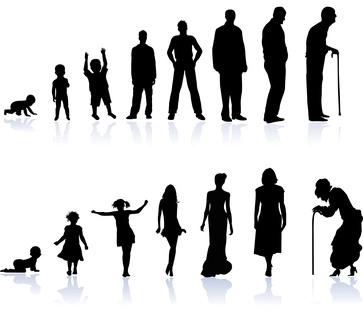
 You do not need to have your future plans set in stone at any point during your college career, but it may be good to start considering different options and creating plans around those options. That is, look at what courses you will need to take to complete your major/minor/concentration and roughly layout when you will take them. Moreover, consider what you do and do not want to do while in college (e.g., internships, research, study abroad, etc.). This initial planning stage will help you in the long run but is not limited to those in their freshman year.
You do not need to have your future plans set in stone at any point during your college career, but it may be good to start considering different options and creating plans around those options. That is, look at what courses you will need to take to complete your major/minor/concentration and roughly layout when you will take them. Moreover, consider what you do and do not want to do while in college (e.g., internships, research, study abroad, etc.). This initial planning stage will help you in the long run but is not limited to those in their freshman year.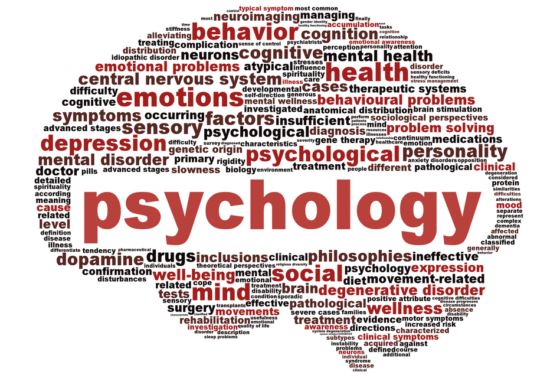
 If you are looking to enter into a graduate program or a specific job, look at the application requirements and deadlines early on. Even if you have no idea where you want to go or what you want to do, looking into different programs and seeing what they require of applicants is a good start. In doing so, you may find that multiple programs are expecting similar requirements such as research experience or a GRE score. In noticing these commonalities, you can adjust what you are doing to ensure you complete these items on time.
If you are looking to enter into a graduate program or a specific job, look at the application requirements and deadlines early on. Even if you have no idea where you want to go or what you want to do, looking into different programs and seeing what they require of applicants is a good start. In doing so, you may find that multiple programs are expecting similar requirements such as research experience or a GRE score. In noticing these commonalities, you can adjust what you are doing to ensure you complete these items on time.


 While studying abroad is not for everyone, it is a great experience that not only enhances cultural knowledge but leads to self-development. Studying abroad offers a lot of self-development that can be beneficial and will look notable when applying to jobs or graduate programs. There are a variety of study abroad options available, and if you plan ahead early, you can ensure that courses you take while abroad can fill requirements you may need, as well as find a semester where studying abroad works best for you.
While studying abroad is not for everyone, it is a great experience that not only enhances cultural knowledge but leads to self-development. Studying abroad offers a lot of self-development that can be beneficial and will look notable when applying to jobs or graduate programs. There are a variety of study abroad options available, and if you plan ahead early, you can ensure that courses you take while abroad can fill requirements you may need, as well as find a semester where studying abroad works best for you.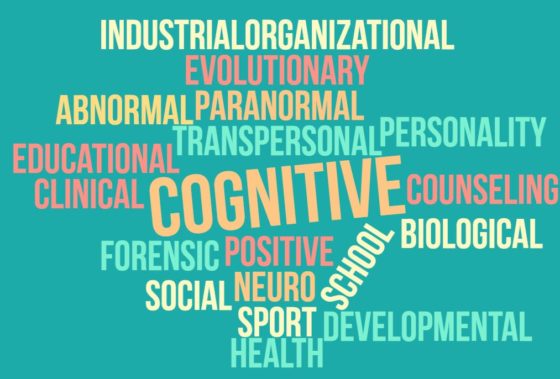
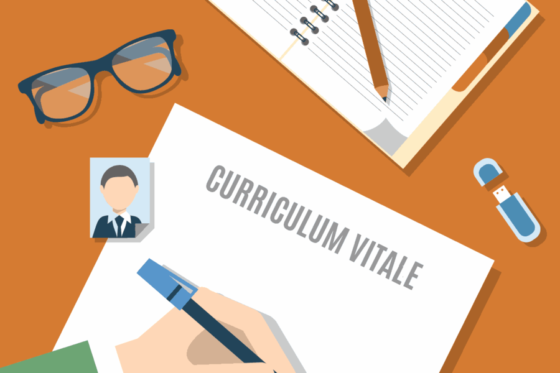

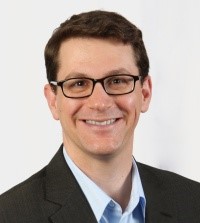
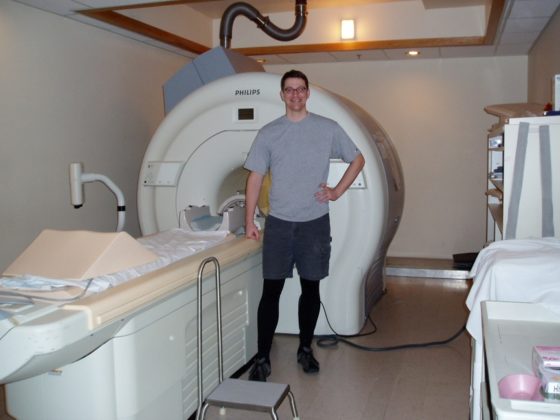
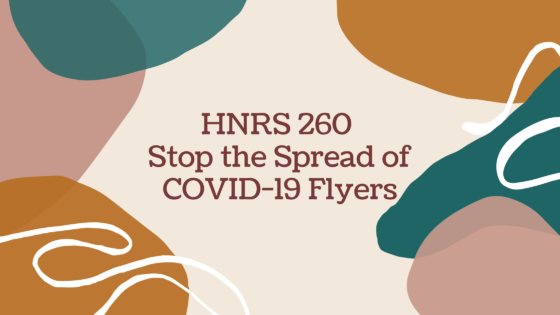
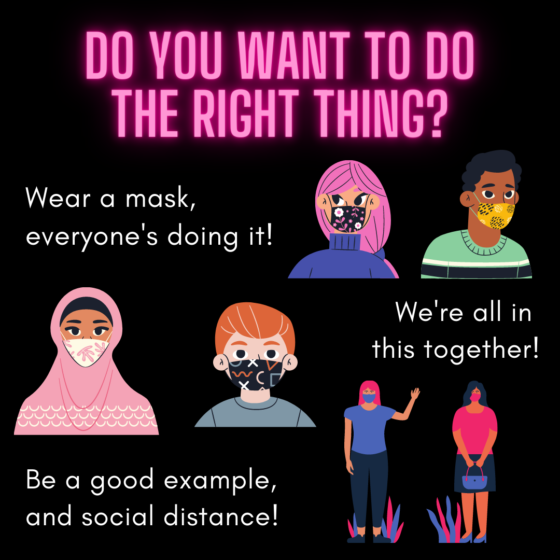
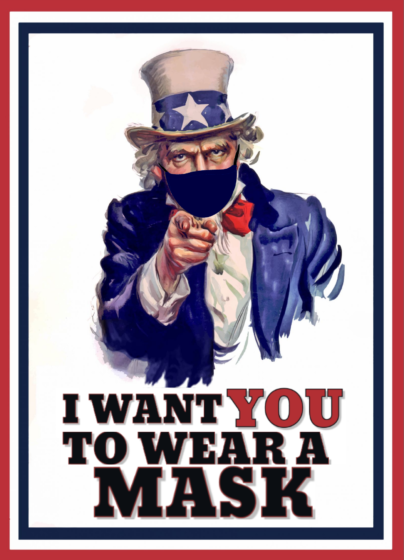
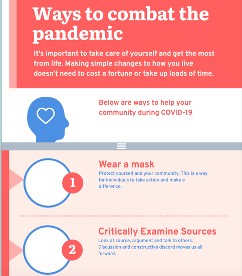
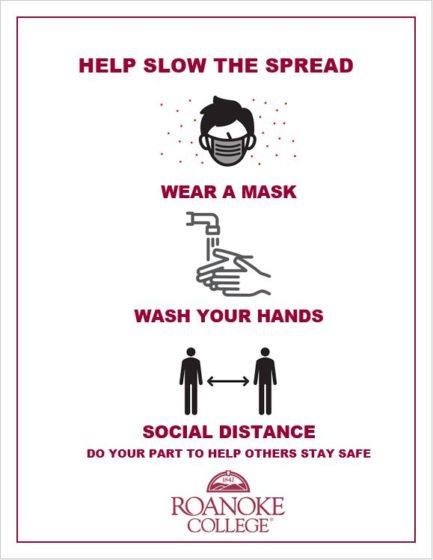

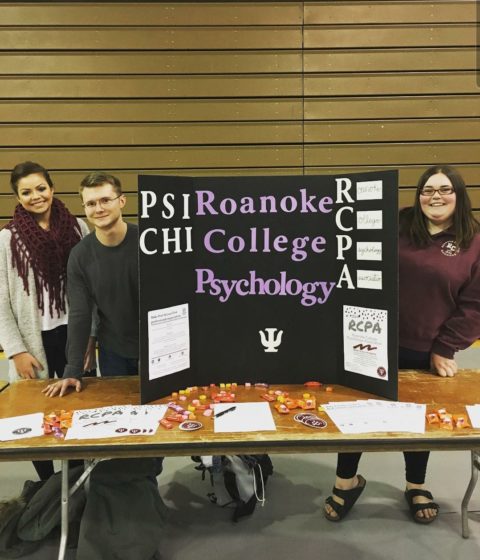
 On February 27-29
On February 27-29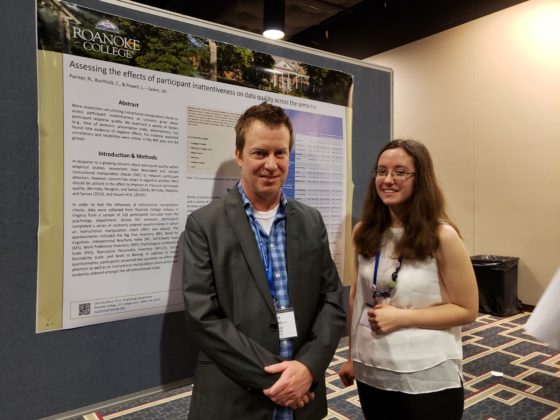
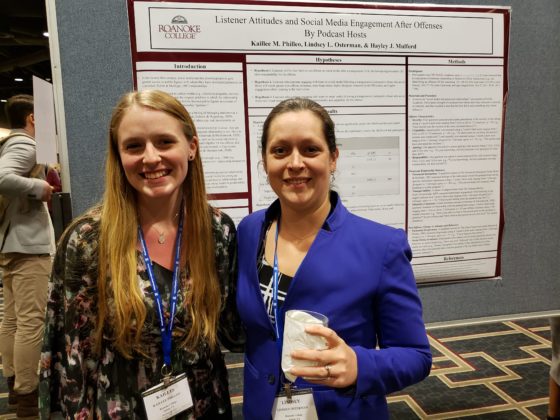
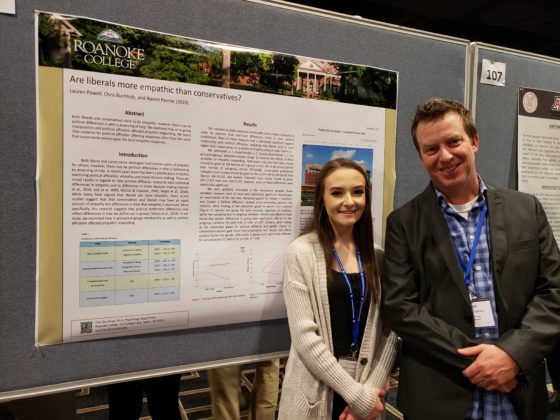

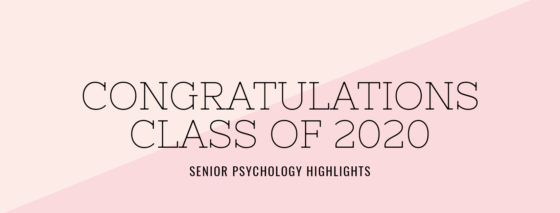 Over the next few days, we will be highlighting the Psychology Department graduating seniors! This post will highlight 4 seniors: Ryen Beach, Sophia Bacon, Athey Crump, and Emily Deeds!
Over the next few days, we will be highlighting the Psychology Department graduating seniors! This post will highlight 4 seniors: Ryen Beach, Sophia Bacon, Athey Crump, and Emily Deeds!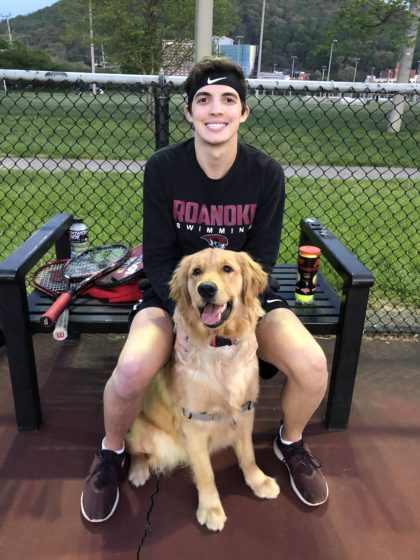
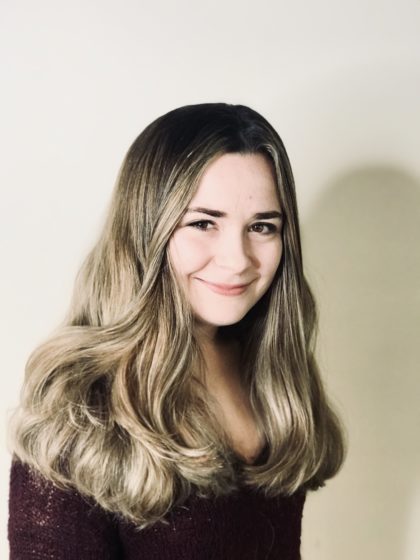
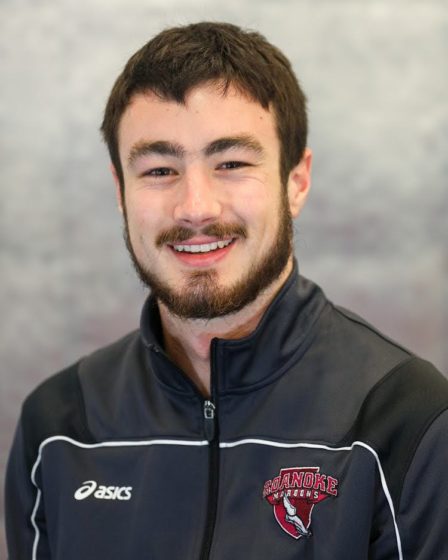
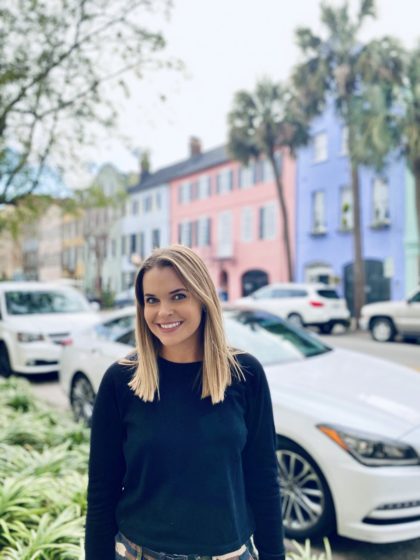
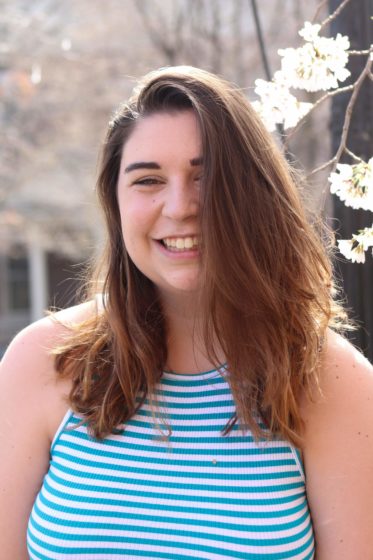
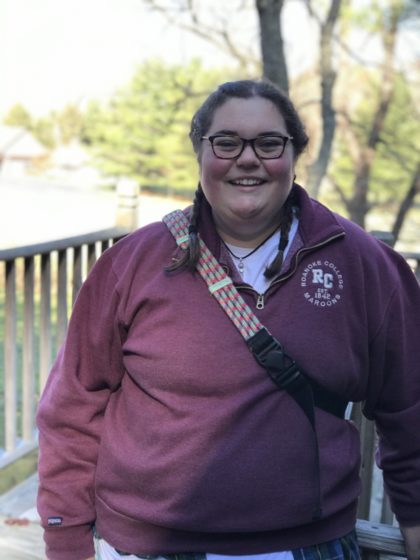
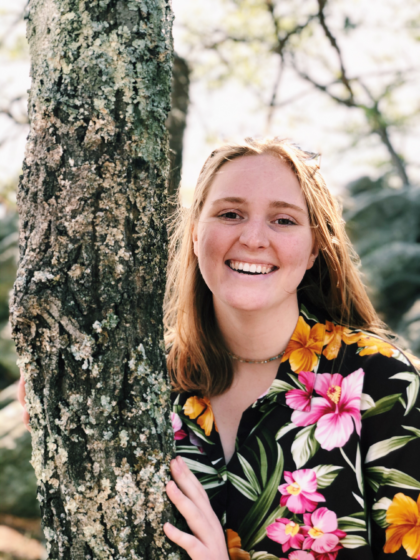
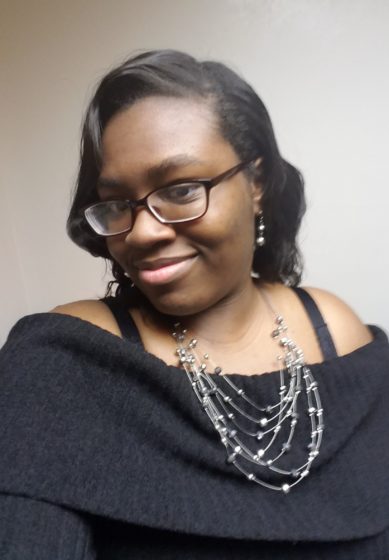
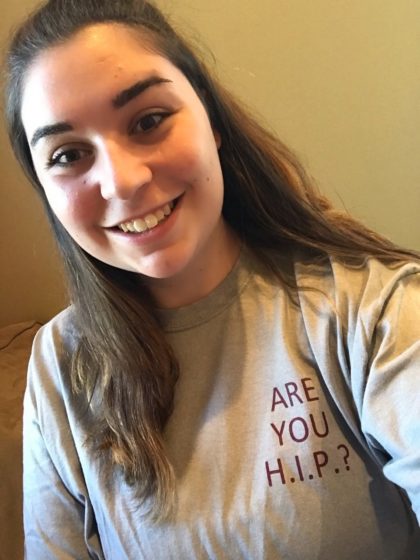
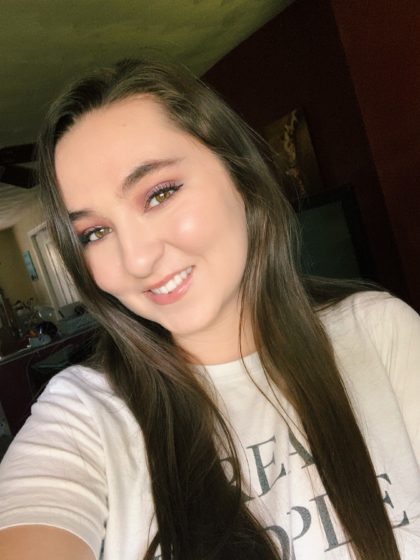
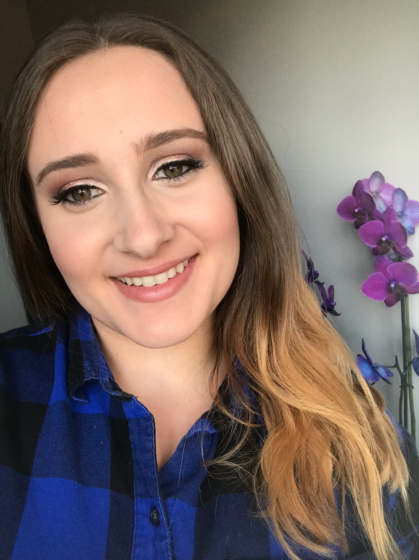 One of my favorite memories from being in the Psychology Department was watching Dr. Buchholz cover Dr. Osterman’s office with googly eyes for April Fools. I definitely had nothing to do with the prank.
One of my favorite memories from being in the Psychology Department was watching Dr. Buchholz cover Dr. Osterman’s office with googly eyes for April Fools. I definitely had nothing to do with the prank. 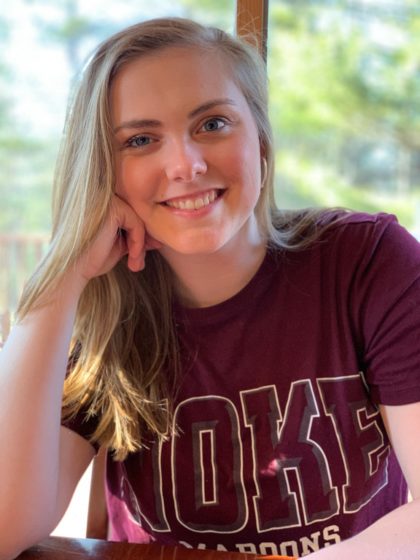 After graduation, I will be continuing my education at Virginia Tech by pursuing a Master’s Degree in Counselor Education.
After graduation, I will be continuing my education at Virginia Tech by pursuing a Master’s Degree in Counselor Education.  My favorite memory from being the Psychology Department was getting the chance to attend the SPSP Conference in New Orleans 2020!
My favorite memory from being the Psychology Department was getting the chance to attend the SPSP Conference in New Orleans 2020!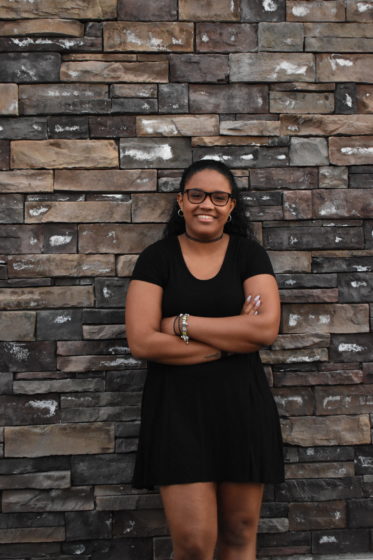 After graduation, I plan on finding a full-time job as a Graphic Designer, dealing with digital marketing.
After graduation, I plan on finding a full-time job as a Graphic Designer, dealing with digital marketing.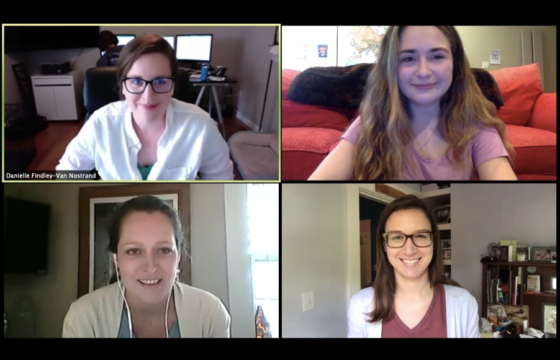
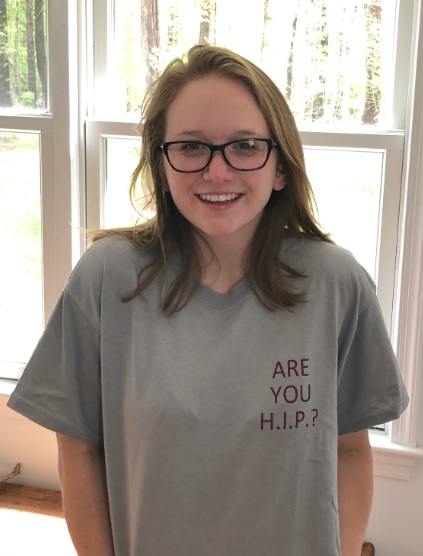
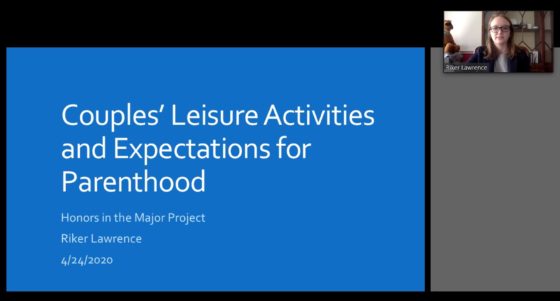
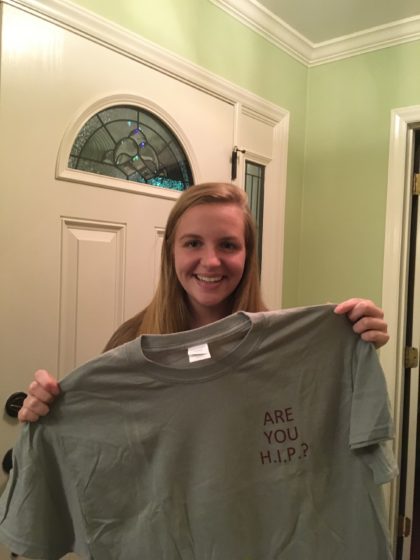
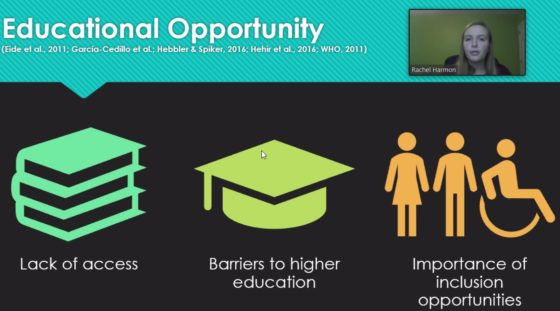

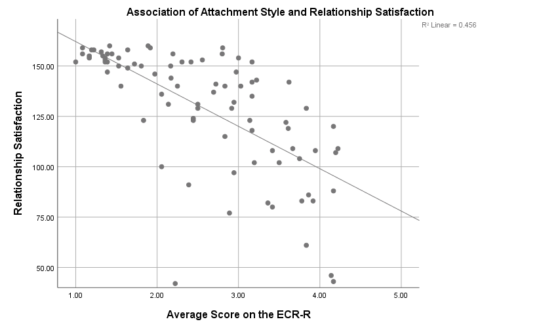
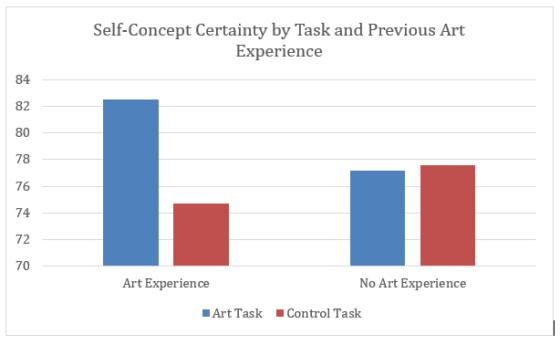

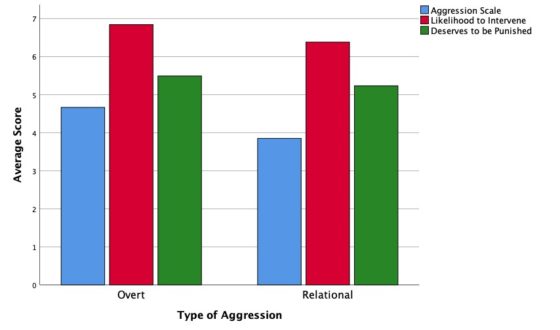
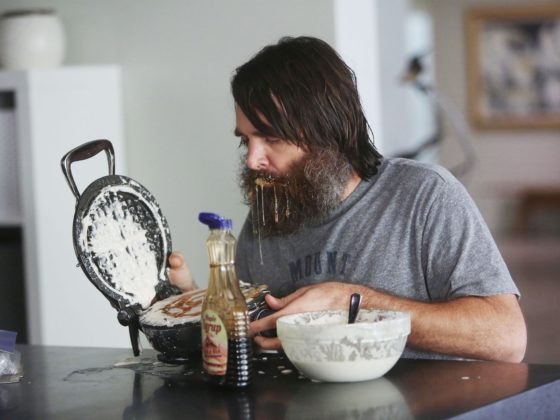
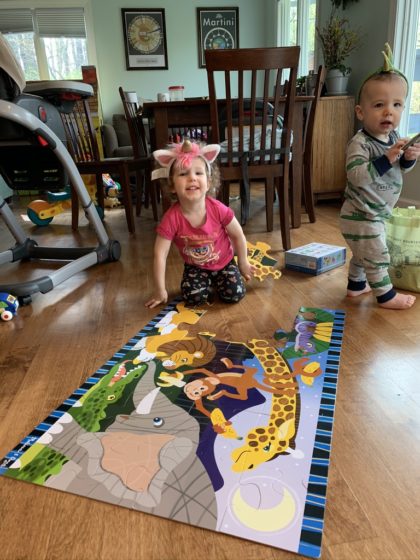
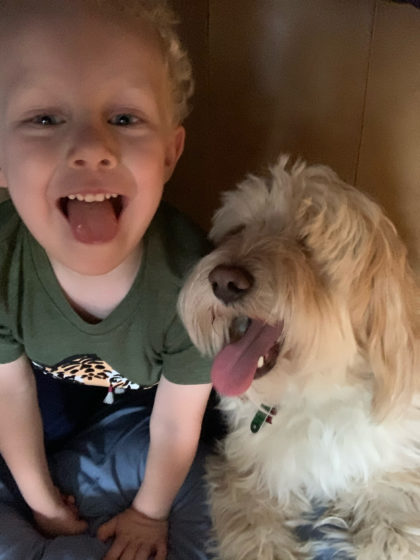
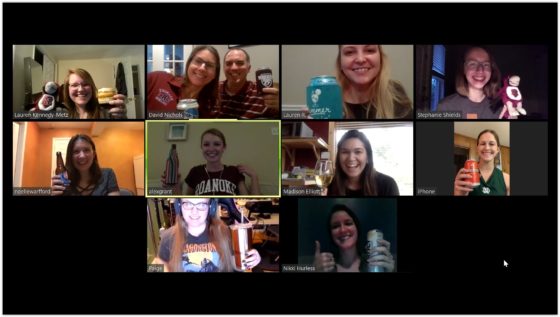
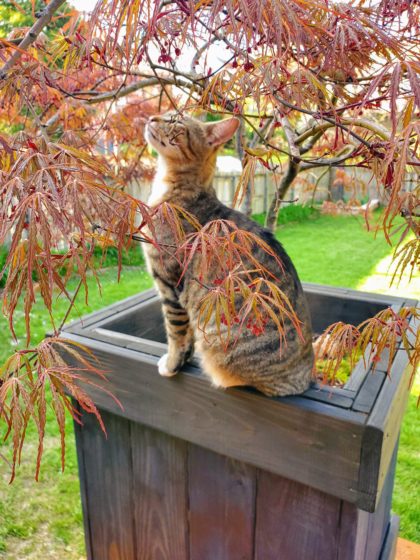
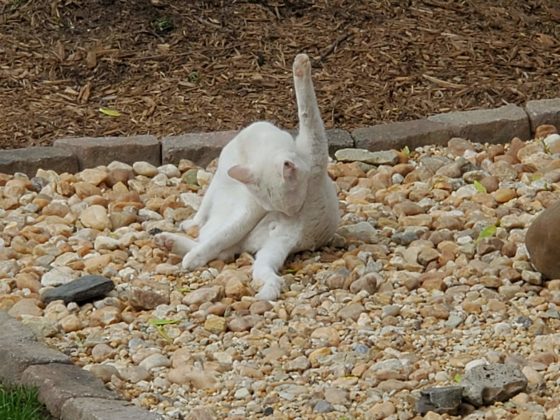

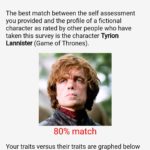
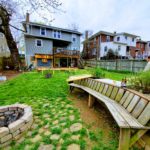


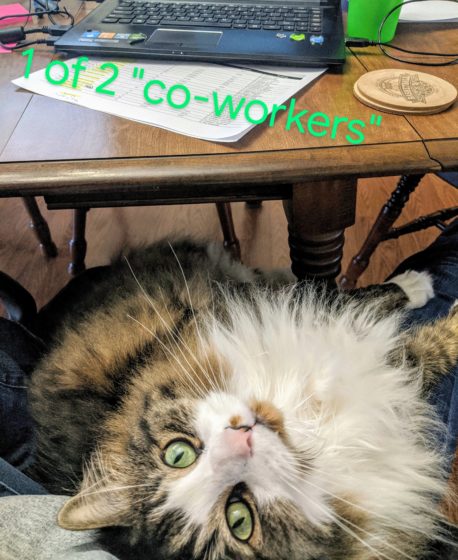

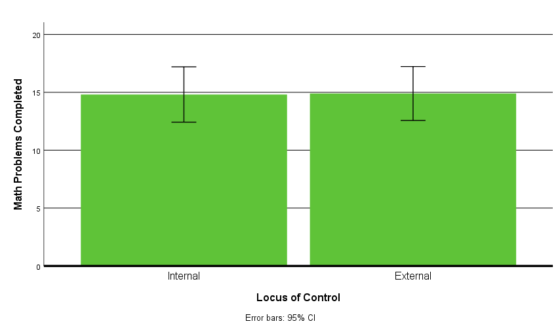
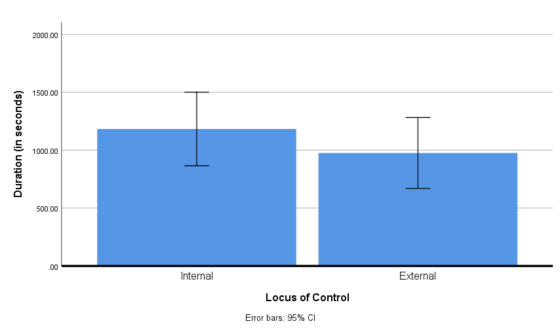


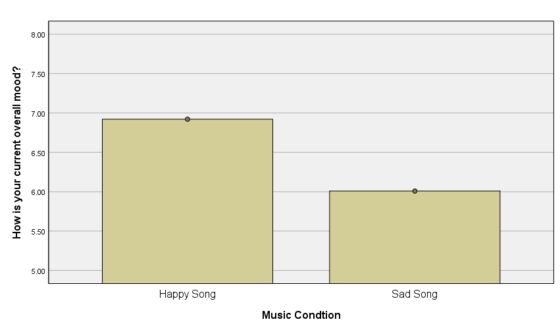
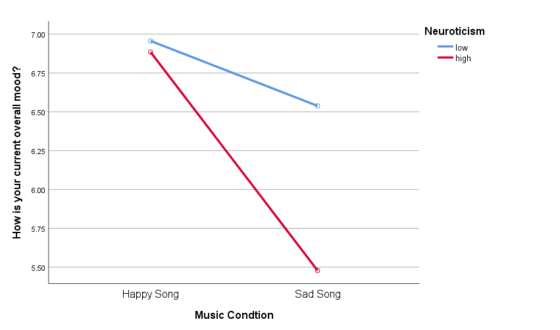
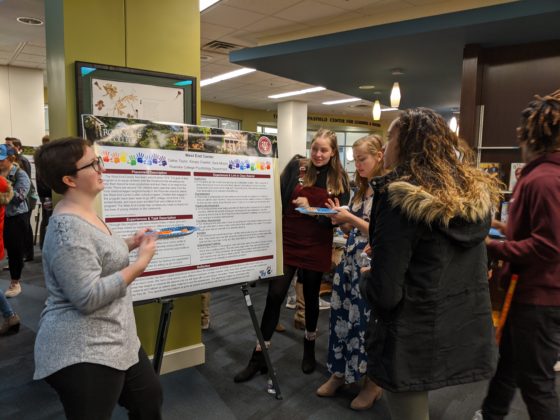
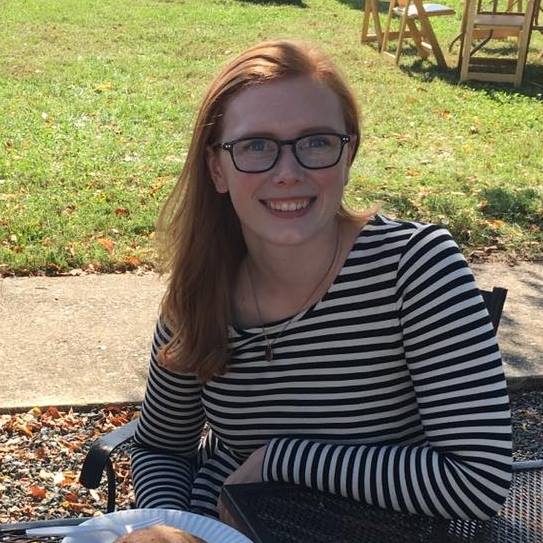
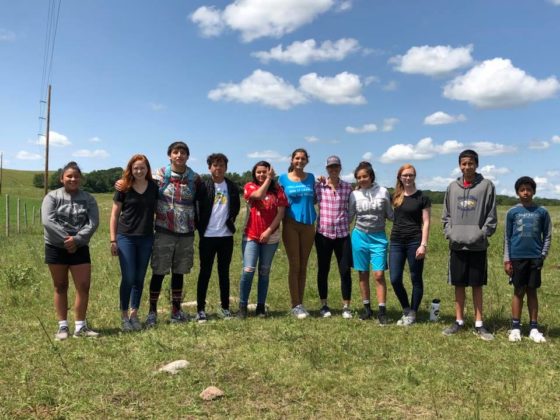
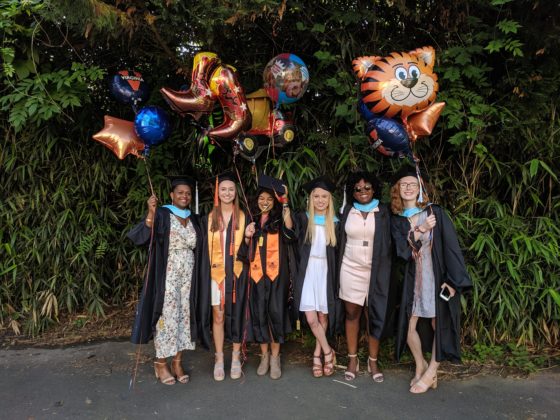
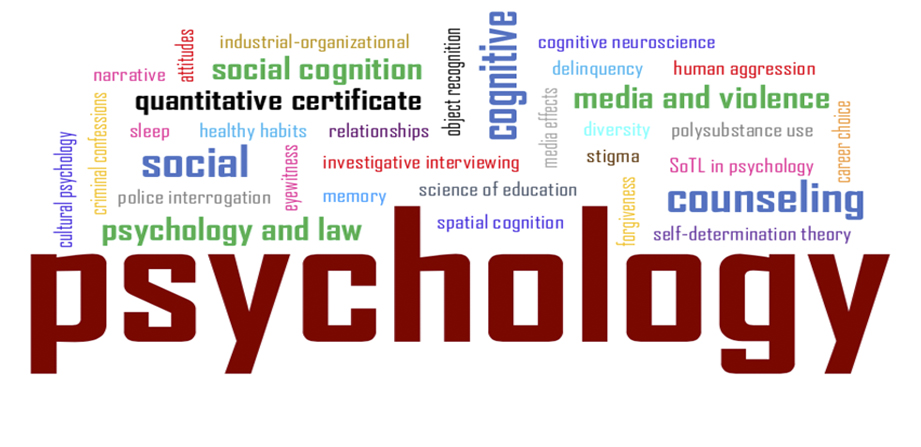



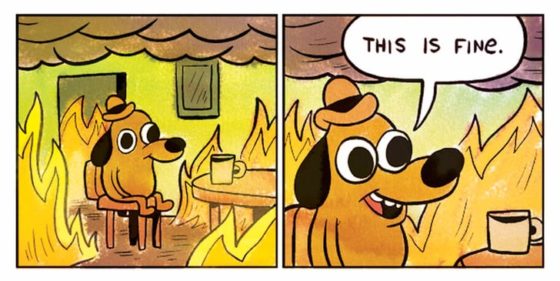
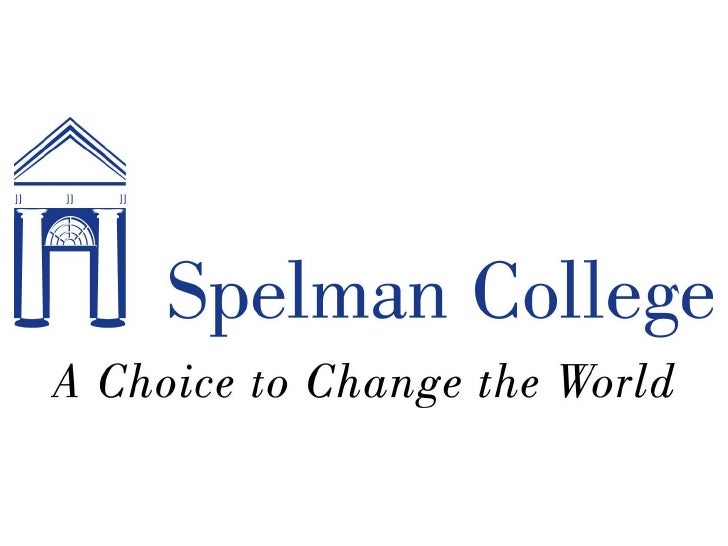
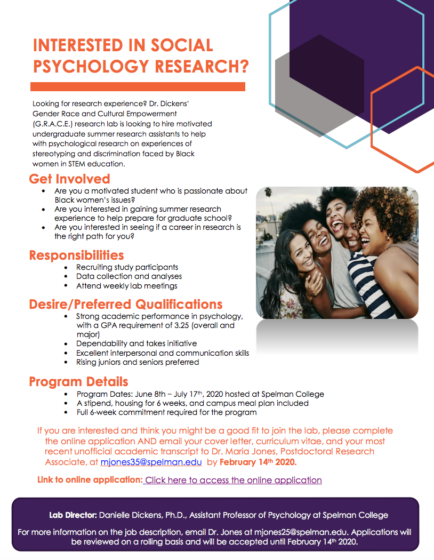


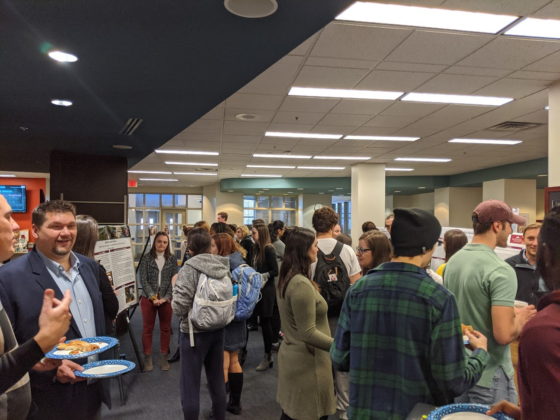
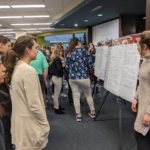

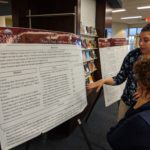
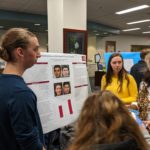
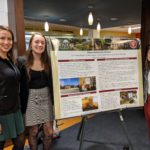
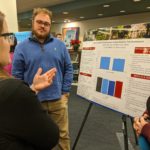
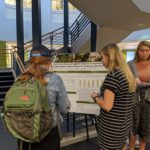
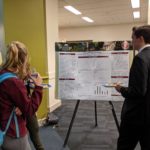
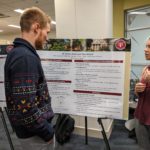
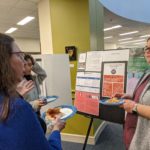
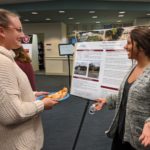
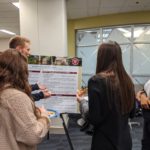
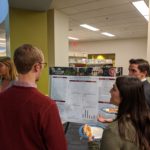
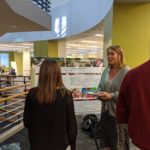
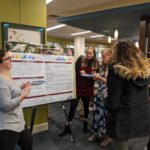
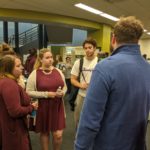
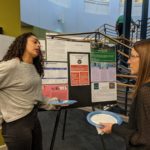
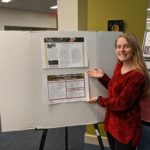
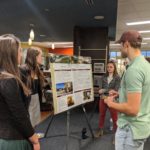
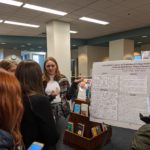
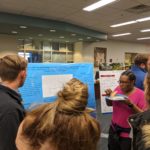
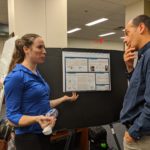

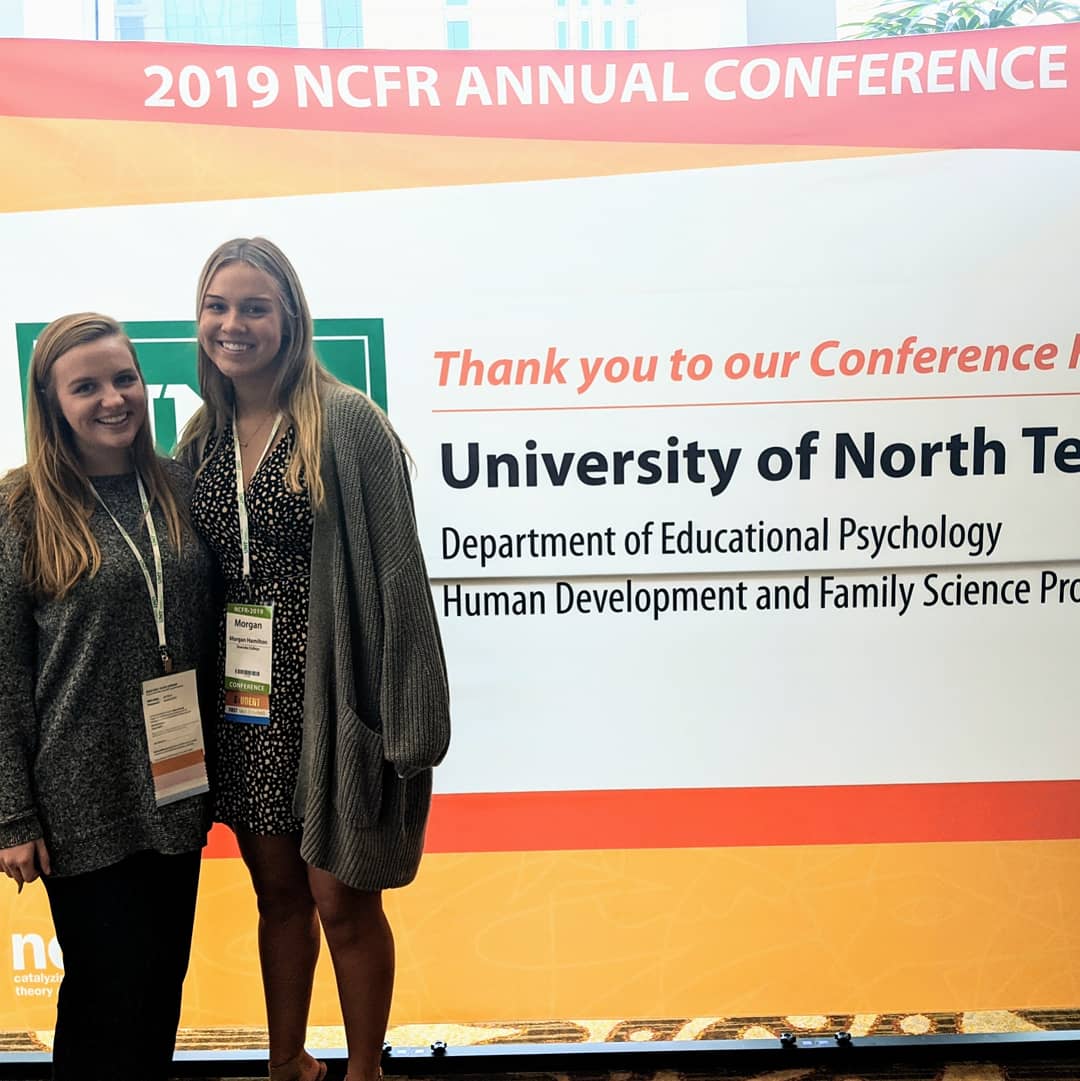
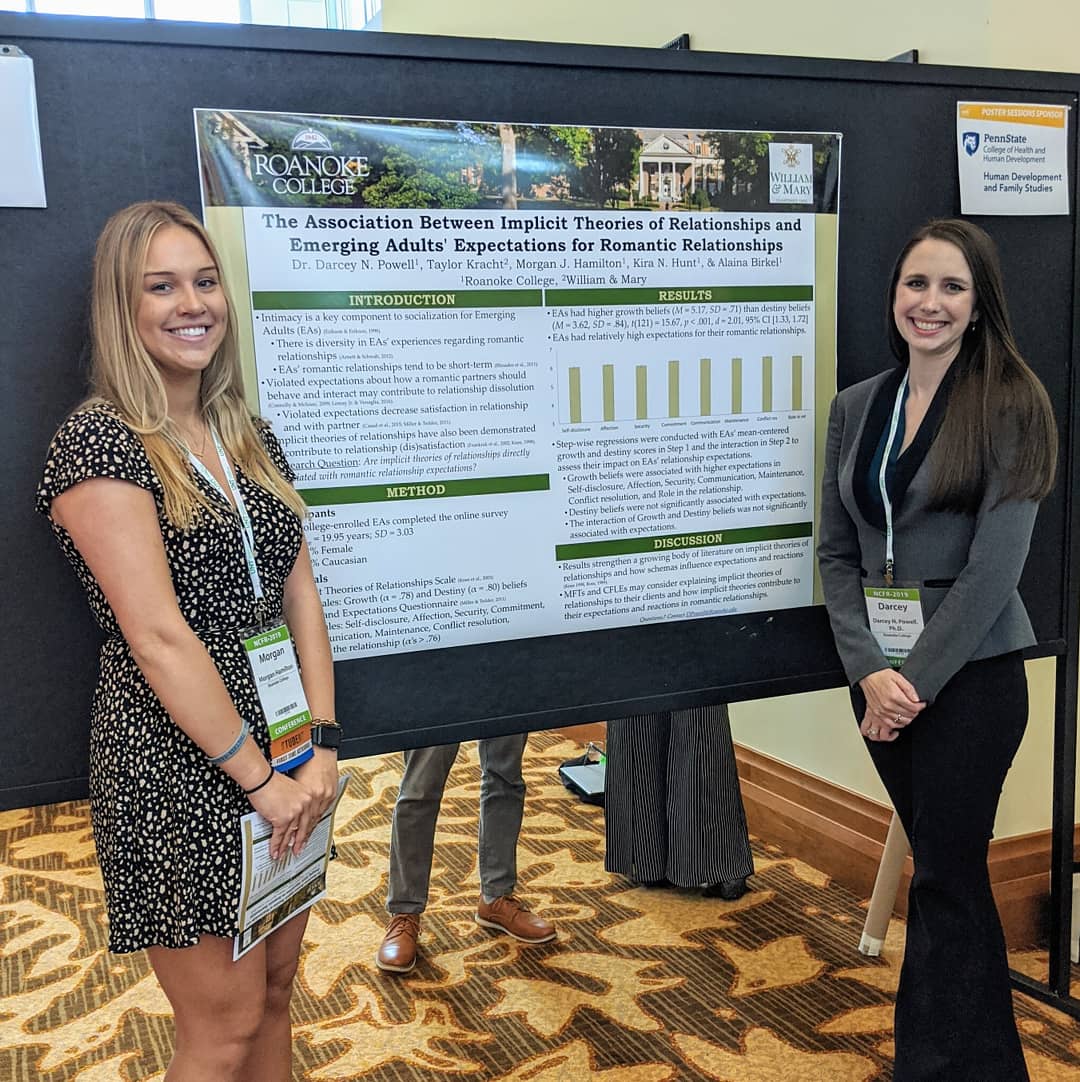

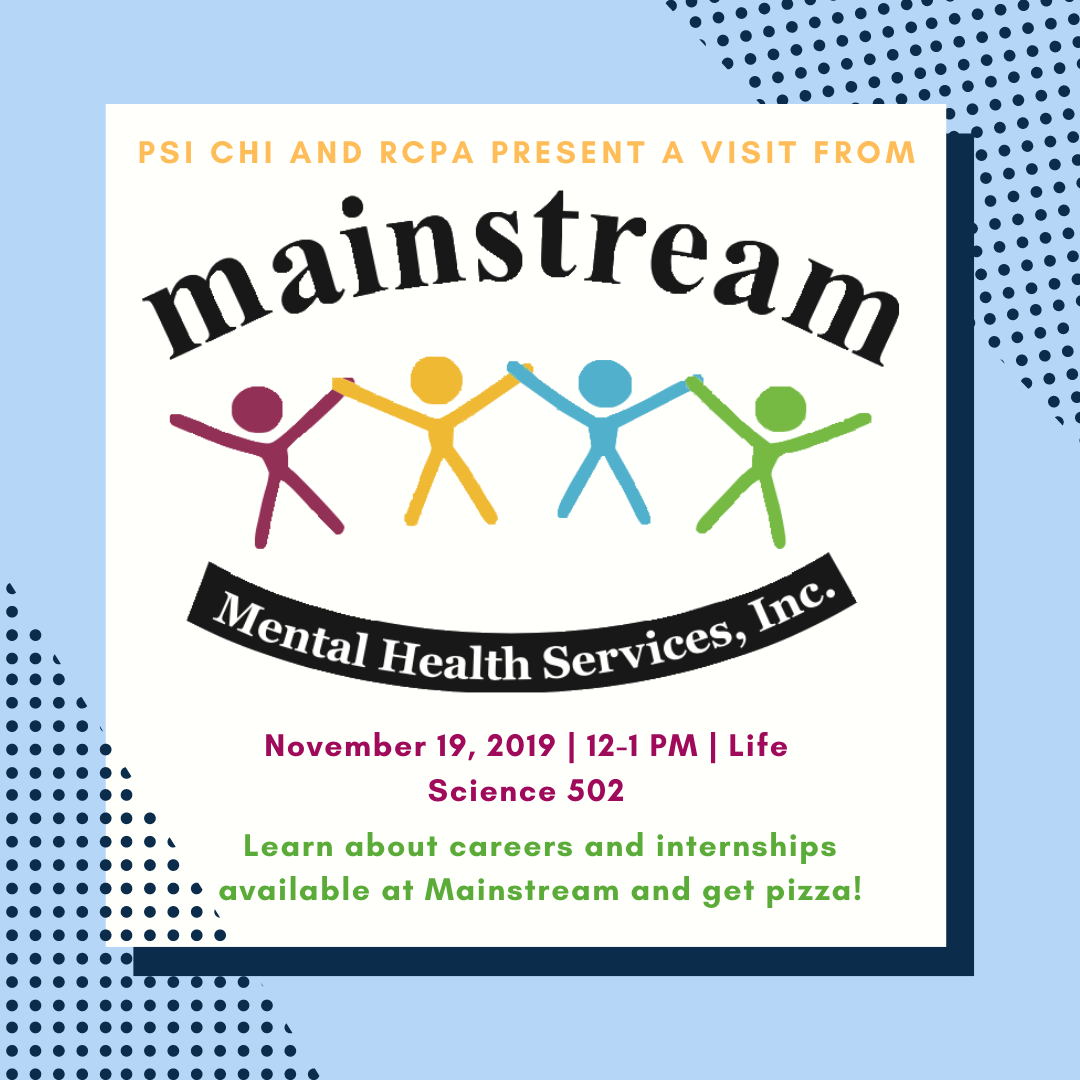

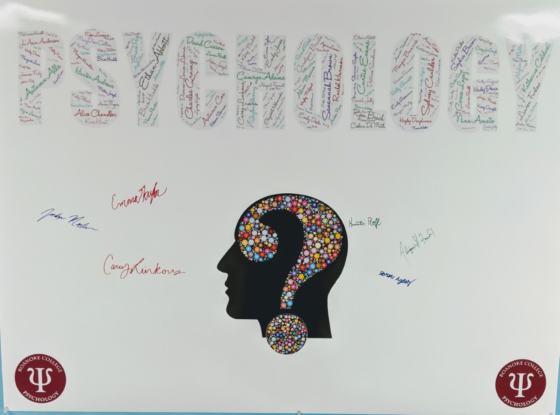 On November 6 the psychology department welcomed newly declared majors at the New Majors Orientation event! The students that attended the event learned more about what the psychology department has to offer and officially “signed into” the department by signing the psychology major poster!
On November 6 the psychology department welcomed newly declared majors at the New Majors Orientation event! The students that attended the event learned more about what the psychology department has to offer and officially “signed into” the department by signing the psychology major poster!